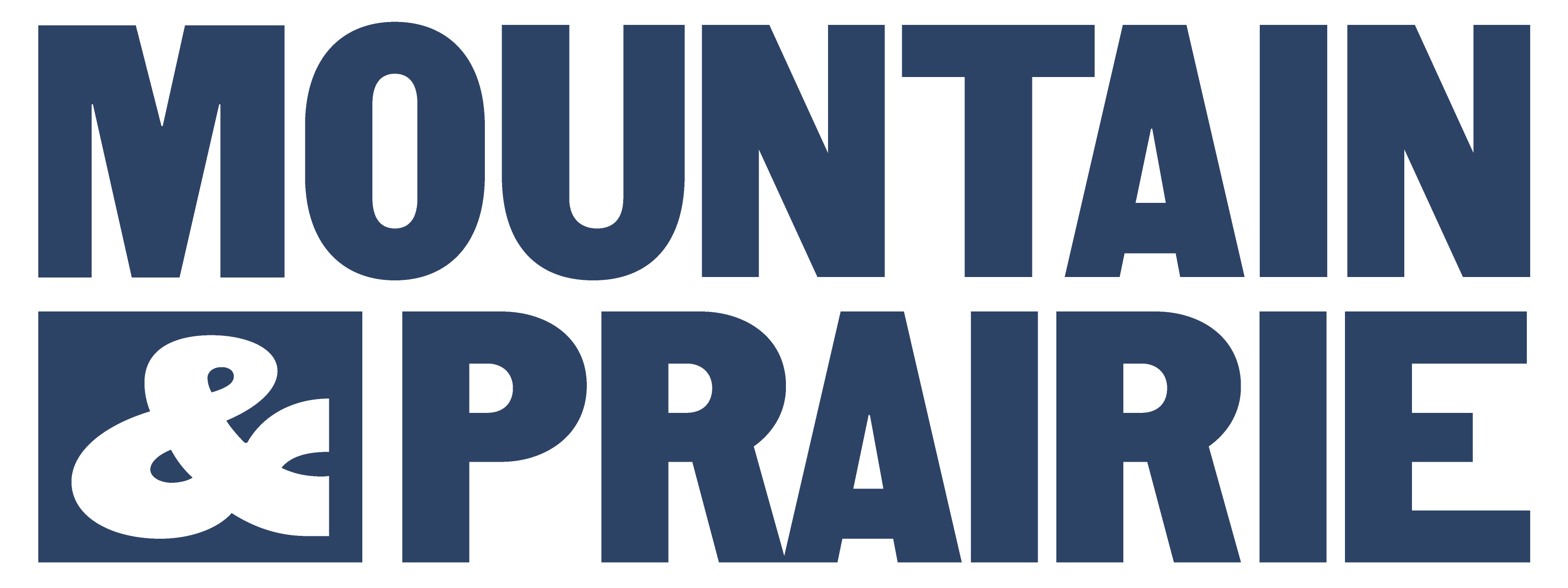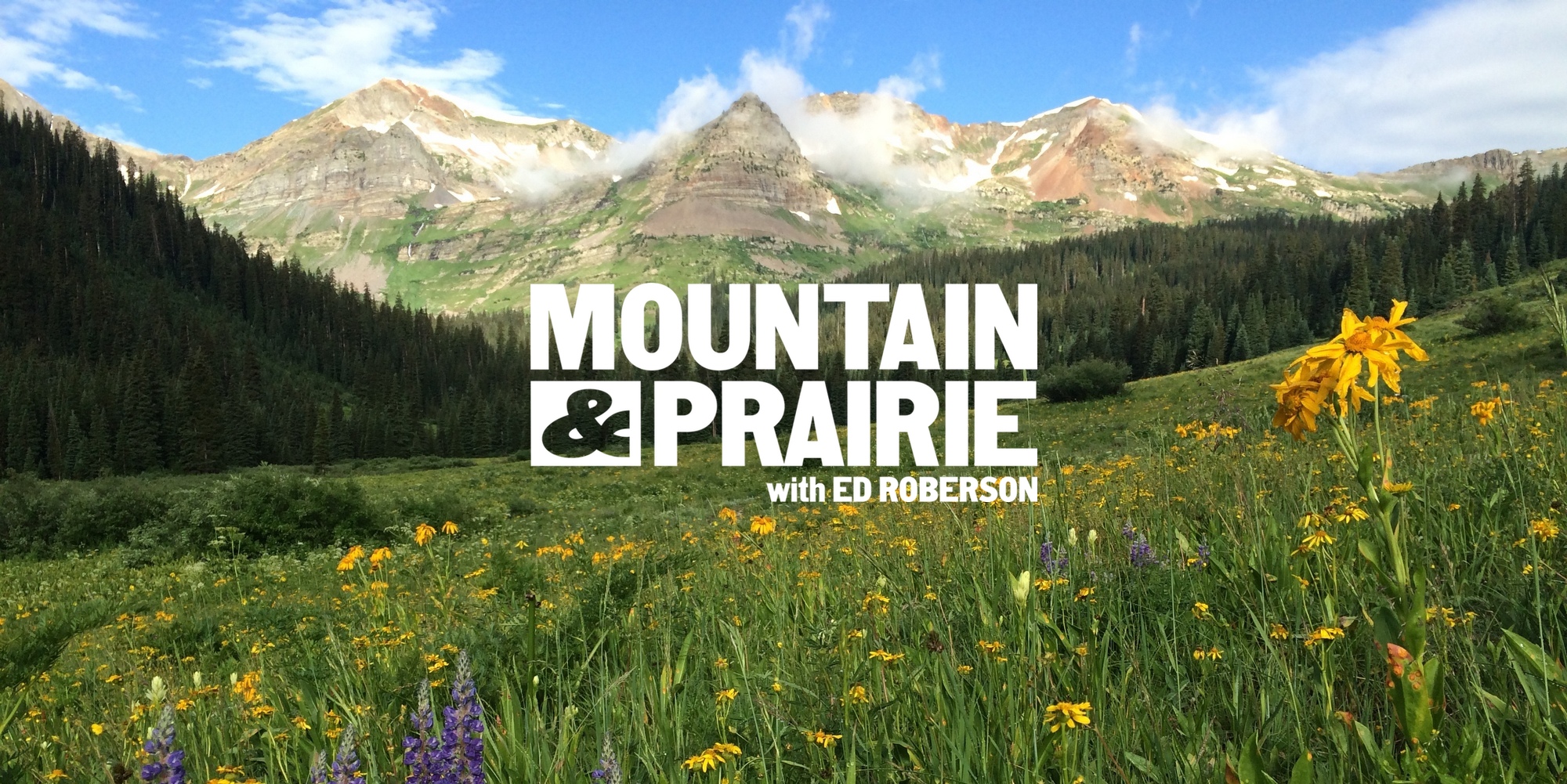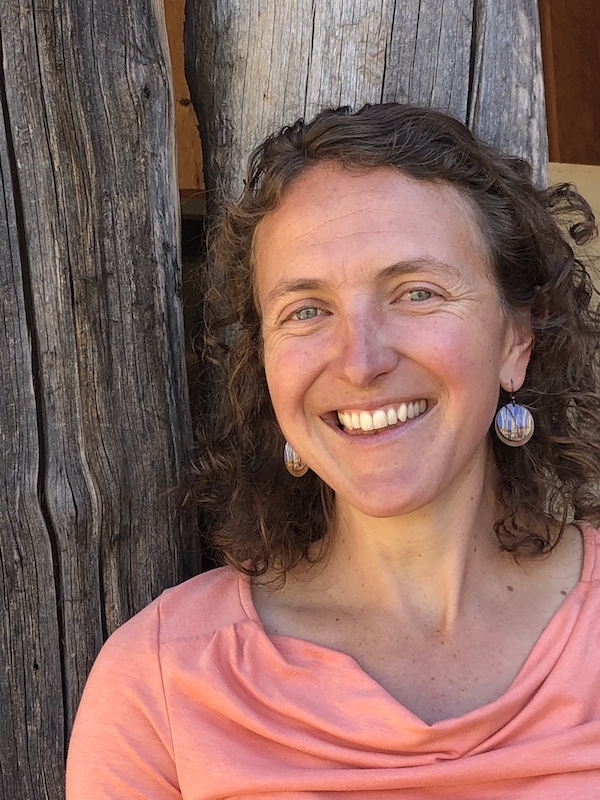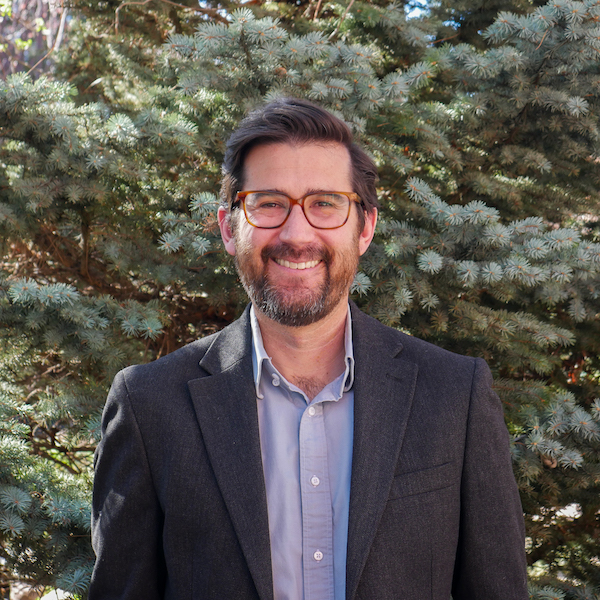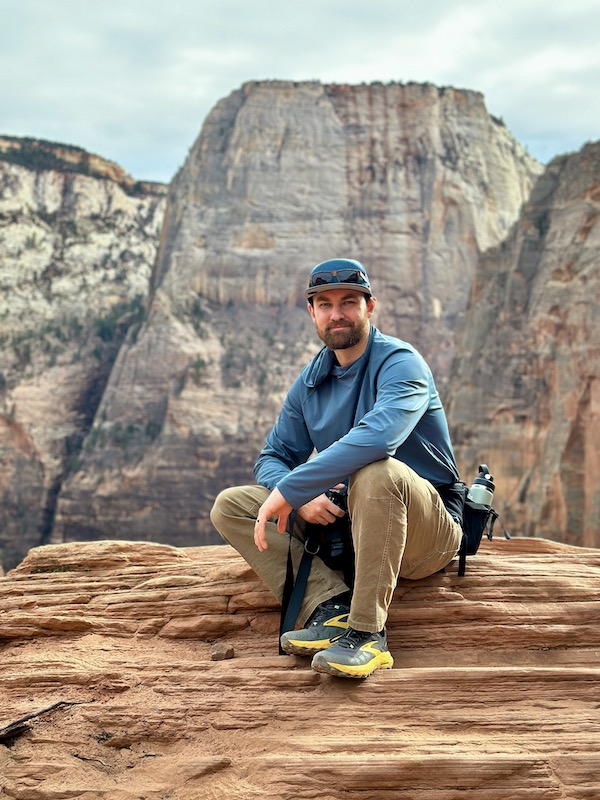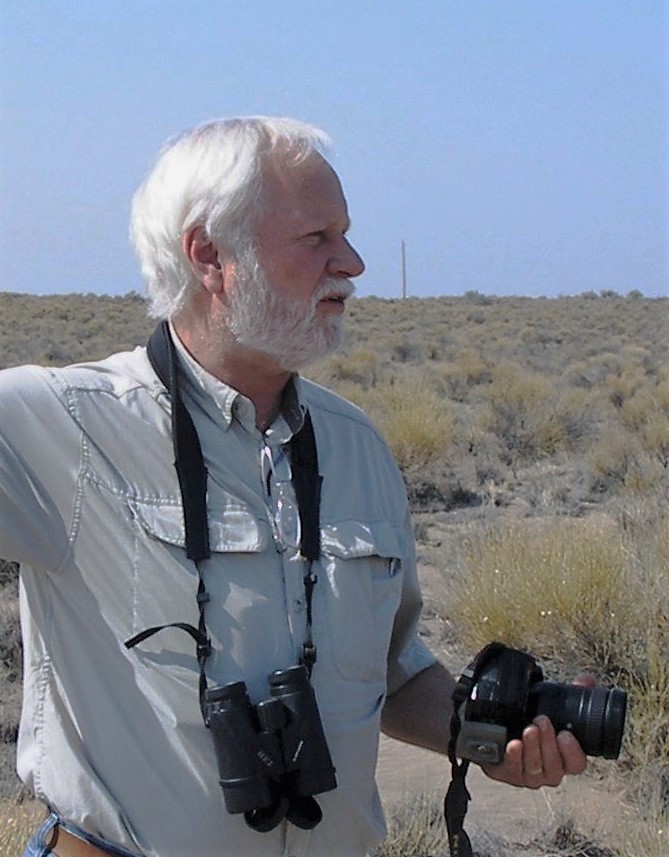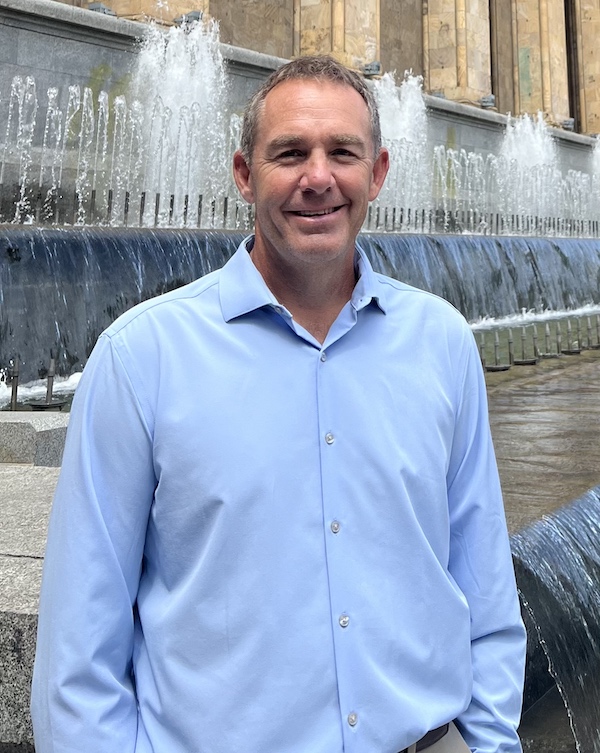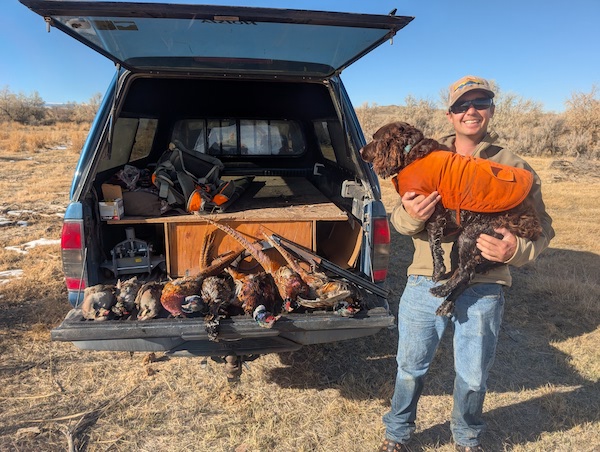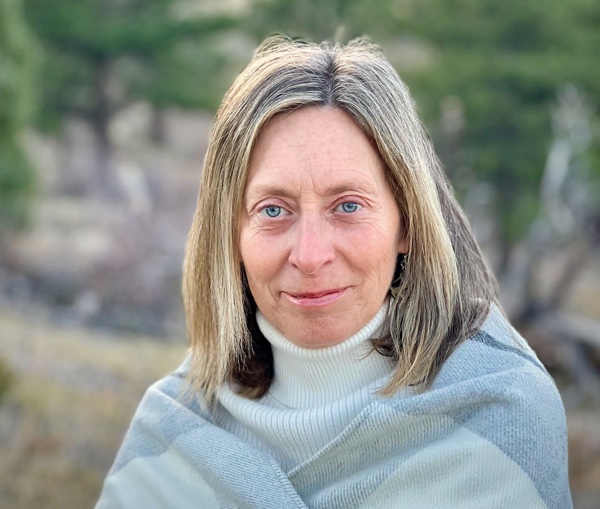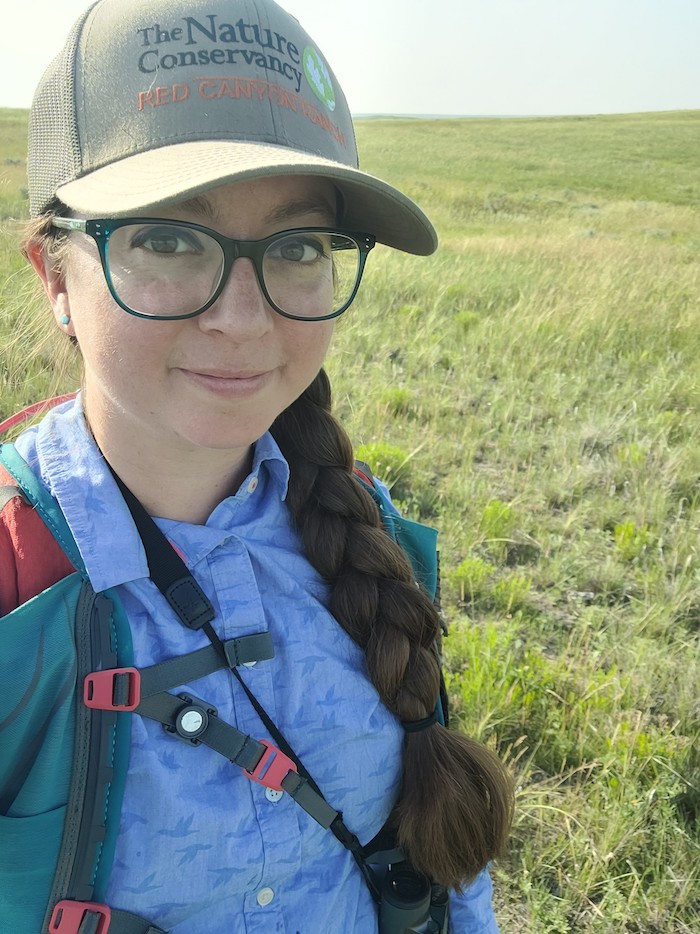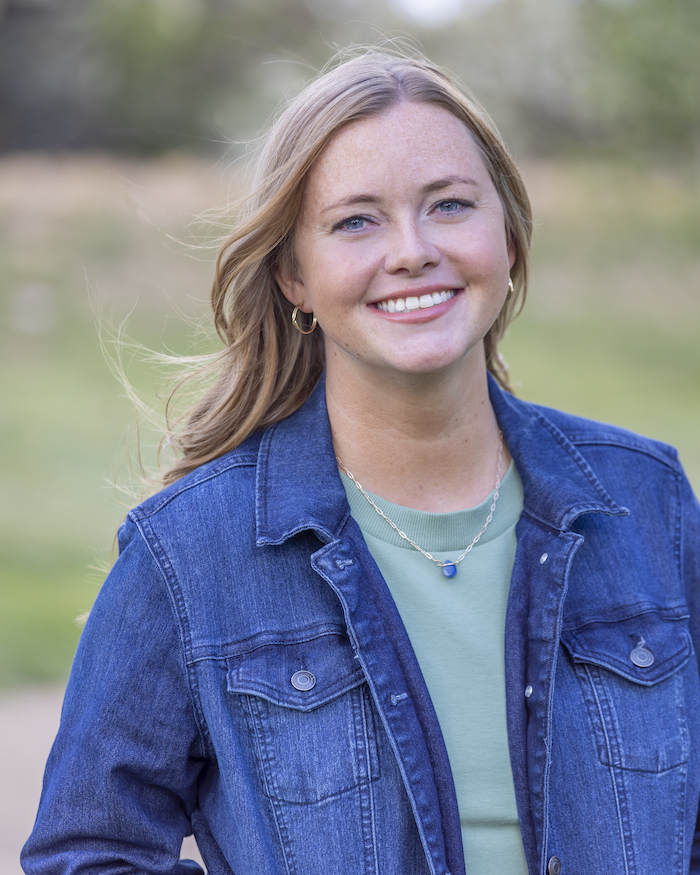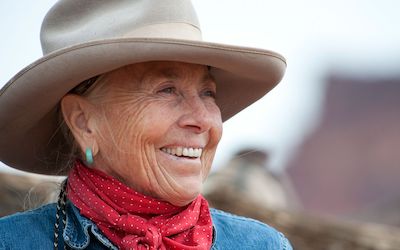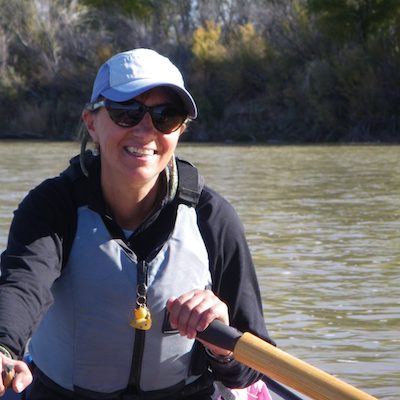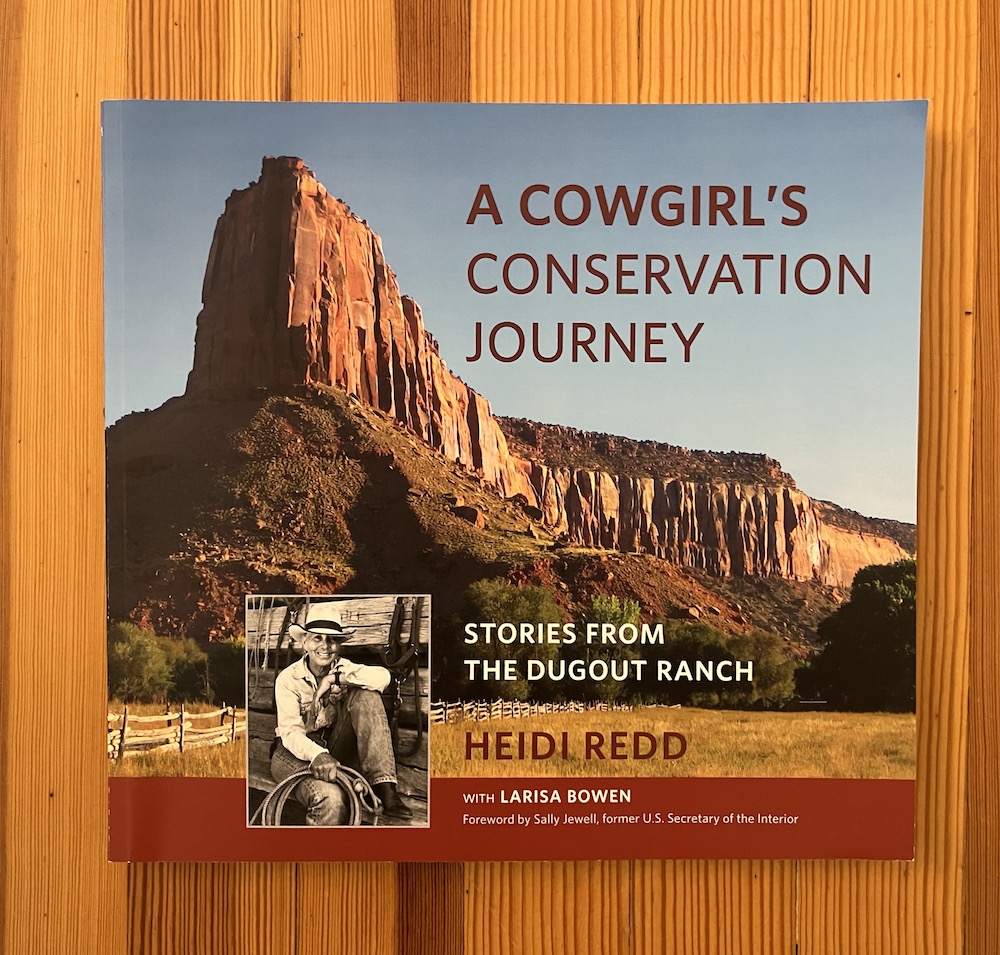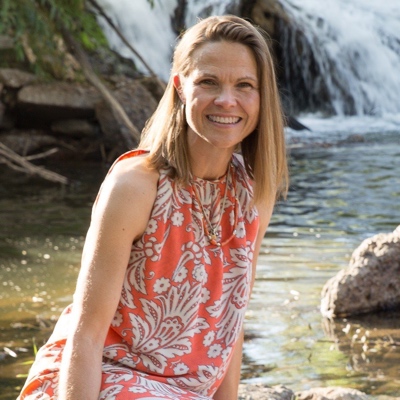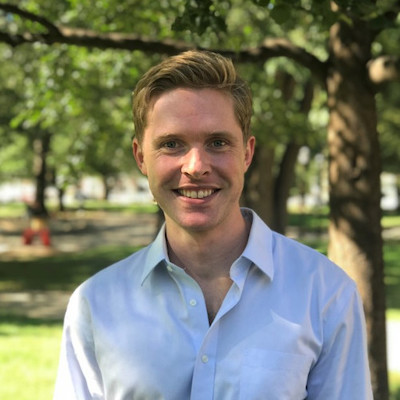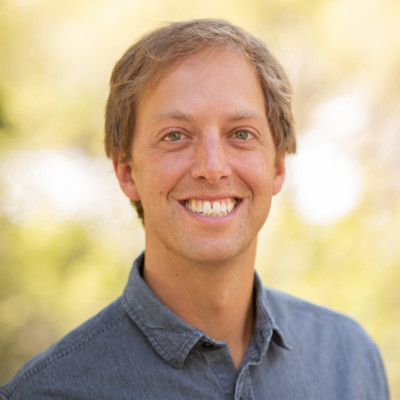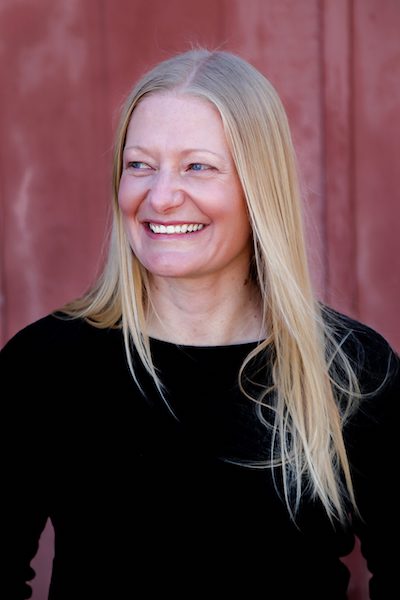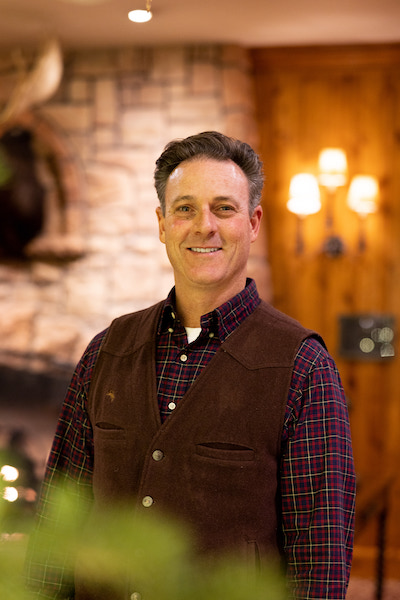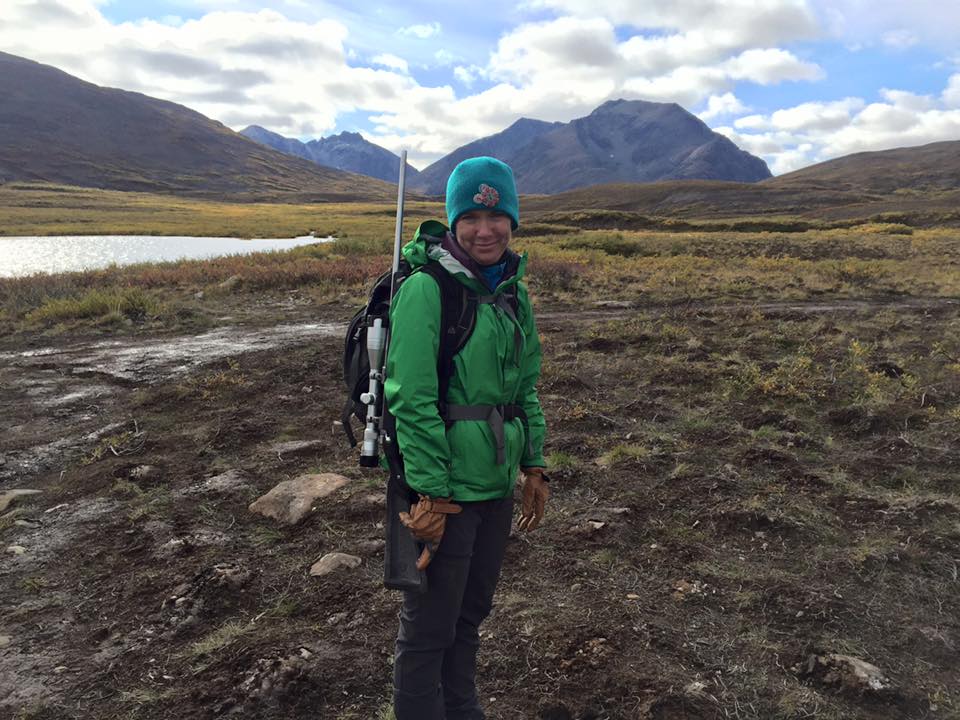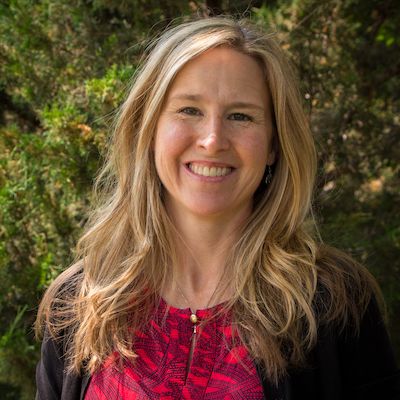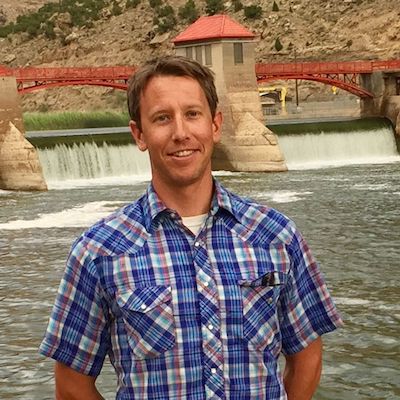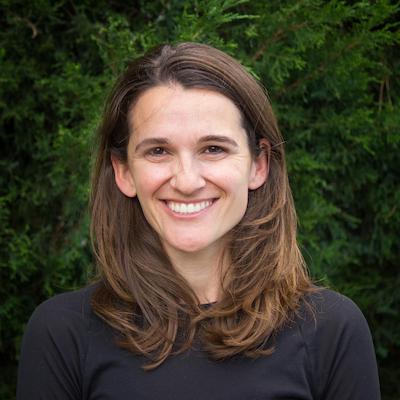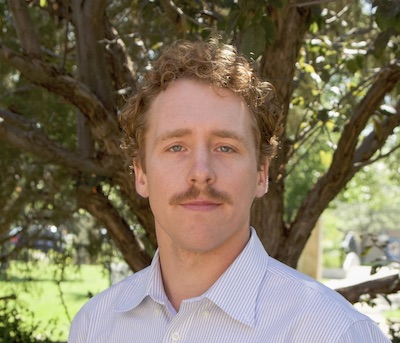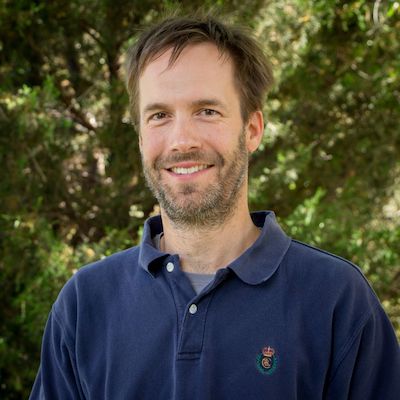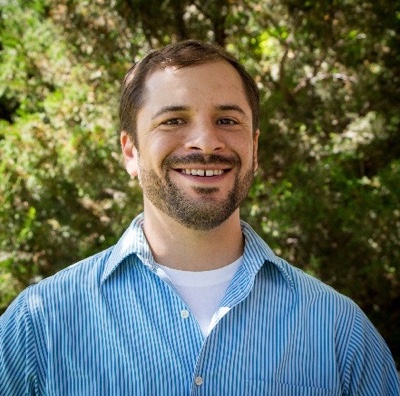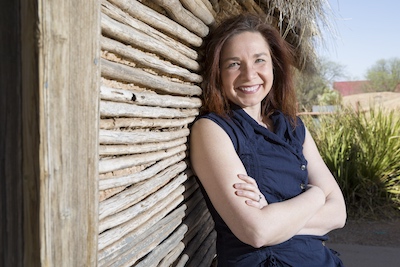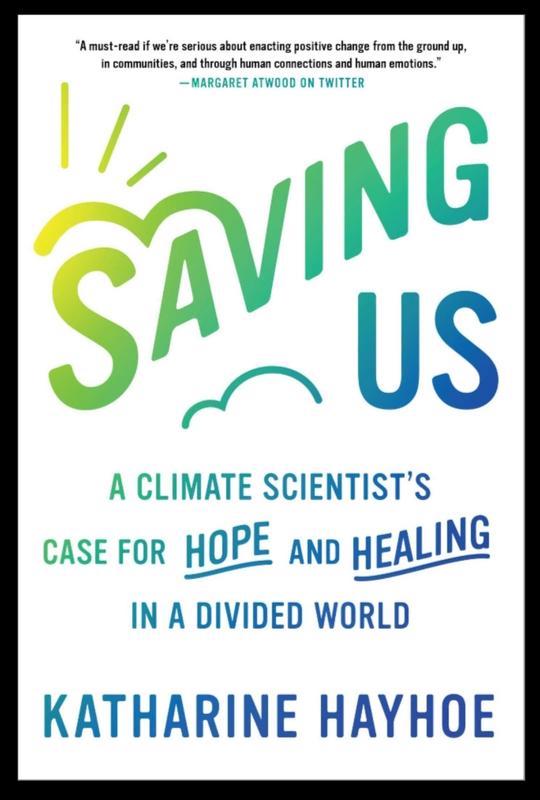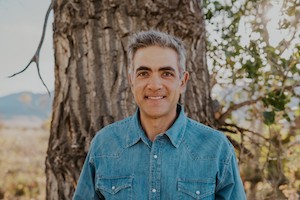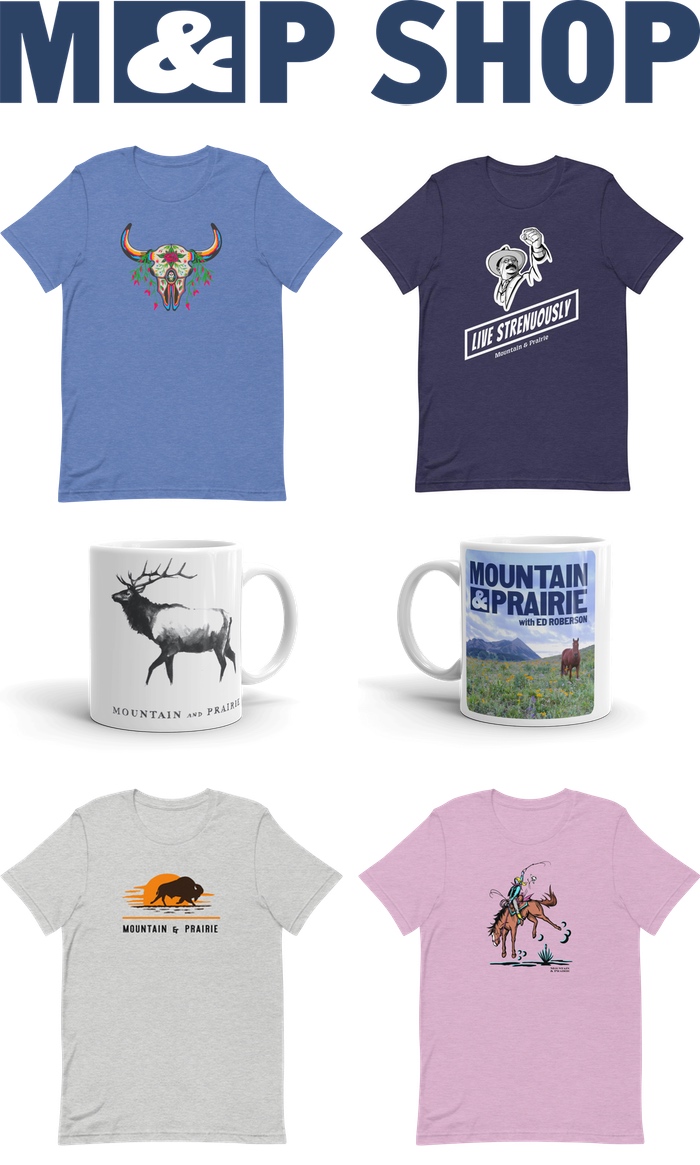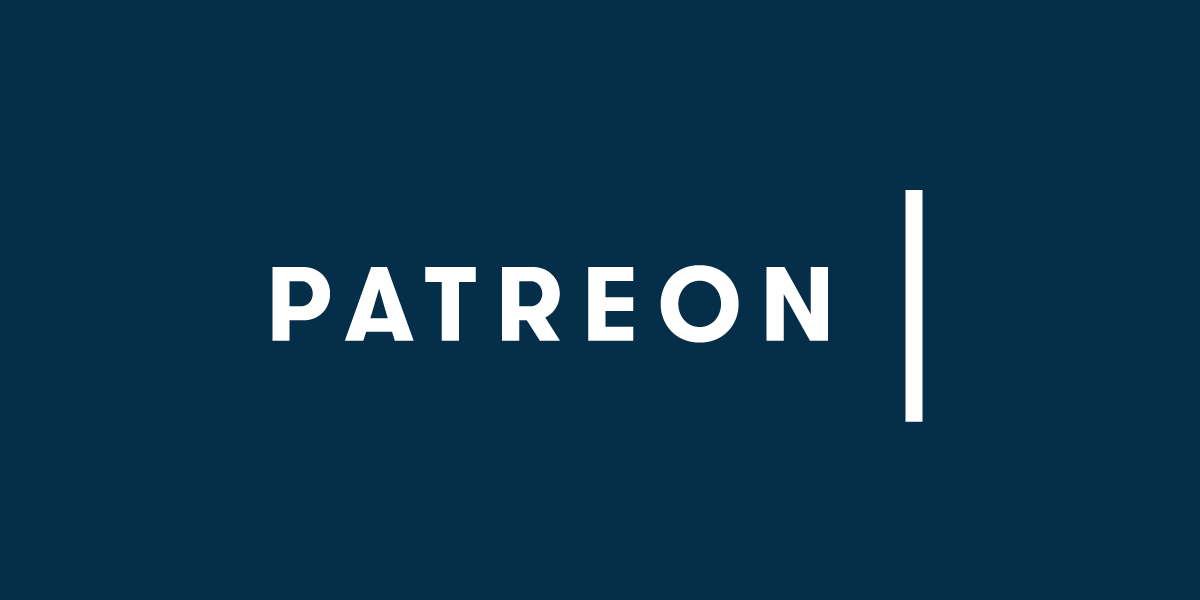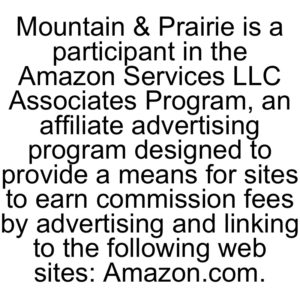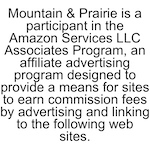Jackie Miller and Carlos Fernández – A Breakthrough Moment for Colorado Conservation
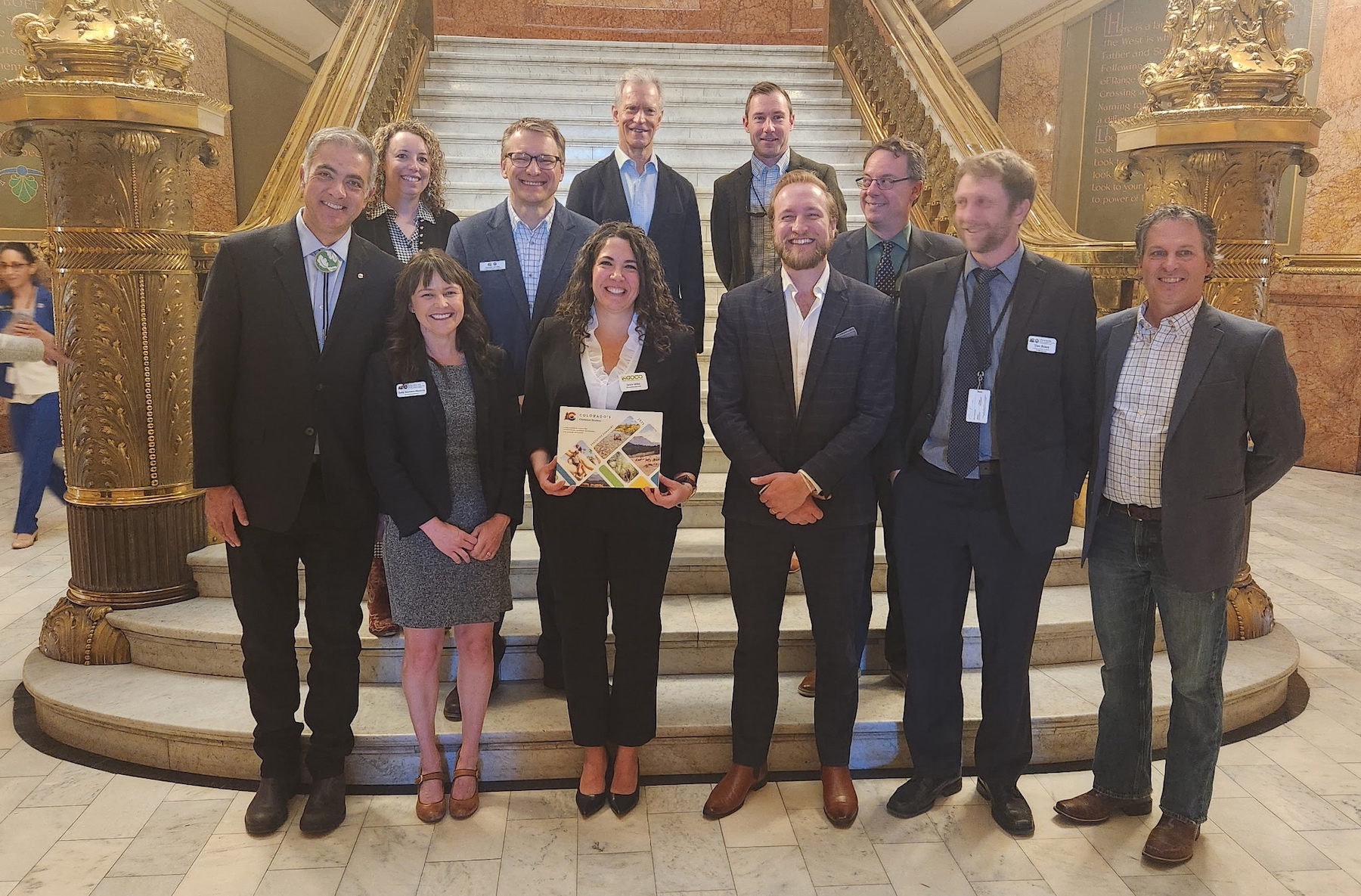
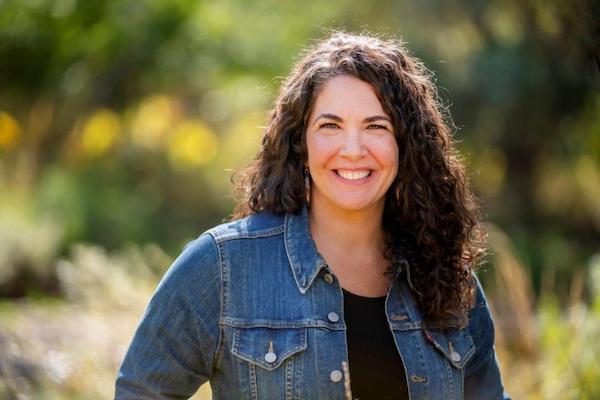
Jackie Miller is the Executive Director of Great Outdoors Colorado (GOCO), and Carlos Fernández is the Colorado State Director for The Nature Conservancy. Both are highly respected leaders in Colorado’s conservation community, and they’ve played pivotal roles in shaping the state’s approach to protecting land, water, wildlife, and outdoor access. While Carlos has joined me on the podcast several times before, this is Jackie’s first appearance, and I was honored to have them both on to discuss one of the most significant conservation developments in recent memory.
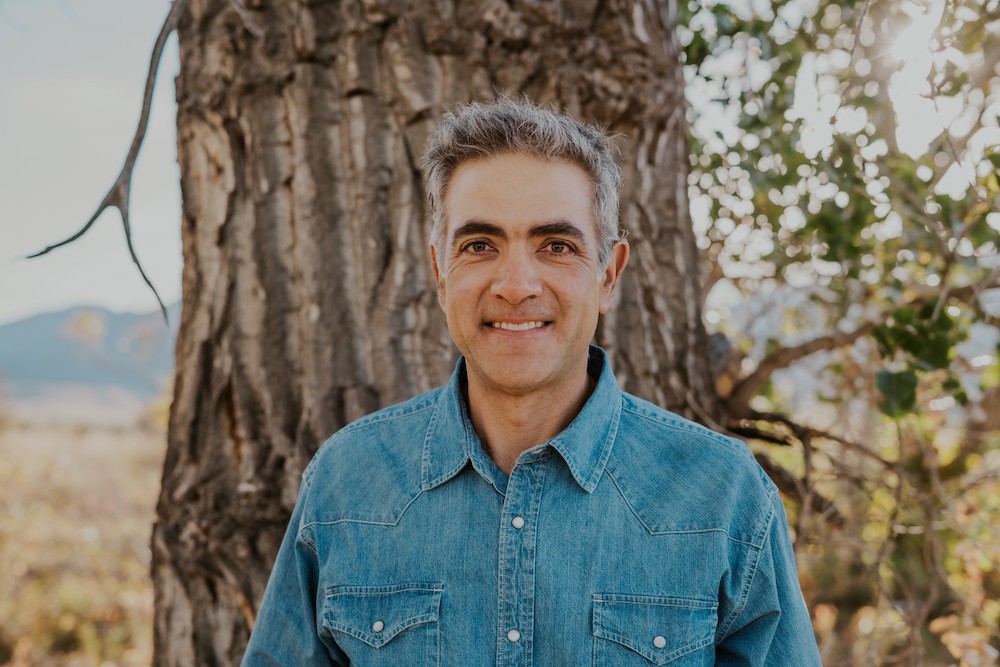
Just a few weeks ago, the State of Colorado announced the launch of its Outdoors Strategy—a comprehensive, collaborative roadmap designed to align the state’s conservation, outdoor recreation, and climate resilience efforts for decades to come. Developed through years of planning, dialogue, and consensus-building across hundreds of organizations and communities, the Strategy addresses some of the most pressing challenges facing Colorado’s landscapes and communities. It’s not just a plan—it’s a shared vision backed by actionable goals, clear metrics, and powerful tools for implementation at the local and statewide levels.
In this wide-ranging conversation, we discuss the origin of Colorado’s Outdoors Strategy, the urgency behind its creation, and the unique collaborative process that brought it to life. Jackie shares how GOCO’s long-standing community partnerships and flexible funding model positioned the organization to lead at a statewide scale, while Carlos explains how the Strategy dovetails with The Nature Conservancy’s science-based goals and priorities. We also explore the Strategy’s “North Star” goals, the innovative Resource Hub that supports on-the-ground action, and the importance of regional implementation and tribal engagement. It’s a timely, inspiring look at how Colorado is setting a national standard for coordinated, community-driven conservation.
Photos courtesy of TNC and GOCO
LISTEN & DOWNLOAD:
Apple Podcasts
Spotify
…or wherever you get your podcasts!
EPISODE PARTNER:
This episode is brought to you in partnership with the Colorado chapter of The Nature Conservancy and TNC chapters throughout the Western United States. Guided by science and grounded by decades of collaborative partnerships, The Nature Conservancy has a long-standing legacy of achieving lasting results to create a world where nature and people thrive.
During the last week of every month throughout 2025, Mountain & Prairie will be delving into conversations with a wide range of The Nature Conservancy’s leaders, partners, collaborators, and stakeholders, highlighting the myriad of conservation challenges, opportunities, and solutions here in the American West and beyond. You can access all of the episodes here.
To learn more about The Nature Conservancy’s impactful work in the West and around the world, visit www.nature.org
RESOURCES:
Topics Discussed:
- 3:03 – Intros, Carlos then Jackie
- 5:09 – Explaining Great Outdoors Colorado
- 8:51 – How Jackie got to GOCO
- 11:37 – Carlos on GOCO
- 15:29 – Challenges and opportunities that led to Colorado’s Outdoors Strategy
- 19:04 – Opportunities that the Strategy will address
- 21:33 – Jackie’s executive summary
- 27:01 – How the Strategy aligns with TNC’s other goals
- 29:59 – North stars and measuring success
- 33:22 – The TNC tools Carlos is excited about
- 36:34 – Creating urgency to execute a plan
- 40:14 – Face-to-face
- 42:51 – Carlos’s thoughts on execution
- 45:49 – How the plan affects the layperson
- 47:25 – What did we miss? First Jackie
- 51:29 – Then Carlos
- 53:31 – Book recs
- 57:42 – Wrap up words of wisdom
Information Referenced:
- Jackie Miller
- Carlos Fernandez
- Colorado’s Outdoors Strategy
- Colorado’s Outdoors Strategy Video
- Book recs: Prodigal Summer, Abundance, A Walk in the Park, American Wolf
- Quote that Carlos shared in the wrap-up.
Enjoy this episode? Then you might like these too:
- Elliot Ross: Where Landscape, Justice, and Storytelling Meet
- Chris Pague – Stories, Science, and the Southern High Plains
- Nichole Barger – Science as a Catalyst for Human Connection
- Ivan McClellan Returns – From Behind the Lens to Center of the Arena
- Kevin Grange – The Secret Lives of Grizzlies
- Nick Mott – A Masterclass in Nuanced Storytelling
Visit the podcast page for a full list of episodes where you can filter episodes by topic and guests’ vocations.
Sara Domek – The Science and Story of Wyoming’s Wildlife Migration
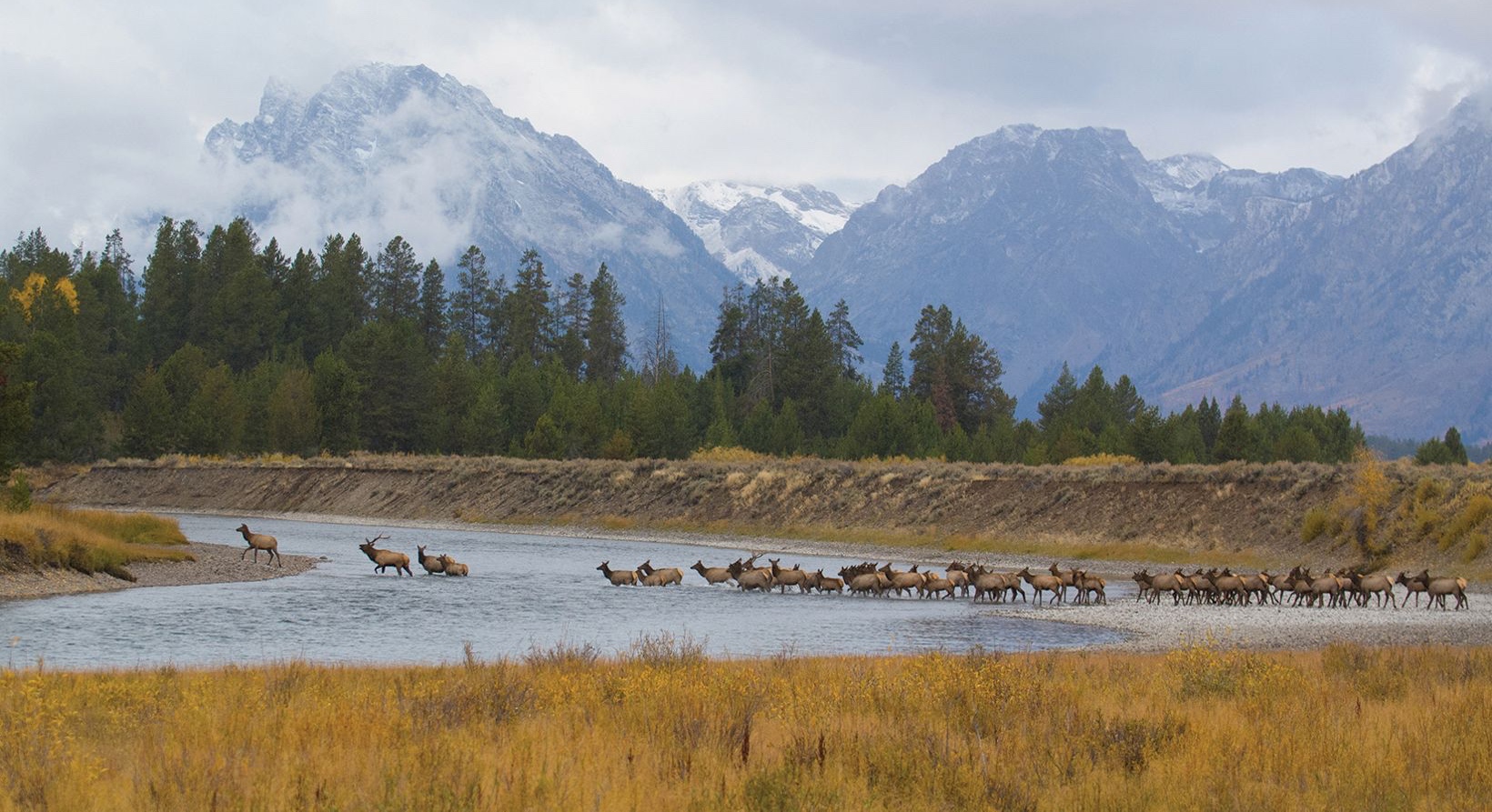
Sara Domek is Wyoming’s Migration Program Director for The Nature Conservancy. Sara grew up in the small town of Kemmerer and later moved to Pinedale, giving her a rare, firsthand perspective on Wyoming’s working landscapes— both from a natural resources and a conservation standpoint. Her upbringing, paired with years of experience working in nonprofits, agencies, and boots-on-the-ground conservation, makes her uniquely suited to lead TNC’s efforts to protect Wyoming’s world-renowned wildlife migrations.
If you’ve spent any time driving through Wyoming, you’ve probably cruised past some of the most important migration corridors in North America—maybe without even realizing it. Sara and her team are working to keep those landscapes permeable, helping mule deer, pronghorn, elk, and other species continue the seasonal journeys they’ve been making for thousands of years. We talk about the science behind migration, how seemingly small barriers like fences can create big challenges for wildlife, and how collaborative conservation— between landowners, agencies, and nonprofits— can create real, lasting wins.
Sara also shares some fascinating details about Wyoming’s longest mule deer migration, the importance of building trust with local communities, why cheatgrass is a bigger villain than it looks, and how carefully designed wildlife crossings can benefit both animals and people. We also get into her favorite books, why she’s hopeful about the future, and, once again, the simple but powerful idea that success in conservation often comes down to strong relationships.
This is a thoughtful and inspiring conversation with someone who truly embodies the spirit of collaborative, community-driven conservation. I hope you enjoy!
Header photo courtesy of TNC and by Scott Copeland, headshot by Sara Domek
LISTEN & DOWNLOAD:
Apple Podcasts
Spotify
…or wherever you get your podcasts!
EPISODE PARTNER:
This episode is brought to you in partnership with the Colorado chapter of The Nature Conservancy and TNC chapters throughout the Western United States. Guided by science and grounded by decades of collaborative partnerships, The Nature Conservancy has a long-standing legacy of achieving lasting results to create a world where nature and people thrive.
During the last week of every month throughout 2025, Mountain & Prairie will be delving into conversations with a wide range of The Nature Conservancy’s leaders, partners, collaborators, and stakeholders, highlighting the myriad of conservation challenges, opportunities, and solutions here in the American West and beyond. You can access all of the episodes here.
To learn more about The Nature Conservancy’s impactful work in the West and around the world, visit www.nature.org
RESOURCES:
Topics Discussed:
- 2:50 – Intro, growing up in Wyoming, and valuing natural resources
- 6:09 – Pinedale and the Wind Rivers
- 7:15 – Plan after high school
- 10:37 – Finding TNC
- 14:16 – Sara describes her job
- 17:21 – Mule deer and pronghorn migration corridors
- 21:57 – Fencing and migration
- 26:25 – Getting the word out about fencing
- 29:27 – Migration primer: distance, predators, and collisions
- 35:54 – Valley of the warm winds
- 42:37 – RCPP programs
- 45:27 – Cheatgrass 101
- 48:54 – Important partners
- 51:08 – Prioritizing projects
- 54:40 – What Sara’s looking forward to
- 57:57 – Where to learn more
- 1:00:22 – Book recs
- 1:03:04 – Parting words
Information Referenced:
- Rusty Bell and Justin Loyka on M&P talking about the coal industry
- Youth Conservation Corps NPS program
- National Bighorn Sheep Center in Dubois, Wyoming
- Wyoming Migration Initiative
- Red Desert to Hoback mule deer migration, the world’s longest mule deer migration
- Wild Migrations: Atlas of Wyoming’s Ungulates
- Dubois = the Valley of the Warm Winds. Though Ed and Sara don’t tend to always agree with the “warm” part.
- Big Game Partnership, which supports migration work in Wyoming, Idaho and Montana
- Some of Justin Loyka’s work on blending migration with industry in a way that’s safer for migrating ungulates.
- Sublette County Conservation District, which focuses on wildlife-friendly fence work
- Wyoming Sagebrush Sea’s native plants work related to maintaining habitat for wildlife, including traveling ungulates
- Yellowstone migration photos by Joe Riis
- TNC’s “Impacts of Roadways on Wildlife” report from 2022, a general overview
- Wyoming’s Department of Transportation animal collision cost estimates. Human fatality costs for collisions with moose is over $13,000.
- WY Game and Fish Department migration information
- Wyldlife Fund and Greater Yellowstone Coalition and the Dubois crossings project
- A series on wildlife crossings in Montana
- Absaroka Fence Initiative
- An example of an RCPP program application. And this is just the how-to.
- Cheatgrass
- TNC and the University of Wyoming’s fencing prioritization tool
- Book recs: The Solace of Open Spaces, Ordinary Wolves
Enjoy this episode? Then you might like these too:
- Rob Addington – A Deep Dive into Western Wildfires and Forest Health
- Emilene Ostlind – Storytelling for the New West
- Matt Cahill – A Deep Dive into the Sagebrush Sea
- Chris Pague – Stories, Science, and the Southern High Plains
- Douglas Brinkley – Exploring the Past to Find Inspiration for the Future
- John Vaillant – A Riveting Exploration of Fire
Visit the podcast page for a full list of episodes where you can filter episodes by topic and guests’ vocations.
Aaron Citron: Crafting Conservation Policy in a Changing West
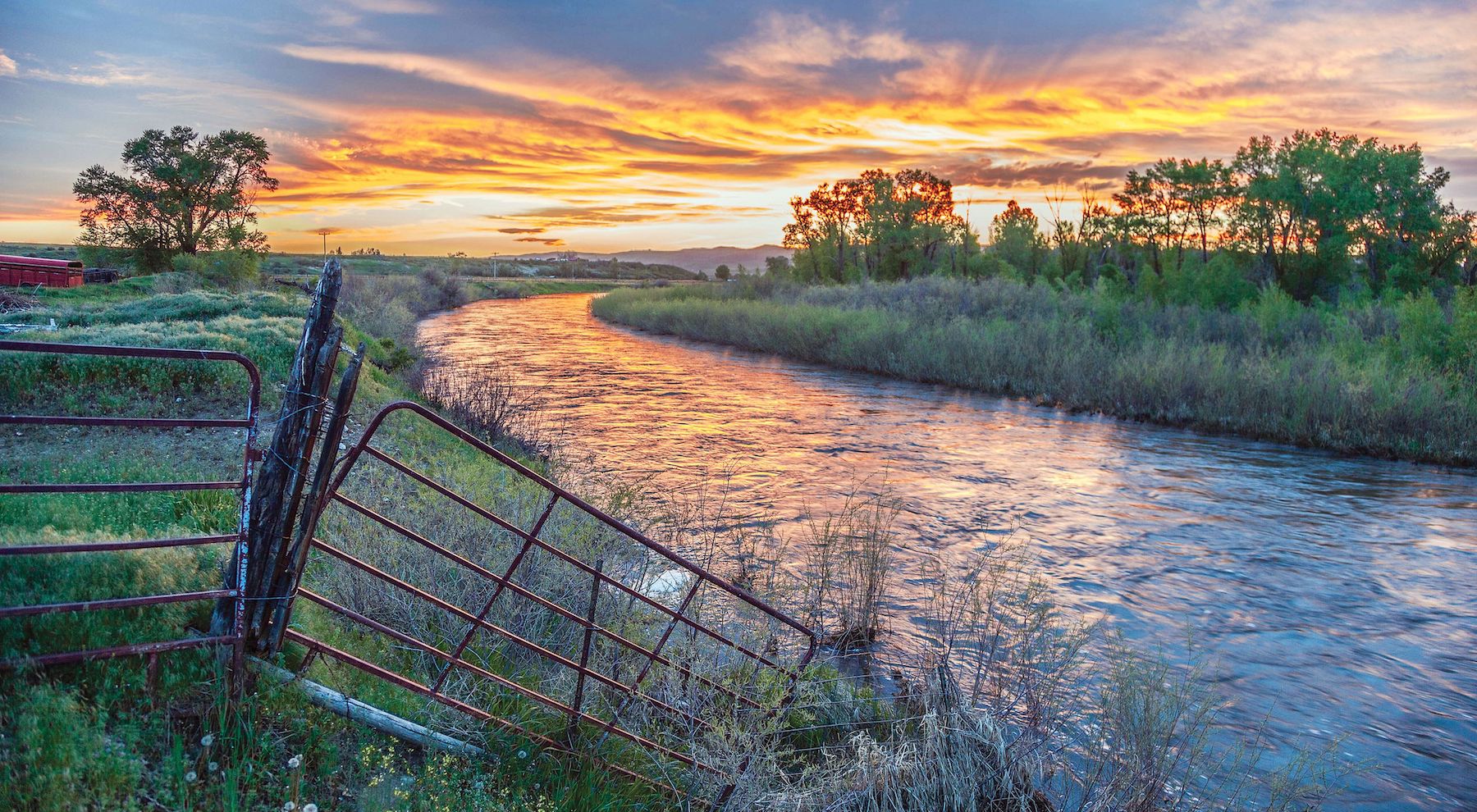
Aaron Citron is the Associate Director of External Affairs at The Nature Conservancy, where he leads state-level policy engagement across Colorado. His work spans a wide array of conservation priorities, including water management, healthy forests, renewable energy siting, and partnerships with private landowners and tribal nations. Aaron plays a key role in bridging on-the-ground conservation efforts with the legislative and regulatory frameworks that support them. He also helps shape TNC’s strategy around climate and energy policy, working to ensure a rapid but responsible transition to renewable infrastructure.
Aaron grew up in Tucson, Arizona, where early exposure to the desert landscape—and its vital, limited water resources—sparked a lifelong interest in the natural world. After studying history and political science at Emory University, he returned west for law school at the University of Arizona, focusing on water and land use law. His career has taken him from local land trusts to national NGOs like Environmental Defense Fund, always at the intersection of policy, place, and practical impact. Along the way, he’s built a reputation for thoughtful, collaborative work that reflects both his legal background and his deep connection to the West.
In our conversation, Aaron shares a detailed look at how conservation policy gets made—from coalition-building and legislative drafting to navigating complex stakeholder relationships. We discuss examples like Colorado’s response to Clean Water Act rollbacks and new tools to support in-stream flows on the Yampa River. He talks about the balance between urgency and patience, the importance of trust in long-term conservation, and how calm, clearheaded engagement can shape better outcomes. It’s a compelling look at the behind-the-scenes work that makes public-facing conservation efforts possible.
Be sure the check out the episode notes for a full list of everything we discussed and links to everything. Thanks to Aaron for this conversation and thank you for listening. Enjoy!
Photos courtesy of The Nature Conservancy, Header photo: Sunset on the Yampa River at Carpenter Ranch in Northwest Colorado. © John Fielder
LISTEN & DOWNLOAD:
Apple Podcasts
Spotify
…or wherever you get your podcasts!
EPISODE PARTNER:
This episode is brought to you in partnership with the Colorado chapter of The Nature Conservancy and TNC chapters throughout the Western United States. Guided by science and grounded by decades of collaborative partnerships, The Nature Conservancy has a long-standing legacy of achieving lasting results to create a world where nature and people thrive.
During the last week of every month throughout 2025, Mountain & Prairie will be delving into conversations with a wide range of The Nature Conservancy’s leaders, partners, collaborators, and stakeholders, highlighting the myriad of conservation challenges, opportunities, and solutions here in the American West and beyond. You can access all of the episodes here.
To learn more about The Nature Conservancy’s impactful work in the West and around the world, visit www.nature.org
RESOURCES:
Topics Discussed:
- 3:15 – Starting at the beginning, growing up in Tucson
- 7:42 – Underrated Arizona
- 11:23 – From environmental history to law school
- 15:22 – After law school, including a TNC internship
- 18:11 – Landing at the Arizona Land and Water Trust
- 21:24 – Path to TNC
- 24:06 – Aaron’s role at TNC
- 27:42 – Clean Water Act protection project
- 33:40 – Getting the information to the people
- 35:29 – Yampa River Fund
- 40:39 – What makes someone good at policy work?
- 46:11 – The power of relationships
- 49:00 – Federal versus state policy focuses
- 53:40 – Remaining calm
- 57:21 – Book recs
- 1:01:53 – Parting thoughts
Information Referenced:
- Aaron Citron – Associate Director of External Affairs at The Nature Conservancy
- TNC Colorado’s 2024 Year In Review
- Dan Stellar with TNC on Mountain & Prairie
- Arizona Land and Water Trust in Tucson. Aaron’s first role out of law school.
- Peter Gower and Chris Menges from TNC on M&P about the energy transition.
- Discussion about the Yampa River Fund on M&P with TNC’s Diana Lane and Aaron Derwingson
- Book recs: The Emerald Mile, The Fool’s Progress by Edward Abbey
- Doug Peacock on Mountain & Prairie, talking about grizzlies and burying Ed Abbey
Enjoy this episode? Then you might like these too:
- Chris Pague – Stories, Science, and the Southern High Plains
- Betsy Gaines Quammen Returns – Myths, Curiosity, and Human Connection (Live at the Old Salt Festival)
- Matt Cahill – A Deep Dive into the Sagebrush Sea
- Mark Easter – Food, Soil, and Our Planet’s Future
- Douglas Brinkley – Exploring the Past to Find Inspiration for the Future
- The Partnership of Rangeland Trusts – 20 Years of Cooperation, Collaboration, and Conservation
- John Vaillant – A Riveting Exploration of Fire
Visit the podcast page for a full list of episodes where you can filter episodes by topic and guests’ vocations.
Helen Augare Carlson & Dylan DesRosier – Land, Language, and Stewardship in the Blackfeet Nation
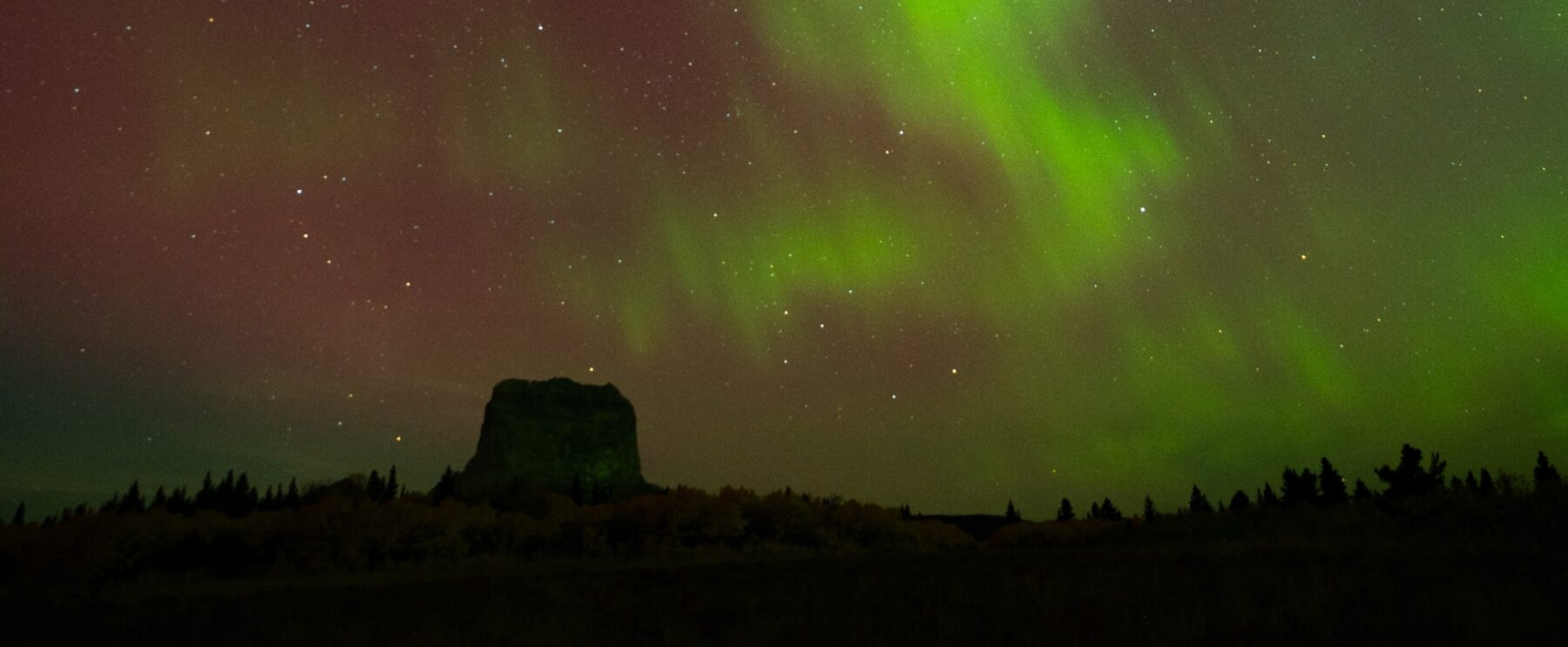
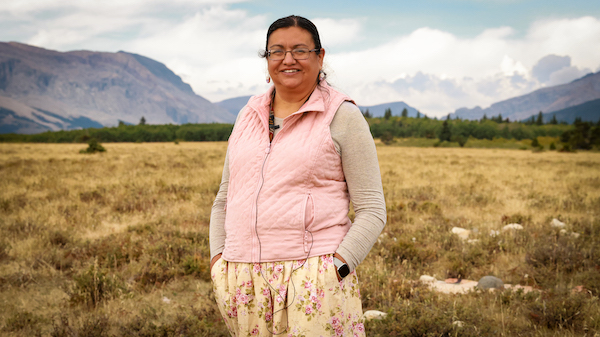
Helen Augare Carlson and Dylan DesRosier are leaders, community builders, and proud members of the Blackfeet Nation. Helen, the Chair of the Piikani Studies Division at Blackfeet Community College, has dedicated over two decades to education, cultural preservation, and building pathways for future generations. Dylan, the Blackfeet Program Manager with The Nature Conservancy, brings a wealth of experience in conservation work rooted in respect for Indigenous knowledge and long-term community collaboration. In addition to their official roles, they both wear many hats when it comes to serving their communities—mentoring youth, engaging in policy discussions, telling stories, and working on grassroots initiatives that strengthen cultural and environmental resilience.
In this episode, we explore the profound relationships between land, language, and stewardship. Helen shares the moving story behind her Blackfoot name, Dylan reflects on his time working in Glacier National Park and how it shaped his conservation approach, and we dig into the groundbreaking Chief Mountain Initiative—an effort that weaves together conservation, education, and cultural revitalization.
We also discuss the evolving role of conservation organizations, TNC’s comprehensive approach to supporting Blackfeet initiatives, the importance of holistic thinking, and why Indigenous leadership is crucial for the future of land stewardship. As usual, we wrap up with some incredible book recommendations that will deepen your understanding of these topics long after the episode ends.
This conversation is rich with wisdom, humor, and insight, and Helen and Dylan make quite a team, bringing their unique expertise and shared passion for their community to this important discussion. I’m so excited for you to hear it. So let’s dive in—here’s my conversation with Helen Augare Carlson and Dylan DesRosier.
Header photo by Dylan DesRosier, headshots courtesy of Dylan and Helen
LISTEN & DOWNLOAD:
Apple Podcasts
Spotify
…or wherever you get your podcasts!
EPISODE PARTNER:
This episode is brought to you in partnership with the Colorado chapter of The Nature Conservancy and TNC chapters throughout the Western United States. Guided by science and grounded by decades of collaborative partnerships, The Nature Conservancy has a long-standing legacy of achieving lasting results to create a world where nature and people thrive.
During the last week of every month throughout 2025, Mountain & Prairie will be delving into conversations with a wide range of The Nature Conservancy’s leaders, partners, collaborators, and stakeholders, highlighting the myriad of conservation challenges, opportunities, and solutions here in the American West and beyond. You can access all of the episodes here.
To learn more about The Nature Conservancy’s impactful work in the West and around the world, visit www.nature.org
RESOURCES:
Topics Discussed:
- 3:03 – Introductions, starting with Helen
- 7:18 – Helen’s Blackfeet names
- 12:18 – When to use “Blackfoot” or “Blackfeet”
- 13:33 – Dylan’s bio and Blackfeet name
- 17:48 – Community health and education
- 23:03 – Why Dylan wanted to plug into TNC
- 26:48 – Blackfeet connection to land
- 30:33 – Helen’s thoughts on TNC
- 36:03 – Face-to-face trust
- 38:48 – Chief Mountain initiative
- 45:48 – Measuring progress on a huge timeframe
- 50:48 – Progress in Helen’s view
- 56:03 – Like biodiversity, human diversity is important, too
- 1:01:03 – What Dylan’s learned from Helen
- 1:03:03 – And what Helen’s learned from Dylan
- 1:06:33 – Book recs
- 1:12:33 – Parting words
- 1:15:03 – A Land Back addendum
Information Referenced:
- Helen Augare Carlson / Magpie Woman
- Dylan DesRosier / Bear Star
- TNC Montana’s Annual Report (page 12)
- Chief Mountain
- Land Back movements
- The One-Straw Revolution
- Dr. Leroy Little Bear on Indigenous knowledge and Western science.
- Igniting the Sparkle: An Indigenous Science Education Model
- Blackfoot Ways of Knowing
- The Serviceberry by Robin Wall Kimmerer, author of Braiding Sweetgrass
Enjoy this episode? Then you might like these too:
- Corissa Busse – Tribal-Led Buffalo Restoration in the American West and Beyond
- Celene Hawkins & Izabella Ruffino – Tribal Partnerships, Indigenous Voices, Cutting-Edge Conservation
- Jesse Smith – A Regenerative Approach to Land and Life
- Chris Pague – Stories, Science, and the Southern High Plains
- Matt Cahill – A Deep Dive into the Sagebrush Sea
- Douglas Brinkley – Exploring the Past to Find Inspiration for the Future
- Rebecca Clarren – “The Cost of Free Land”
- John Vaillant – A Riveting Exploration of Fire
Visit the podcast page for a full list of episodes where you can filter episodes by topic and guests’ vocations.
Chris Pague – Stories, Science, and the Southern High Plains
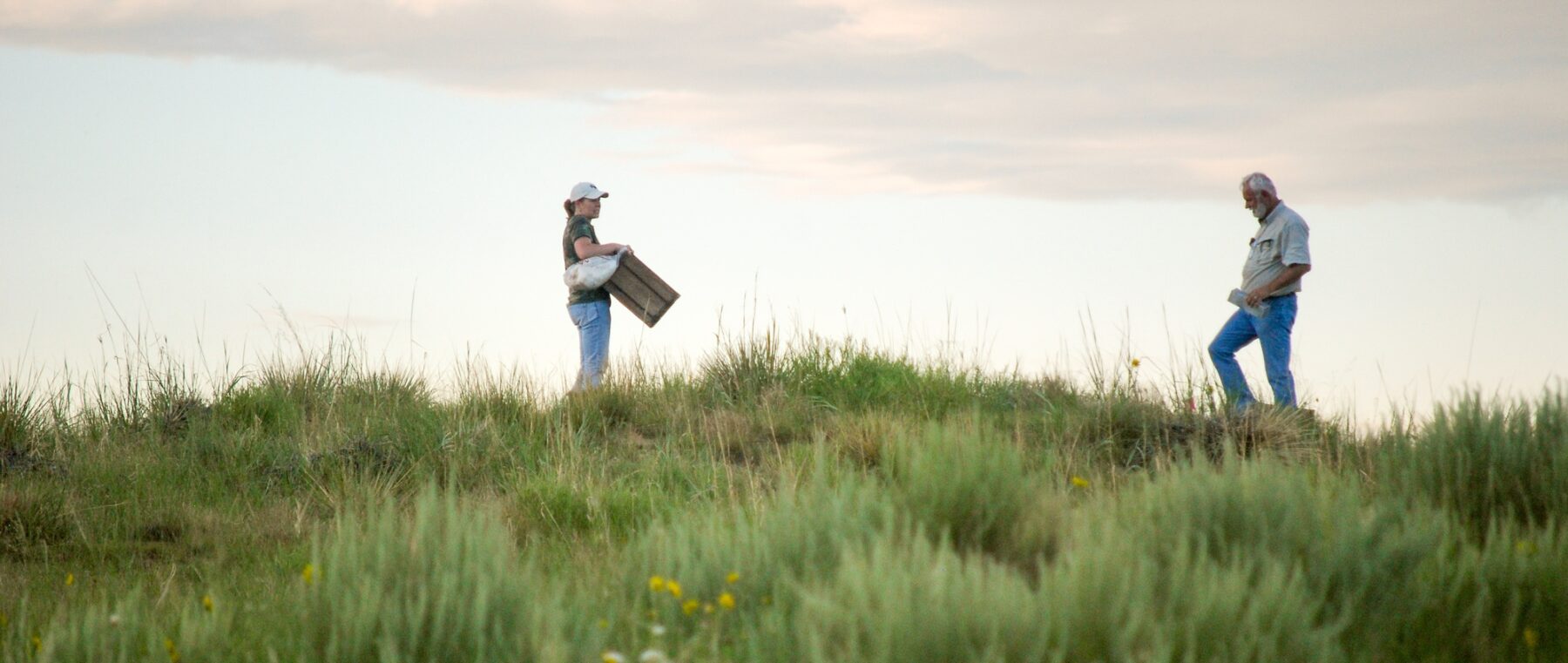
Chris Pague is the Senior Conservation Ecologist at The Nature Conservancy, and he is deeply involved in so many of the topics we discuss here on the podcast– grasslands, bison, endangered species, landscape-scale conservation, and more. For many decades now, Chris has been working on the frontlines of TNC’s science-based conservation efforts, and during his tenure, he’s accumulated a mind-blowing amount of knowledge about everything from the tiniest prairie plants to the plains’ largest mammals. But what makes Chris so special is his ability to translate complex ecology into inspiring, impactful stories– stories that resonate with everyone from the most committed conservationists to people who are just beginning to learn about the West’s wild places.
Chris grew up in Virginia, and for as long as he can remember, he’s been obsessed with the outdoors, wild creatures, and all varieties of plants. He eventually moved West to take a job in Colorado with the Nature Conservancy, where he’s been an invaluable member of the team ever since. I personally credit Chris for helping me in my own journey to understand the importance of grasslands and connected landscapes across the Southern High Plains, thanks to a presentation Chris gave at an event I was attending over a decade ago. I know there are countless other folks just like me who credit Chris with helping them to better understand and appreciate pressing conservation issues— and more importantly, to take action. Between his on-the-ground ecology work and his gift of storytelling, it’s difficult to fully wrap my head around the scale of the positive impact Chris has had over his career.
So, I was long overdue in having Chris join me for a podcast conversation. We could’ve talked for many hours, but in this chat, we still managed to cover a lot, including: Chris’s upbringing in Virginia and some of our shared favorite Virginia landscapes; his decision to move to Colorado; the decades-long shift in thinking around grasslands conservation; the importance of storytelling to communicate critical science, TNC’s Southern High Plains Initiative; optimism and the wisdom of Ted Lasso; partnerships and relationships; favorite books, and much more.
A huge thanks to Chris for this wonderful conversation, but more importantly, thanks to Chris for his many decades of inspiring work. Enjoy.
—
Header photo courtesy of TNC– header by Terri Schulz
LISTEN & DOWNLOAD:
Apple Podcasts
Spotify
…or wherever you get your podcasts!
EPISODE PARTNER:
This episode is brought to you in partnership with the Colorado chapter of The Nature Conservancy and TNC chapters throughout the Western United States. Guided by science and grounded by decades of collaborative partnerships, The Nature Conservancy has a long-standing legacy of achieving lasting results to create a world where nature and people thrive.
During the last week of every month throughout 2025, Mountain & Prairie will be delving into conversations with a wide range of The Nature Conservancy’s leaders, partners, collaborators, and stakeholders, highlighting the myriad of conservation challenges, opportunities, and solutions here in the American West and beyond. You can access all of the episodes here.
To learn more about The Nature Conservancy’s impactful work in the West and around the world, visit www.nature.org
RESOURCES:
Topics Discussed:
- 3:45 – Introducing Chris
- 8:30 – Chris’s favorite Virginia spots
- 9:45 – Making the decision to work for TNC
- 12:45 – Grassland evolution
- 17:30 – Why are grasslands important?
- 21:15 – Science and storytelling
- 24:15 – 50 years of land conservation history
- 28:00 – TNC’s Southern High Plains Initiative
- 35:15 – Protecting land
- 42:30 – Keep or sell?
- 47:45 – Building relationships
- 52:45 – Ted Lasso and optimism
- 56:45 – Increase in partnerships
- 58:45 – What Chris is excited about
- 1:03:45 – Book recs
- 1:06:45 – Parting words
Information Referenced:
- Chris Pague
- Southern High Plains Initiative
- Short Film: Connecting the Big Wide Open
- Matt Moorhead & Galen Guerrero-Murphy episode
- The Birds of America. That book and Chris’s dad’s binoculars got him into birds and the outdoors.
- RC Cola, one of Chris’s early jobs, manufactured by Dr. Pepper.
- Grayson Highlands State Park in Virginia, located near the two highest peaks in the state.
- Denver Museum of Nature & Science
- Ted Lasso, the eternal optimist
- Chris says an increase in conservation partnerships gives him a reason for hope. Some of those partnerships include those with The Conservation Fund, The Wilderness Society, Ducks Unlimited and Great Outdoors Colorado.
- The Big Empty
- Leaving Space for Nature
- Habitats of the World
- The Book of Hope by Jane Goodall
Enjoy this episode? Then you might like these too:
- Jesse Smith – A Regenerative Approach to Land and Life
- Dr. Katharine Hayhoe – Effecting Change Through Authentic Conversation
- The Partnership of Rangeland Trusts – 20 Years of Cooperation, Collaboration, and Conservation
- Pete McBride Returns – Exploring & Documenting His Backyard River
- Sandy Colhoun – Building Leaders Through Outdoor Education
- 50 Years of the Endangered Species Act – Live in Austin
- Corissa Busse – Tribal-Led Buffalo Restoration in the American West and Beyond
Visit the podcast page for a full list of episodes where you can filter episodes by topic and guests’ vocations.
Rusty Bell & Justin Loyka – Economics, Energy, and Community Pride
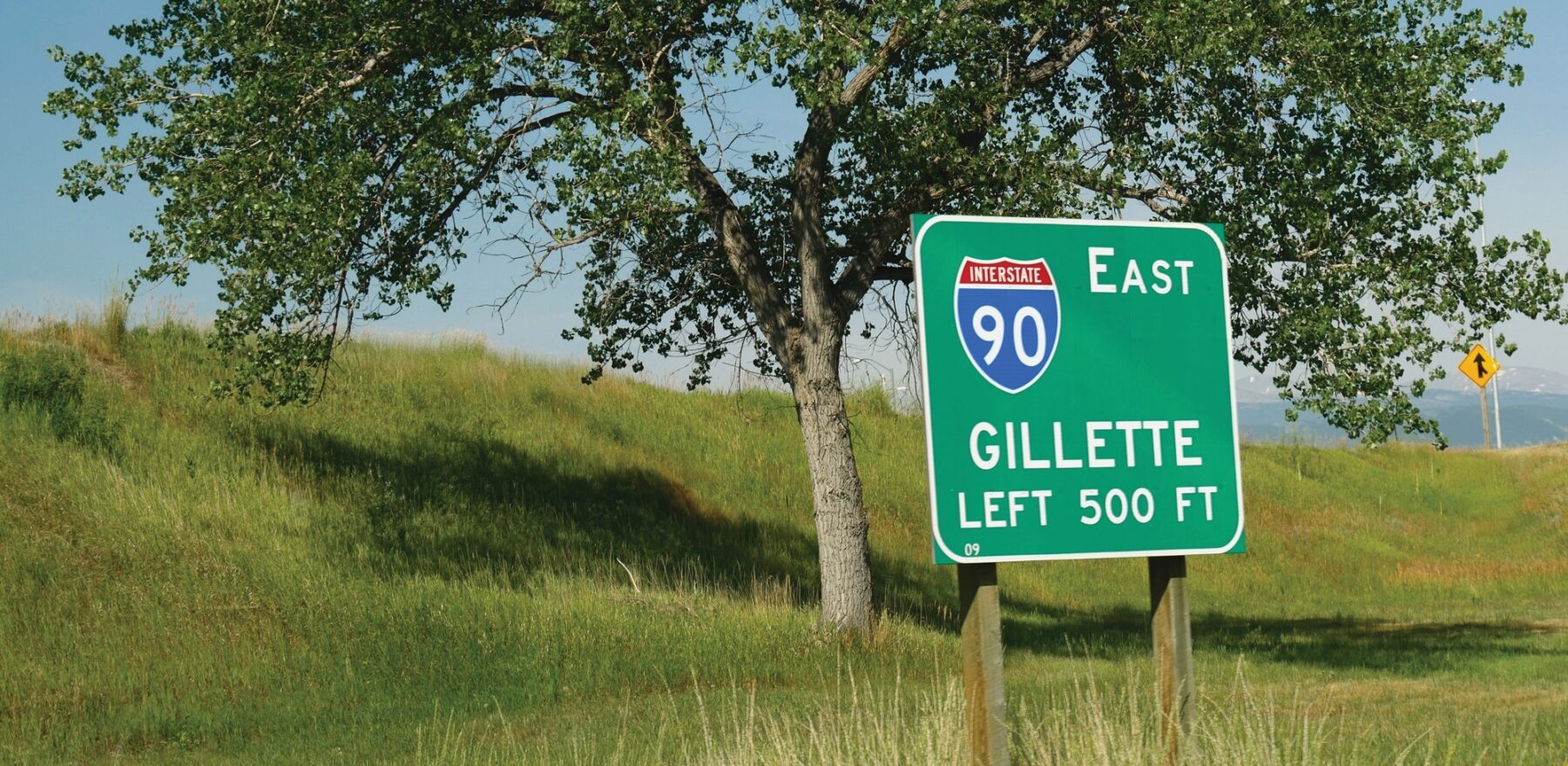
Rusty Bell is the Director of Gillette College’s Office of Economic Transformation, and Justin Loyka is the Wyoming Energy Program Director at the Nature Conservancy. Rusty and Justin are working together to find sustainable, economically viable solutions to the energy transition that is currently taking place in and around Gillette, Wyoming. Gillette and Campbell County, Wyoming have long been leaders in the United States’ coal production business and have been a foundation of West’s economy for decades. But over the past 15 years or so, coal production has decreased by approximately half, which will have far-reaching consequences for Gillette, the state of Wyoming, and the West.
But as coal mining scales back, Gillette is uniquely positioned to capitalize on the rise of renewable energy and the many positive economic and environmental ripple effects that it creates. Campbell County’s landscape, workforce, infrastructure, transmission capabilities, and wildlife migration patterns offer huge opportunities to be a future hotbed of renewable energy. By transitioning reclaimed coal mines into renewable energy sites, Campbell County will not only be able to fill in the economic gap created by the contraction of the coal business, but will be able to allow Gillette to continue its culture of innovation, hard work, and community pride for decades to come.
Rusty was born and raised in Gillette, and Justin’s been living and working in Wyoming for almost 15 years. As you’ll hear, they’ve formed a partnership based on optimism, creativity, respect, and pragmatism, and they are making great strides to bolster the economic and environmental future of northeastern Wyoming. We talked about a lot in this conversation, including: A history of Wyoming’s coal mining business; the culture and community pride of Gillette; why Gillette is a perfect place for renewables; cultural and political views on renewables; wildlife considerations; details around coal mine reclamation, ways to build trust and lasting relationships; and more. Justin and Rusty also share ideas about why they work so well together, and they both offer some great book recommendations and wise parting words.
I loved this conversation and learned so much about not just energy production, but also community pride, pragmatism, problem-solving, and respectful, productive relationships. A huge thanks to Rusty and Justin for joining me, and thank you for listening.
Header photo courtesy of TNC, others courtesy of Rusty and Justin
LISTEN & DOWNLOAD:
Apple Podcasts
Spotify
…or wherever you get your podcasts!
EPISODE PARTNER:
This episode is brought to you in partnership with the Colorado chapter of The Nature Conservancy and TNC chapters throughout the Western United States. Guided by science and grounded by decades of collaborative partnerships, The Nature Conservancy has a long-standing legacy of achieving lasting results to create a world where nature and people thrive.
On the last Tuesday of every month throughout 2024, Mountain & Prairie will be delving into conversations with a wide range of The Nature Conservancy’s leaders, partners, collaborators, and stakeholders, highlighting the myriad of conservation challenges, opportunities, and solutions here in the American West and beyond. You can access all of the episodes here.
To learn more about The Nature Conservancy’s impactful work in the West and around the world, visit www.nature.org
RESOURCES:
Topics Discussed:
- 3:30 – A brief history of the coal business in Wyoming
- 10:00 – The unique culture and economy of Gillette, Wyoming
- 16:30 – Some background on coal mine reclamation
- 22:30 – Why Gillette is such a prime location for renewable energy
- 26:00 – Wildlife considerations
- 29:45 – Transmission capacity considerations
- 31:30 – What is a megawatt?
- 34:00 – The cultural and political acceptance of renewables
- 38:30 – Justin’s approach to building trust in Wyoming communities
- 43:30 – The positive ripple effects of a renewable economy
- 48:30 – What Justin admires about Rusty
- 51:30 – What Rusty admires about Justin
- 53:45 – TNC’s role in this energy and economic transition
- 57:30 – How the new Presidential administration will affect this work
- 1:03:30 – Favorite books
- 1:07:15 – Parting words
Information Referenced:
- Rusty Bell
- Justin Loyka
- A great overview of Rusty and Justin’s partnership
- Gillette, Wyoming
- Campbell County, Wyoming
- Mike Enzi, famed Mayor of Gillette
- Gillette Recreation Center
- Gillette Economic Development
- Coal mine reclamation
- Sagebrush Sea
- Matt Cahill episode
- Powder River Basin
- Peter Gower episode
- Wyoming ungulate migration information
- Wyoming’s Energy Transition Plan
- Wyoming: The Paradox of Plenty by David D Freudenthal
- You Can’t Send a Duck to Eagle School: And Other Simple Truths of Leadership by Mac Anderson and Derek Shetterly
- Blood Meridian: Or the Evening Redness in the West by Cormac McCarthy
- The Once and Future World: Nature As It Was, As It Is, As It Could Be by J.B. MacKinnon
- Ed’s book recs
- Ed’s Good News email
Enjoy this episode? Then you might like these too:
- Dr. Katharine Hayhoe – Effecting Change Through Authentic Conversation
- Mark Easter – Food, Soil, and Our Planet’s Future
- Curt Meine – Aldo Leopold’s Life, Work, and Enduring Legacy
- Mike DeHoff – Exploring the Colorado River’s Reemerging Rapids
- Dr. Sara Dant Returns – “Losing Eden: An Environmental History of the American West”
- SHED SESSION: Everything I Know About Landing a Job in the Conservation World
Visit the podcast page for a full list of episodes where you can filter episodes by topic and guests’ vocations.
Nichole Barger – Science as a Catalyst for Human Connection
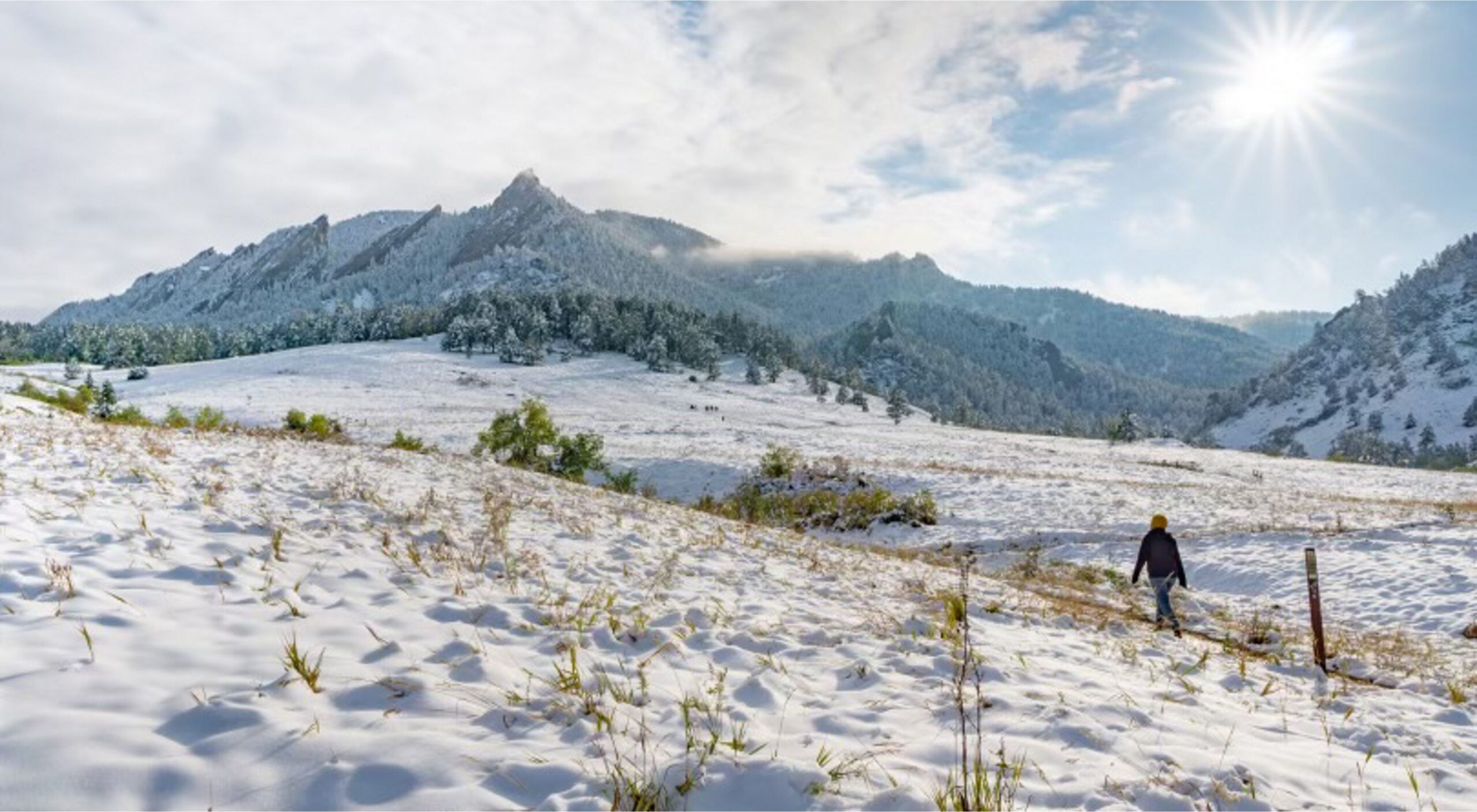
Nichole Barger is an ecologist, former university professor, and the current deputy chief scientist and lead global scientist for The Nature Conservancy. She earned her master’s degree from the University of California at Berkeley and her PhD from Colorado State University, and her career has included extensive time researching, teaching, and practicing on-the-ground, frontline conservation on issues including land degradation, restoration, and more. Prior to assuming her current position at TNC, she was the research director of the Canyonlands Research Center located at the Dugout Ranch, which you may remember as the subject of a Mountain & Prairie episode back in August of 2024.
Given her distinguished career as a scientist, you might be surprised to learn that Nichole never considered pursuing science as a vocation until the second half of her time in college. She grew up in small-town Indiana, and, although she was extremely curious, a great student, and a voracious reader, she was not particularly enamored with science and didn’t know anyone who worked as a scientist. But during college, a supportive-yet-casual comment from one of her professors planted the seed that science could be an option. Fast forward to today, she has published more than 70 peer-reviewed papers, she co-chairs the Science Policy Interface group of the UN Convention to Combat Desertification, and she leads many of TNC’s cutting-edge science initiatives.
As you’ll hear, Nichole brings a deep level of empathy, curiosity, and open-mindedness to all of her work as a scientist. Whether she’s teaching, researching, or working with conservation stakeholders, she never loses sight of the importance of human connection. We spent the first half of the conversation discussing lessons learned from her nontraditional path into the world of science, including a two-year stint where she left college to travel and explore the United States. We discussed her renewed focus on academics when she returned to school, and the moment that professor planted the seed that eventually grew into her career in science. We discuss teaching versus research, how she evolved as an educator and mentor to college students, and when she decided to apply her talents to TNC’s mission. We discuss TNC’s incorporation of Indigenous wisdom and science into its work, human health as a conservation initiative, and the importance of face-to-face human interactions. She also offers some excellent book recommendations and ideas for remaining optimistic and action-oriented during challenging times.
There’s so much wisdom packed into this episode, so be sure to check out the episode notes for a complete list of topics and links to everything. A huge thanks to Nichole for the great conversation and thank you for listening.
Photos courtesy of TNC: Header © Dave Hebert, headshot © Garrett Herndon
LISTEN & DOWNLOAD:
Apple Podcasts
Spotify
…or wherever you get your podcasts!
EPISODE PARTNER:
This episode is brought to you in partnership with the Colorado chapter of The Nature Conservancy and TNC chapters throughout the Western United States. Guided by science and grounded by decades of collaborative partnerships, The Nature Conservancy has a long-standing legacy of achieving lasting results to create a world where nature and people thrive.
On the last Tuesday of every month throughout 2024, Mountain & Prairie will be delving into conversations with a wide range of The Nature Conservancy’s leaders, partners, collaborators, and stakeholders, highlighting the myriad of conservation challenges, opportunities, and solutions here in the American West and beyond. You can access all of the episodes here.
To learn more about The Nature Conservancy’s impactful work in the West and around the world, visit www.nature.org
RESOURCES:
Topics Discussed:
- 4:00 – Nichole’s upbringing and early years
- 7:45 – Taking a non-traditional path and her parents’ reaction
- 9:30 – Lessons learned from her two-year break
- 11:00 – Books read in high school that gave Nichole confidence to follow her own path
- 12:30 – Returning to school with a renewed focus
- 15:30 – Advice to college students who are trying to find their way in the world
- 18:15 – Her journey to becoming a successful scientist
- 20:30 – Research versus teaching
- 22:45 – Lessons learned from years of teaching
- 26:30 – When and how TNC became a professional focus
- 29:30 – Nichole describes her current job at TNC
- 31:15 – Incorporating Indigenous knowledge into TNC’s science work
- 40:00 – The importance and power of weaving in Indigenous knowledge
- 43:00 – Human health as a conservation initiative
- 47:00 – “Doom and Gloom” is not a motivating strategy
- 50:00 – Online resources for news and science (that won’t make you crazy)
- 52:00 – The importance of being with people
- 53:15 – The most exciting project Nichole is working on
- 55:00 – What can the average person do to take action and make a difference
- 59:00 – Book recommendations
- 1:03:00 – Parting words of wisdom
Information Referenced:
- Nichole Barger
- Science programs at TNC
- Wheatfield, Indiana
- Evergreen State College
- UC Berkeley
- Colorado State University
- University of Colorado at Boulder
- Flipped classroom
- BLM
- Colorado Plateau
- Canyonlands Research Center
- United Nations – UNCCD Science-Policy Interface
- Dugout Ranch
- Heidi Redd and Sue Bellagamba podcast
- Celene Hawkins and Izabella Ruffino
- Leave It As It Is by David Gessner
- The Gifts of Imperfection by Brene Brown
- Thinking, Fast and Slow by Daniel Kahneman
Enjoy this episode? Then you might like these too:
- Dr. Katharine Hayhoe – Effecting Change Through Authentic Conversation
- Mark Easter – Food, Soil, and Our Planet’s Future
- Kristine Tompkins – Nothing to Lose
- Dr. Emily Howe – The Interconnectedness of Mountains, Forests, Rivers, and Estuaries
- Dr. Sara Dant Returns – “Losing Eden: An Environmental History of the American West”
- Curt Meine – Aldo Leopold’s Life, Work, and Enduring Legacy
Visit the podcast page for a full list of episodes where you can filter episodes by topic and guests’ vocations.
Kelsey Molloy & Angel DeVries – Fortifying Grasslands and Communities on the Northern Great Plains
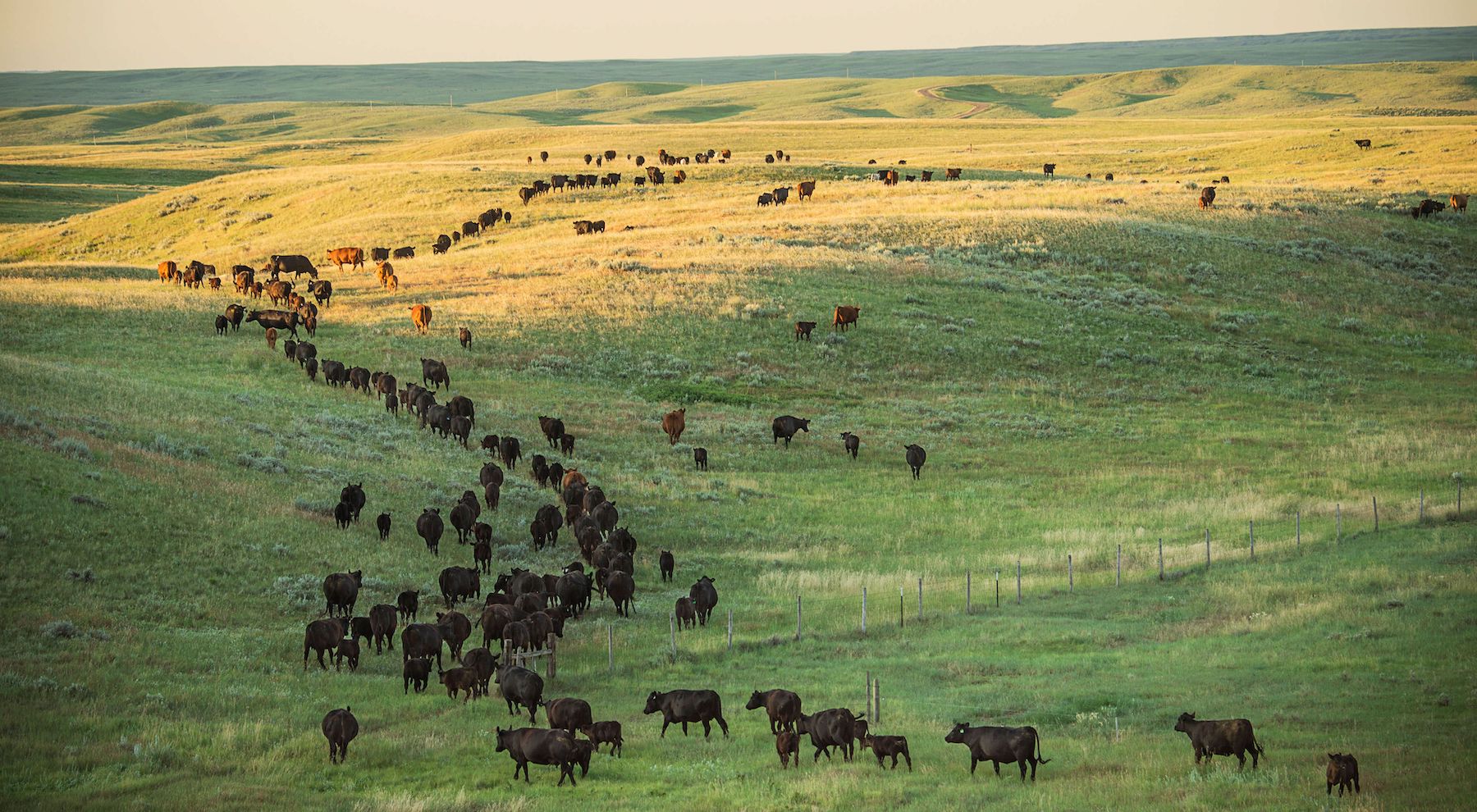
Kelsey Molloy is the Northern Great Plains Director at The Nature Conservancy and Angel DeVries is the Executive Director of the Ranchers Stewardship Alliance (RSA), and they both live and work on the Northern Great Plains in Malta, Montana. While they work for different organizations, Kelsey and Angel collaborate on a long list of critical projects, most of which are focused on grassland conservation, ranching, and community partnerships.
One of their most notable collaborations involves the Matador Ranch, a 60,000-acre TNC-owned property near Dodson, Montana. The Matador Ranch is home to an outside-the-box conservation initiative known as a grassbank, which is a partnership opportunity that offers ranchers grazing access to rich grasses in exchange for adopting sustainable practices on their own property.
This grassbank was introduced during the historic drought of the early 2000s, and it offered much needed grazing opportunities for ranching families whose homeplaces had been hit hard by the dry conditions. Since then, for the past 20+ years, the grassbank has continued to provide win-win solutions for ranchers and conservation-focused non-profit organizations, as well as helping to bolster trust, goodwill, and community cohesiveness.
As you’ll hear in this conversation, the grassbank has been such a success, the TNC is currently searching for another ranch to acquire and eventually transform into a community led and owned grassbank. This “grassbank 2.0” will not only provide a grazing safety net during times of drought, but will also further the work of providing opportunities for new or young ranchers who are just entering the business but do not yet have the capital to purchase their own land.
We connected via the magic of the internet, and had a wide-ranging conversation about their productive collaboration, grassbanks, challenges and opportunities in the Northern Great Plains, and more. We discussed the work of the Ranchers Stewardship Alliance, the history of the Matador Ranch, and the ins and outs of the Matador Ranch grassbank. We discussed how skyrocketing land values are making it nearly impossible for new ranchers to enter the business, and also how succession planning is becoming an important, but often underappreciated, issue for ranching families. We also talked a lot about the need for optimism and curiosity, the importance of building community, and how TNC and RSA are working to bridge cultural and geographic divides. We also learn about RSA’s book club, which will likely be of great interest to many of you.
I learned so much from this conversation and appreciate Kelsey and Angel taking time out of their busy schedules to chat with me. Hope you enjoy!
Header photo © Ami Vitale/TNC, headshots courtesy of Kelsey and Angel
LISTEN & DOWNLOAD:
Apple Podcasts
Spotify
…or wherever you get your podcasts!
EPISODE PARTNER:
This episode is brought to you in partnership with the Colorado chapter of The Nature Conservancy and TNC chapters throughout the Western United States. Guided by science and grounded by decades of collaborative partnerships, The Nature Conservancy has a long-standing legacy of achieving lasting results to create a world where nature and people thrive.
On the last Tuesday of every month throughout 2024, Mountain & Prairie will be delving into conversations with a wide range of The Nature Conservancy’s leaders, partners, collaborators, and stakeholders, highlighting the myriad of conservation challenges, opportunities, and solutions here in the American West and beyond. You can access all of the episodes here.
To learn more about The Nature Conservancy’s impactful work in the West and around the world, visit www.nature.org
RESOURCES:
Topics Discussed:
- 4:00 – Kelsey and Angel introduce themselves
- 8:10 – Background on the Ranchers Stewardship Alliance (RSA)
- 10:00 – A few of the biggest challenges facing Great Plains ranchers
- 15:30 – The history of the Matador Ranch and the grassbank
- 22:00 – Lessons learned from the grassbank
- 24:15 – A local’s perspective on the grassbank
- 25:30 – Wildlife-friendly fencing explained
- 26:30 – Other examples of grassbanks
- 30:15 – Emerging plans for a new grassbank
- 33:45 – Steps involved in finding a new property
- 36:00 – Success stories from the Matador Ranch
- 41:00 – Easements as a tool for grasslands restoration
- 43:45 – Importance of positivity and optimism
- 48:45 – Importance of optimism
- 52:00 – Important books
- 56:15 – RSA book club
- 59:45 – Words of wisdom
Information Referenced:
- Kelsey Molloy
- Angel DeVries
- TNC Montana
- Ranchers Stewardship Alliance
- Matador Ranch
- Malta, MT
- AUM
- Matt Morehead
- Amber Smith
- Winnett ACES
- Bowdoin National Wildlife Refuge
- Plowprint report from World Wildlife Fund
- Pioneer Cattleman in Montana: The Story of the Circle C Ranch by Walt Coburn
- Dirt: The Erosion of Civilizations by David R. Montgomery
- Nature’s Best Hope: A New Approach to Conservation That Starts in Your Yard by Douglas W. Tallamy
- The Unabomber Manifesto: Industrial Society and Its Future
- Brené Brown
- Atomic Habits: An Easy & Proven Way to Build Good Habits & Break Bad Ones by James Clear
- Start with Why: How Great Leaders Inspire Everyone to Take Action by Simon Sinek
- Otters Dance: A Rancher’s Journey to Enlightenment and Stewardship by Bob Budd
- RSA Book Club and other events
- Elaine Froese
Enjoy this episode? Then you might like these too:
- Kate Mannix – A Legacy of Land Stewardship
- Amber Smith – Creating Connection & Community
- Anna Borgman – Obsession, Curiosity, and Purpose-Driven Work
- Celene Hawkins & Izabella Ruffino – Tribal Partnerships, Indigenous Voices, Cutting-Edge Conservation
- Heidi Redd & Sue Bellagamba – Tales from the Dugout Ranch
- Lorelei Cloud – Solving Modern-Day Challenges with Ancient Tribal Wisdom
Visit the podcast page for a full list of episodes where you can filter episodes by topic and guests’ vocations.
Mauricia Baca – An Empathetic Approach to Nevada’s Conservation Challenges


Mauricia Baca is the State Director of the Nevada Chapter of The Nature Conservancy. In this role, she leads TNC’s efforts in Nevada across a wide range of conservation issues that are familiar to Mountain & Prairie listeners– the Colorado River, the Sagebrush Sea, and renewable energy. But Nevada is also home to some very unique conservation challenges related to biodiversity, mining for rare earth metals, groundwater for agriculture, and more. So I was excited to have this opportunity to learn from Mauricia about some of the specific challenges facing Nevada, TNC’s solutions to these challenges, and how the lessons learned can be applied in other regions of the West.
Mauricia was born in Mexico, grew up in New York City, and credits much of her love of nature and the environment to her childhood experiences exploring Central Park. After college, she served in the Peace Corps, worked as a community organizer in New York, and eventually attended law school. After four years of working as a prosecutor for the United States Department of Justice’s Environment and Natural Resources Division, she moved to Nevada and began her first position with The Nature Conservancy, leading conservation work on the Truckee River. She has served as the State Director since November 2020, and, as you’ll hear, all of her efforts are infused with a deep level of compassion, empathy, and gratitude.
Mauricia has such a fascinating personal and professional trajectory, and there are many lessons to be learned from both her approach to her life and career, and the specifics of TNC’s critical work in Nevada. We talked about her youth in Mexico and New York City, and how she has been committed to environmental work since she was a very young girl. We discuss her stint in the Peace Corps and how those experiences laid the groundwork for her current work with TNC. She shares some insights from switching from the litigation world to the conservation world, and she offers some wisdom for folks looking to make a similar transition. We discuss lithium mining, groundwater conservation, and climate change, and how TNC is making strides to protect biodiversity while balancing society’s growing need for rare earth metals, water, and development. She also shares some wisdom gleaned from her recent battle with breast cancer, and discusses how her approach to work has changed since that life-altering health scare.
A big thanks to Mauricia for being so open and thoughtful, and for sharing so many wonderful insights from her inspiring career. Be sure to check out the episode notes below for links to everything we discussed and to watch Mauricia’s recent TEDx talk, which serves as a great companion to this interview. Enjoy!
Header photo © Chip Carroon/TNC, headshot © The Nature Conservancy
LISTEN & DOWNLOAD:
Apple Podcasts
Spotify
…or wherever you get your podcasts!
EPISODE PARTNER:
This episode is brought to you in partnership with the Colorado chapter of The Nature Conservancy and TNC chapters throughout the Western United States. Guided by science and grounded by decades of collaborative partnerships, The Nature Conservancy has a long-standing legacy of achieving lasting results to create a world where nature and people thrive.
On the last Tuesday of every month throughout 2024, Mountain & Prairie will be delving into conversations with a wide range of The Nature Conservancy’s leaders, partners, collaborators, and stakeholders, highlighting the myriad of conservation challenges, opportunities, and solutions here in the American West and beyond. You can access all of the episodes here.
To learn more about The Nature Conservancy’s impactful work in the West and around the world, visit www.nature.org
RESOURCES:
Topics Discussed:
- 4:00 – Mauricia’s upbringing and early years in Mexico and New York City
- 7:00 – When she knew she wanted to devote her career to environmental work
- 9:15 – Legal training as thought training
- 11:45 – How the Peace Corps and other experiences helped her learn to build trust and relationships
- 16:45 – When TNC entered Mauricia’s life as a next career step
- 19:45 – More details on how she was able to land her first job with TNC
- 24:00 – Career evolution within TNC
- 26:00 – Starting as TNC State Director at the beginning of the pandemic
- 28:45 – Tackling climate-related challenges in Nevada and beyond
- 34:00 – The Atwood Preserve and the quiet beauty of the Mojave Desert
- 39:00 – TNC’s work to preserve biodiversity in the face of lithium mining
- 43:45 – The importance of groundwater for Nevada’s ag sector
- 49:00 – Working in partnership with Tribal communities
- 54:00 – Thinking locally and acting globally
- 56:00 – Lessons learned from Mauricia’s recent cancer scare
- 1:03:30 – Favorite books
- 1:06:00 – Parting words of wisdom
Information Referenced:
- Mauricia Baca
- The Nature Conservancy in Nevada
- TNC Nevada’s 40th Anniversary
- Mauricia’s TEDx talk
- The Sagebrush Sea
- The Colorado River
- Secrets of the Mojave
- TNC’s work on groundwater
- TNC’s lithium report
- Power of Place-West
- Mining the Sun
- Peace Corps
- Department of Justice’s Environment and Natural Resources Division
- Truckee River
- Get Outdoors Nevada
- Atwood Preserve
- Amargosa River
- Ash Meadows
- How the nation’s driest state is using cash to free up water The Washington Post
- Celene and Izabella episode
- Silent Spring by Rachel Carson
- Dumping in Dixie by Robert Bullard
- Gabriel García Márquez
- Isabel Allende
- The House of the Spirits by Isabel Allende
- Cloud Cuckoo Land by Anthony Doerr
Enjoy this episode? Then you might like these too:
- Pete McBride Returns – Exploring & Documenting His Backyard River
- Dan Stellar – Bolstering Biodiversity in Arizona and Beyond
- Kate Mannix – A Legacy of Land Stewardship
- Matt Pierson – Finding New Solutions for Food Insecurity
- Douglas Brinkley – Exploring the Past to Find Inspiration for the Future
- Dr. Sara Dant Returns – “Losing Eden: An Environmental History of the American West”
Visit the podcast page for a full list of episodes where you can filter episodes by topic and guests’ vocations.
Heidi Redd & Sue Bellagamba – Tales from the Dugout Ranch
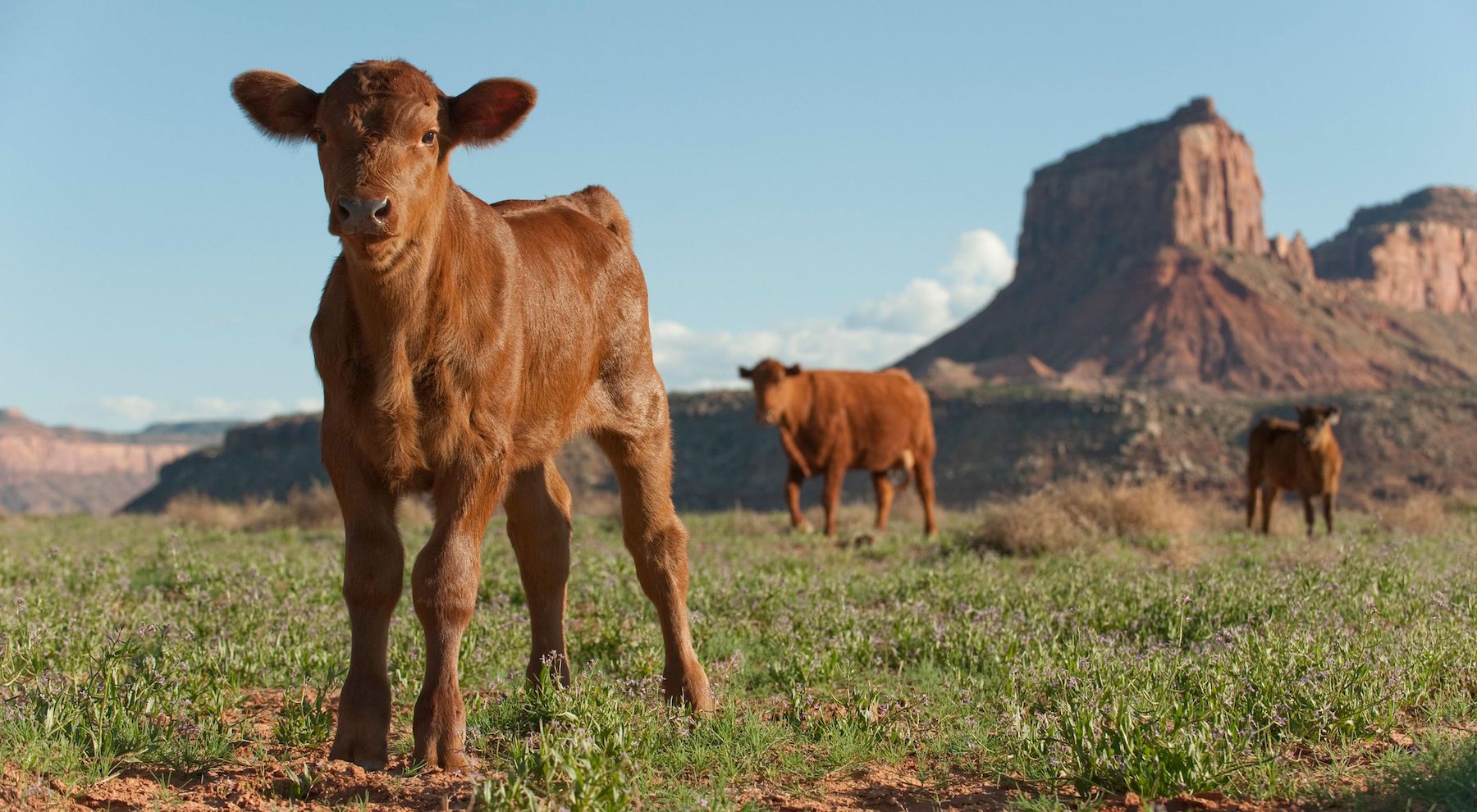
Heidi Redd is a renowned rancher, conservationist, author, and member of the National Cowgirl Museum’s Hall of Fame. Sue Bellagamba serves as Canyonlands Regional Director at the Nature Conservancy, and for more than thirty years, she has worked to protect the lands and waters of southeastern Utah.
Heidi and TNC have been partners since 1997 when Heidi sold her family’s Utah ranch– The Dugout Ranch– to the Nature Conservancy in a historic conservation deal that protected the property from impending development. The Dugout Ranch is located at the gateway to Canyonlands National Park and sits within the boundaries of what is now Bears Ears National Monument– a fragile and arid landscape that has faced various development and environmental threats for many decades.
Heidi and Sue have worked together in many capacities over the years, with one of their most notable achievements being the creation of The Canyonlands Research Center (“CRC”), which is headquartered at the Dugout Ranch. The CRC was founded in 2010, and its mission is to “promote a sustainable future on the Colorado Plateau for people and nature through research, inspiration, and demonstration of evidence-based solutions to solve some of our most pressing ecological, social, and economic issues.”
Heidi is also the author of the excellent new book titled A Cowgirl’s Conservation Journey: Stories from the Dugout Ranch. The book details her fascinating and adventurous life, with tales ranging from her youth (which included lots of rock climbing and skydiving), to her early years on the Dugout Ranch, all the way up to some recent behind-the-scenes stories from the designation of Bears Ears as a National Monument. If you’re a fan of history, adventure, ranching, conservation, and purpose-driven people, I know you’ll enjoy the book.
We covered a lot in the episode, including Heidi’s upbringing, her first visit to the Dugout Ranch, and when she knew that she would devote her life to stewarding the Dugout’s spectacular landscapes. Sue provides some excellent context around conservation in the American Southwest, and why drylands are such a critical ecosystem and focus of TNC’s efforts. We discuss how TNC initially built trust with Heidi back in the 1990s, the creation of The Canyonlands Research Center, new insights Heidi gleaned from writing her book, and much more. Be sure to visit the episode notes for links to everything we discuss, including Heidi’s book.
A huge thanks to Heidi and Sue for taking the time to chat with me and share their wisdom from so many decades of conversation work in such a special part of the country. Enjoy!
Photos courtesy of The Nature Conservancy, header photo and Heidi’s headshot © Ted Wood
LISTEN & DOWNLOAD:
Apple Podcasts
Spotify
…or wherever you get your podcasts!
EPISODE PARTNER:
This episode is brought to you in partnership with the Colorado chapter of The Nature Conservancy and TNC chapters throughout the Western United States. Guided by science and grounded by decades of collaborative partnerships, The Nature Conservancy has a long-standing legacy of achieving lasting results to create a world where nature and people thrive.
On the last Tuesday of every month throughout 2024, Mountain & Prairie will be delving into conversations with a wide range of The Nature Conservancy’s leaders, partners, collaborators, and stakeholders, highlighting the myriad of conservation challenges, opportunities, and solutions here in the American West and beyond. You can access all of the episodes here.
To learn more about The Nature Conservancy’s impactful work in the West and around the world, visit www.nature.org
RESOURCES:
Topics Discussed:
- 4:00 – Heidi’s upbringing
- 7:15 – Heidi describes the Dugout Ranch
- 13:30 – When Heidi knew she wanted to dedicate her life to the Dugout Ranch and surrounding area
- 16:00 – When Heidi took the reins of the Dugout
- 20:45 – When Heidi became interested in working with TNC
- 24:30 – Why Heidi trusted TNC
- 26:45 – Sue explains why TNC wanted to get involved with the Dugout Ranch and what their plan was once they purchased it
- 30:15 – Sue explains the mission and purpose of the Canyonlands Research Center
- 32:15 – When climate change got on Heidi’s radar
- 37:45 – How Heidi discusses climate change, given our political climate
- 41:30 – Sue explains why drylands are so important
- 44:00 – Heidi and Sue explain the impact of the political battle surrounding Bears Ears on their work
- 50:30 – Heidi discusses whether or not writing her book helped her come to new conclusions
- 54:00 – Heidi’s hopes for her family
- 55:30 – Heidi and Sue’s book recommendations
- 59:45 – Parting words of wisdom
Information Referenced:
- A Cowgirl’s Conservation Journey by Heidi Redd
- The Dugout Ranch
- Heidi’s Cowgirl Hall of Fame induction video
- Canyonlands Research Center
- Cisco (fish)
- Canyonlands Field Institute
- Abajo Mountains UT
- Senator Rob Bishop
- Secretary of the Interior Sally Jewell
- Desert Solitaire by Edward Abbey
- Book of the Hopi by Frank Waters
- Blow Sand in His Soul: Bates Wilson, the Heart of Canyonlands by Jen Jackson Quintano
- Beyond the Hundredth Meridian by Wallace Stegner
Enjoy this episode? Then you might like these too:
- Kristine Tompkins – Nothing to Lose
- Jenna Pollard – Timber Framing, Organic Farming, Community, and Purpose
- Corissa Busse – Tribal-Led Buffalo Restoration in the American West and Beyond
- Anna Borgman – Obsession, Curiosity, and Purpose-Driven Work
- Lorelei Cloud – Solving Modern-Day Challenges with Ancient Tribal Wisdom
- Dr. Katharine Hayhoe – Effecting Change Through Authentic Conversation
Visit the podcast page for a full list of episodes where you can filter episodes by topic and guests’ vocations.
Nancy Smith & Austin Rempel – A Surprisingly Simple, Effective, and Scalable Approach to Riparian Restoration
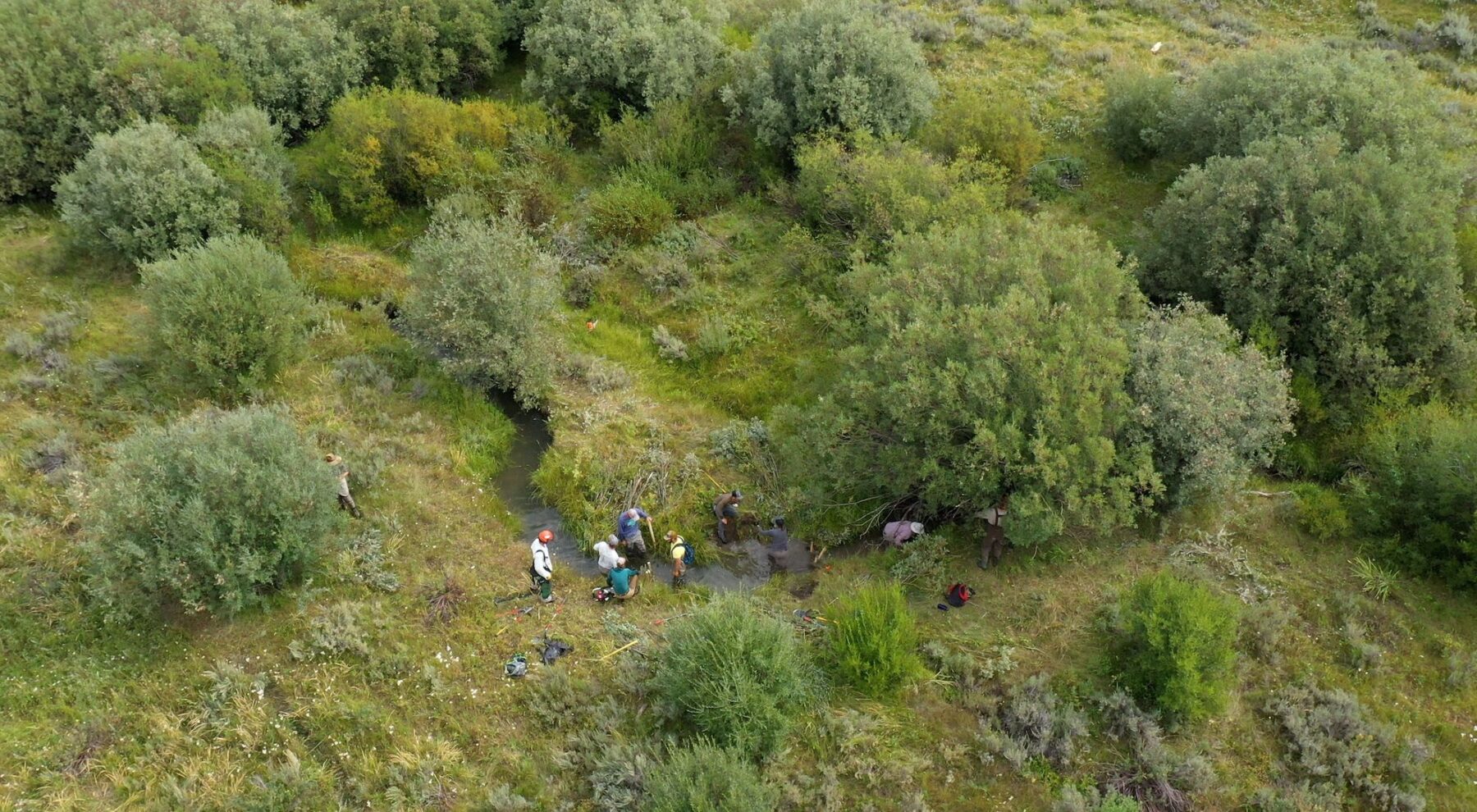
Nancy Smith is the Conservation Director for The Nature Conservancy’s Colorado River Program, and Austin Rempel is the Riparian Restoration Program Manager at The Nature Conservancy. Both Nancy and Austin are working on the front lines of some of the West’s most innovative water and habitat conservation projects– projects that benefit everything from groundwater supplies to wildlife habitat, climate resiliency to ecosystem health.
If you’ve listened to many of these TNC-focused episodes, then you’ll know that TNC works extensively throughout the Colorado River Basin on a wide range of conservation issues that affect people, wildlife, and landscapes. In this episode, we’re going to zoom in on one very specific, very simple, and very effective process that has the potential to have massive positive impacts on ecosystem health throughout the West.
The process is called “low-tech process-based restoration,” which is the practice of adding simple, low-cost structures made of natural materials like rocks, wood, and posts to simulate natural processes like beaver dams in streams and wetlands, kick-starting natural cycles of recovery. These structures require minimal permitting, can be built quickly by hand without heavy equipment, use locally sourced materials, and can be installed by local workers who do not need extensive training. The end result creates surprisingly effective outcomes that can be scaled quickly across vast stretches of the West.
We recorded this conversation the day after Colorado River Day, which was a fitting time to highlight such an important project and process. We started out by discussing how this project came to be, which involved a significant amount of funding from the Inflation Reduction Act. We discuss how rivers have historically looked in the West versus how they look now, as well as the ecological complexities of riverscapes and riparian corridors. We then dig into the details of “low-tech process-based restoration”– timelines, challenges, opportunities, partnerships, and measuring success. We also talk about beavers, shifting cultural norms around conservation, overlaps between forest and riparian restoration, favorite books, and much more.
As you’ll hear, Nancy and Austin provide such an excellent overview of several varieties of low-tech process-based restoration. But for those of you who want to dig deeper into details of the various processes and case studies, they’ve provided me with extensive additional resources that you can access in the episode notes. I’d also encourage you to check out the short film embedded on the episode’s webpage, which will give you a visual overview of the process and its results.
A big thanks to Nancy and Austin for the fun conversation, and thank you for listening.
Photos courtesy of The Nature Conservancy, header photo © Jeremy Roberts
LISTEN & DOWNLOAD:
Apple Podcasts
Spotify
…or wherever you get your podcasts!
EPISODE PARTNER:
This episode is brought to you in partnership with the Colorado chapter of The Nature Conservancy and TNC chapters throughout the Western United States. Guided by science and grounded by decades of collaborative partnerships, The Nature Conservancy has a long-standing legacy of achieving lasting results to create a world where nature and people thrive.
On the last Tuesday of every month throughout 2024, Mountain & Prairie will be delving into conversations with a wide range of The Nature Conservancy’s leaders, partners, collaborators, and stakeholders, highlighting the myriad of conservation challenges, opportunities, and solutions here in the American West and beyond. You can access all of the episodes here.
To learn more about The Nature Conservancy’s impactful work in the West and around the world, visit www.nature.org
RESOURCES:
Topics Discussed:
- 4:00 – Nancy’s intro
- 5:26 – Austin’s intro
- 7:15 – The impact of wet upland meadows on the Colorado River (Nancy)
- 10:00 – How the Inflation Reduction Act has funded TNC’s important partnership work (Nancy)
- 13:30 – Defining the low-tech, process-based, restoration (LTPBR) involved in this project (Austin)
- 16:30 – What meadows have historically looked like in the American West (Austin and Nancy)
- 21:00 – Describing more of the structures TNC uses in this work, like beaver dam analogs (Austin)
- 26:30 – What kind of land TNC does this restoration work on (Austin)
- 29:30 – How long this work takes (Austin and Nancy)
- 33:30 – What success will look like for this work (Nancy)
- 37:30 – How LTPBRs help empower crucial work by being simple
- 40:45 – What could make or break this project (Austin and Nancy)
- 44:00 – TNC’s ability to balance innovation with responsible stewardship of funding (Nancy)
- 46:30 – Overlaps between river and forest restoration (Austin)
- 50:30 – What would make a good staff member for this work
- 55:45 – Nancy’s book recommendations
- 57:00 – Austin’s book recommendations
- 59:18 – Nancy’s parting words of wisdom
- 1:00:10 – Austin’s parting words of wisdom
Information Referenced:
- Nancy Smith
- Austin Rempel
- Other approaches to low-tech process-based restoration
- Rob Addington
- Matt Cahill
- Inflation Reduction Act
- Trout Unlimited
- Wet meadow restoration work
- Examples of LTPBR structures
- A summary of LTPBR work on BLM land
- Beavers’ impacts on wildfire resilience (video)
- The Emerald Mile by Kevin Fedarko
- Water: A Natural History by Alice Outwater
- Eager by Ben Goldfarb
Enjoy this episode? Then you might like these too:
- Pete McBride Returns – Exploring & Documenting His Backyard River
- Mike DeHoff – Exploring the Colorado River’s Reemerging Rapids
- Lorelei Cloud – Solving Modern-Day Challenges with Ancient Tribal Wisdom
- Ivy Spohnholz – Climate Solutions, Sustainable Fisheries, and Resilient Communities
- Kristine Tompkins – Nothing to Lose
- Paige Lewis – Durable Conservation, Collective Action, and Strategic Thinking
- Rob Addington – A Deep Dive into Western Wildfires and Forest Health
- Carlos Fernández, Part 2 – Creating Conservation Opportunities During Uncertain Times
Visit the podcast page for a full list of episodes where you can filter episodes by topic and guests’ vocations.
Peter Gower & Chris Menges – Forward-Looking Approaches to the West’s Energy Transition
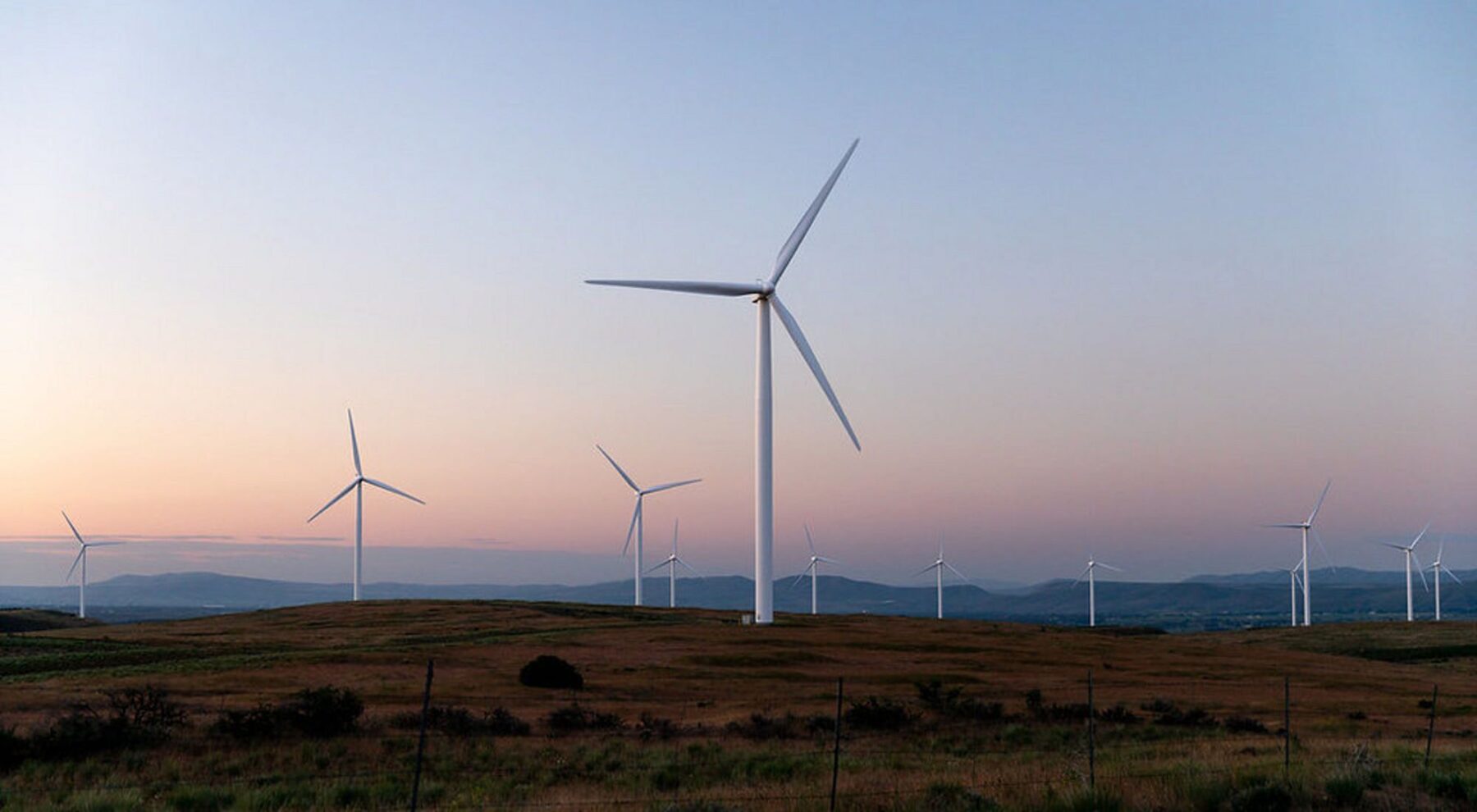
Peter Gower is the Nature Conservancy’s Climate and Renewable Energy Program Director for the Western United States and Canada Divisions, and Chris Menges is the Director of Climate Action for the Colorado Chapter of the Nature Conservancy. Both Peter and Chris are on the front lines of North America’s transition from fossil fuels to renewables, working to find solutions that protect and benefit working lands, natural landscapes, wildlife, and communities.
As you’ll hear in this episode, the transition from fossil fuels to renewables is an incredibly complex process, and Peter and Chris are highly skilled at breaking down the issues and explaining them in a substantive yet easy-to-understand manner. While the details of their work may be complicated, everything Peter and Chris do is built on the very simple foundation of strong relationships, partnerships, and trust, which has been the common theme of all of these TNC-focused episodes.
We connected virtually and had a great conversation about The Nature Conservancy’s work in the renewables space, exploring everything from TNC’s big-picture strategies in the American West, down to a few on-the-ground examples of successful initiatives and projects. We discussed how TNC is working with Western states to help them achieve their energy goals and some of the specific renewable work being done here in Colorado.
We also talked about the challenges of finding sites for renewable energy projects, how market incentives can be used to ensure siting that benefits both people and nature, and recently passed legislation in Colorado that addresses these issues. We chatted about TNC’s extensive research in the renewables space, including its Power of Place studies. As usual, we discuss their favorite books and some resources to learn more about the issues surrounding renewable energy.
Renewable energy has long been one of those topics that I have never been able to fully wrap my head around, but after this conversation, I felt that I had a solid foundation of knowledge– as well as the curiosity and desire to go out and learn more.
A huge thanks to Peter and Chris for devoting the time to have this extremely educational conversation, and thank you for listening.
Photos courtesy of The Nature Conservancy
LISTEN & DOWNLOAD:
Apple Podcasts
Spotify
…or wherever you get your podcasts!
EPISODE PARTNER:
This episode is brought to you in partnership with the Colorado chapter of The Nature Conservancy and TNC chapters throughout the Western United States. Guided by science and grounded by decades of collaborative partnerships, The Nature Conservancy has a long-standing legacy of achieving lasting results to create a world where nature and people thrive.
On the last Tuesday of every month throughout 2024, Mountain & Prairie will be delving into conversations with a wide range of The Nature Conservancy’s leaders, partners, collaborators, and stakeholders, highlighting the myriad of conservation challenges, opportunities, and solutions here in the American West and beyond. You can access all of the episodes here.
To learn more about The Nature Conservancy’s impactful work in the West and around the world, visit www.nature.org
RESOURCES:
Topics Discussed:
- 3:20 – The state of renewables in the West (Peter)
- 8:05 – Chris’s renewable work on the ground in CO with TNC (Chris)
- 12:35- Challenges and opportunities associated with finding physical sites for renewable projects (Chris)
- 15:50 – Examples of market incentives that Chris thinks would help develop renewable sites to the benefit of as many interests as possible (Chris and Peter)
- 22:20 – Discussing the Power of Place studies (Peter)
- 26:35 – Other major challenges to implementing more renewable energy solutions (Peter)
- 33:05 – Discussing the Connected West study, to be released soon (Peter)
- 36:20 – Building relationships with businesses and large entities (Peter)
- 39:05 – Discussing Colorado SB24-212 (Chris)
- 47:35 – Developing renewable energy sites on “brownfields” (Peter)
- 51:05 – Where to learn more about renewable energy (Peter and Chris)
Information Referenced:
- Peter Gower
- Chris Menges
- TNC’s energy work
- Bill Ritter
- Site Renewables Right tool
- Power of Place West Report
- GridLab
- Gridworks
- Matt Moorhead
- CO SB24-212
- Brunot Agreement Area
- Renewable energy development on “brownfields”
- The EPA’s Repowering Program
- TNC’s Starfire Project
- BrightNight
- Rivian
- A Short History of Nearly Everything by Bill Bryson
- Collapse by Jared Diamond
- The Ezra Klein Show
- Political Climate Podcast
Enjoy this episode? Then you might like these too:
- Lorelei Cloud – Solving Modern-Day Challenges with Ancient Tribal Wisdom
- Carrie Segil & Duncan Gilchrist – Catalyzing Conservation in Colorado and Beyond
- Ivy Spohnholz – Climate Solutions, Sustainable Fisheries, and Resilient Communities
- Kristine Tompkins – Nothing to Lose
- Rob Addington – A Deep Dive into Western Wildfires and Forest Health
- Carlos Fernández, Part 2 – Creating Conservation Opportunities During Uncertain Times
Visit the podcast page for a full list of episodes where you can filter episodes by topic and guests’ vocations.
Dan Stellar – Bolstering Biodiversity in Arizona and Beyond
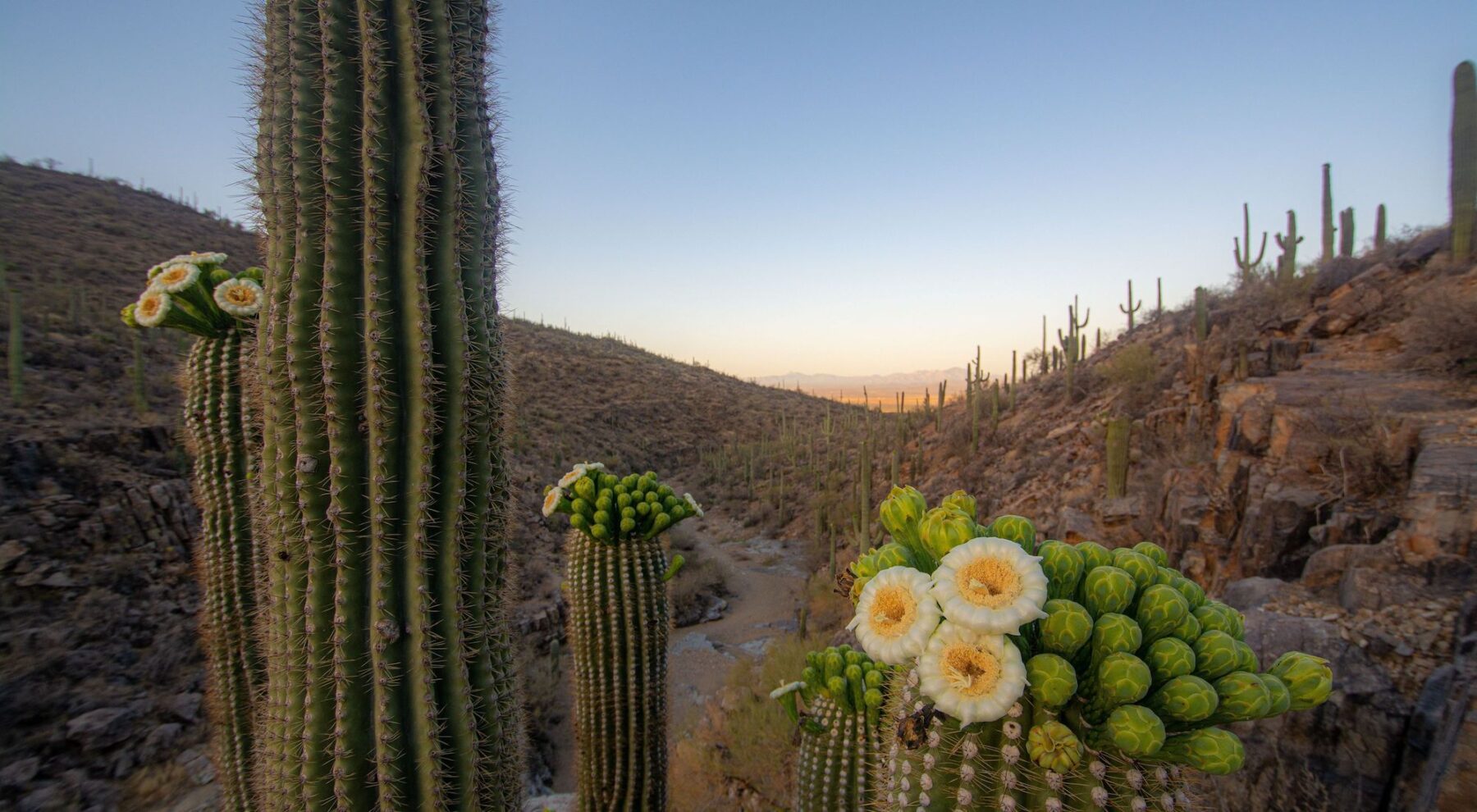
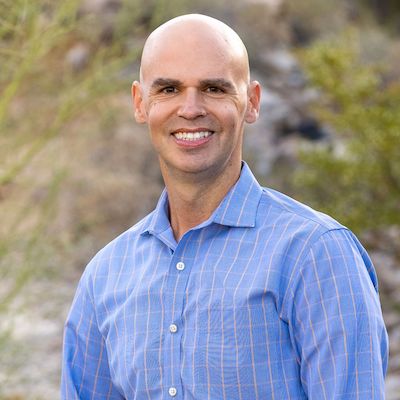
Dan Stellar is the State Director for the Arizona Chapter of The Nature Conservancy, where he leads the organization’s efforts across a wide range of cutting-edge initiatives, including forest health, water conservation, resilient cities, healthy grasslands, and more. Arizona is one of the nation’s largest and most biodiverse states, which creates a host of extremely unique conservation challenges and opportunities– both in its arid, wide-open landscapes and densely populated urban centers. As you’ll hear, Dan and his team are implementing conservation solutions that not only benefit people and nature specifically in Arizona, but they are also creating actionable conservation frameworks that can be applied all over the American West.
Dan was born and raised on the East Coast, and he has spent his career in the non-profit sector, applying his talents to important issues both domestically and abroad. He began his tenure at TNC Arizona in 2016, when he assumed the role of Deputy State Director. He quickly fell in love with Arizona and TNC’s critical work in the state, and, in 2020, he assumed the role of State Director. Dan is also a committed endurance athlete, and he’s run a mind-blowing number of marathons and half-marathons. And on top of all of that, he’s a dedicated father, husband, and family man.
Dan and I share so many common interests in conservation, endurance sports, and family, so I was super excited to have the opportunity to learn more about the specifics of his work and his fascinating personal and professional journey. We started the conversation with an overview of what makes Arizona such a unique place from a conservation perspective, then we dug into the details of TNC’s work in forest heath, rivers, aquifers, outdoor recreation, and resilient cities. We talked about some of the lessons he learned from traveling and working internationally, why he chooses to push himself so hard athletically, and how he goes about building such strong relationships with stakeholders, partner organizations, and his TNC team members. Dan is also a voracious reader, so we obviously chatted about books, and he wrapped up the conversation with very wise parting words.
I felt like I’d met a real kindred spirit in Dan, and I greatly appreciate everything that he and his team are doing to make Arizona—and the West—a better place. I hope you enjoy this conversation as much as I did.
Photos courtesy of The Nature Conservancy: Header image by Ian Adrian/TNC Photo Contest 2022; headshot by Mark Skalny.
LISTEN & DOWNLOAD:
Apple Podcasts
Spotify
…or wherever you get your podcasts!
EPISODE PARTNER:
This episode is brought to you in partnership with the Colorado chapter of The Nature Conservancy and TNC chapters throughout the Western United States. Guided by science and grounded by decades of collaborative partnerships, The Nature Conservancy has a long-standing legacy of achieving lasting results to create a world where nature and people thrive.
On the last Tuesday of every month throughout 2024, Mountain & Prairie will be delving into conversations with a wide range of The Nature Conservancy’s leaders, partners, collaborators, and stakeholders, highlighting the myriad of conservation challenges, opportunities, and solutions here in the American West and beyond. You can access all of the episodes here.
To learn more about The Nature Conservancy’s impactful work in the West and around the world, visit www.nature.org
RESOURCES:
Topics Discussed:
- 3:30 – Setting the scene for conservation work in Arizona
- 8:45 – Forest health work in Arizona
- 15:00 – Aligning profit motives with forest health goals
- 22:00 – Whether or not there are down-sides to forest thinning
- 25:15 – Discussing the Verde River
- 31:15 – Discussing the Big Chino Aquifer
- 35:00 – Collaborating with the Trust for Public Land to build a new park in Arizona
- 39:45 – TNC’s work with cities in Arizona
- 46:00 – Dan’s passion for running, and his attraction to doing hard things
- 50:15 – How Dan fits running into his schedule
- 52:00 – How Dan became interested in conservation
- 57:30 – Dan’s lessons from traveling
- 1:00:00 – Dan’s book recommendations
- 1:04:30 – Dan’s parting words of wisdom
Information Referenced:
- Dan Stellar
- Article about Dan
- The Nature Conservancy in Arizona
- Rob Addington
- Verde River
- Taylor Hawes
- Yavapai-Apache Nation
- Big Chino Aquifer
- RCPP Grant
- Del Rio Springs
- Chris Hawkins
- Paige Lewis
- Endurance by Alfred Lansing
- American Icon by Bryce G. Hoffman
- Alan Mulally
- Radical Candor by Kim Scott
- The Imposter Cure by Dr. Jessamy Hibberd
- Lonesome Dove by Larry McMurtry
- Van Jones
Enjoy this episode? Then you might like these too:
- Lorelei Cloud – Solving Modern-Day Challenges with Ancient Tribal Wisdom
- Sarah King – Collaborative Conservation in the American Southwest
- William deBuys – Sage of the Southwest
- Daniela Ibarra-Howell – Healing the Land Holistically
- Shane Doyle – Reverence for the Past, Hope for the Future
- Dr. Katharine Hayhoe – Effecting Change Through Authentic Conversation
- Rob Addington – A Deep Dive into Western Wildfires and Forest Health
- Chad Ellis – On Leadership, Building Relationships, and Working for the Greater Good
Visit the podcast page for a full list of episodes where you can filter episodes by topic and guests’ vocations.
Celene Hawkins & Izabella Ruffino – Tribal Partnerships, Indigenous Voices, Cutting-Edge Conservation
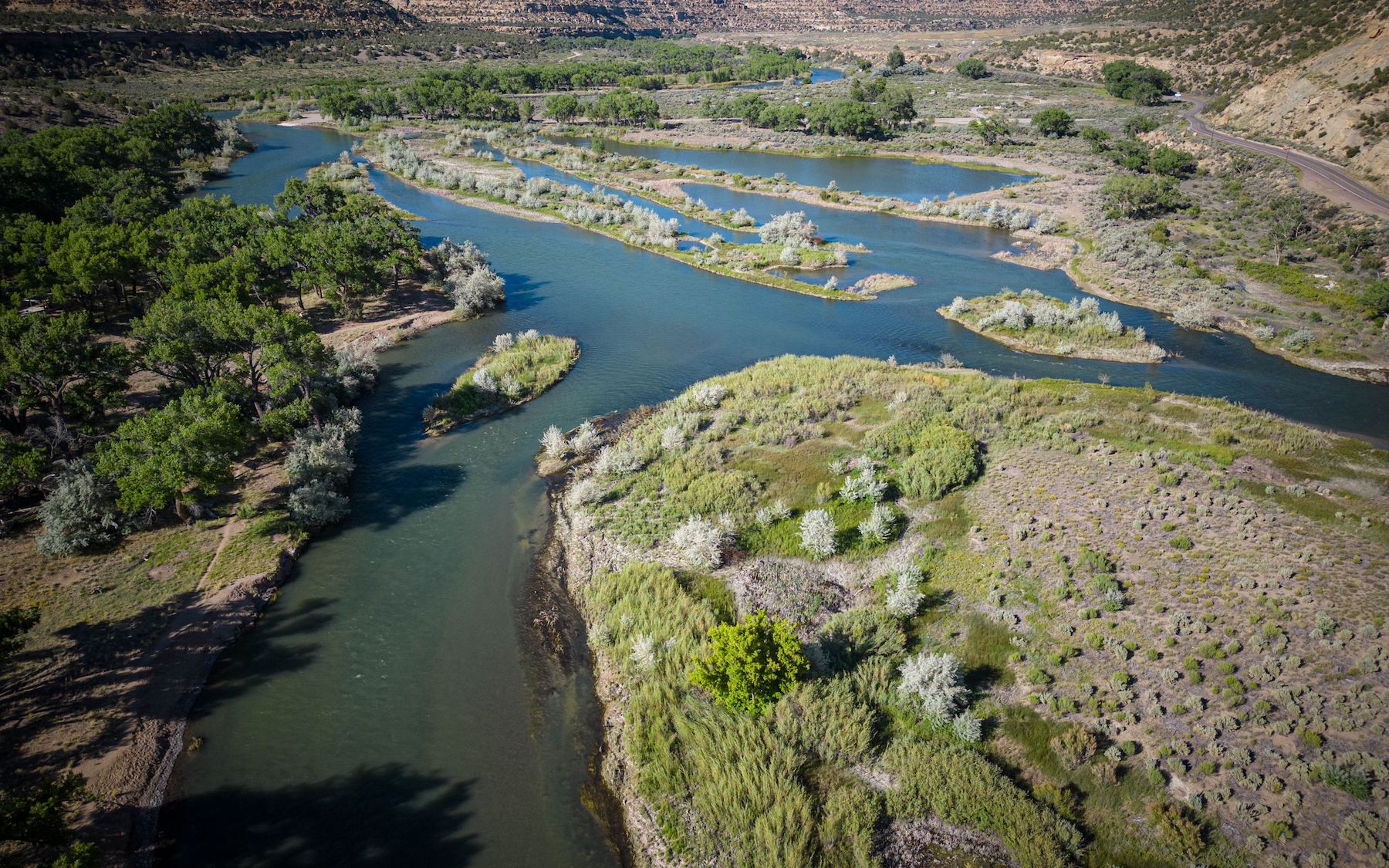
Celene Hawkins is the Colorado River Tribal Water Partnerships Program Director for the Nature Conservancy, and Izabella Ruffino is the Tribal and Indigenous Engagement Program Manager for the Colorado Chapter of the Nature Conservancy. Both Celene and Izabella use their skills to advance and support tribal-led land and water conservation work throughout the American West.
Most of Celene’s work is centered around the Colorado River Basin, and she has played an integral role in many cutting-edge water conservation projects that have sought out Tribal voices and Indigenous perspectives to create some of the West’s most effective and equitable solutions to complex water challenges. Perhaps most notably, she worked with the Jicarilla Apache Nation, the New Mexico Interstate Stream Commission, and her colleagues at TNC to create a first-of-its-kind water agreement that was a true win-win for nature and people.
Izabella’s work builds on TNC’s strong foundation of partnerships with Tribal Nations for land and water issues, and she is also focused on expanding Tribal and Indigenous engagement into all aspects of TNC’s wide-ranging conservation work. Additionally, she is responsible for internal efforts to fortify organizational cultural awareness and humility within TNC’s Colorado Chapter. As you’ll hear, Izabella is doing everything from leading internal educational initiatives to working with wide-ranging stakeholder groups on projects such as determining the best uses for TNC-owned land and preserves.
In this episode, we dig into the details of many of their specific projects and initiatives, but we also talk more broadly about the importance of seeking out Indigenous perspectives to help guide TNC’s critical conservation work worldwide. They both offer plentiful resources– online courses, books, podcasts, essays, and more– that will help me (and you, the listener!) better understand the importance of bringing together diverse perspectives to guide the next chapter of conversation work in the West and beyond.
Celene and Izabella mention so many excellent books, people, and resources, so don’t forget to check out the episode notes for links to everything. A big thanks to them both for such a fun, inspiring, and educational conversation. I hope you enjoy!
Photos courtesy of The Nature Conservancy: Header © Roberto Rosales; headshots from Celene and Izabella.
LISTEN & DOWNLOAD:
Apple Podcasts
Spotify
…or wherever you get your podcasts!
EPISODE PARTNER:
This episode is brought to you in partnership with the Colorado chapter of The Nature Conservancy and TNC chapters throughout the Western United States. Guided by science and grounded by decades of collaborative partnerships, The Nature Conservancy has a long-standing legacy of achieving lasting results to create a world where nature and people thrive.
On the last Tuesday of every month throughout 2024, Mountain & Prairie will be delving into conversations with a wide range of The Nature Conservancy’s leaders, partners, collaborators, and stakeholders, highlighting the myriad of conservation challenges, opportunities, and solutions here in the American West and beyond. You can access all of the episodes here.
To learn more about The Nature Conservancy’s impactful work in the West and around the world, visit www.nature.org
RESOURCES:
Topics Discussed:
- 3:30 – Introductions
- 8:30 – The win-win partnership between the Jicarilla Apache Nation, the New Mexico Interstate Stream Commission, and TNC
- 14:00- Challenges and opportunities related to putting together the partnership deal
- 19:00 – Benefits to all parties as a result of the deal
- 21:30 – Positive ripple effects resulting from the partnership
- 24:15 – TNC’s strategies for managing its preserves, including the Medano Zapata Ranch
- 29:15- The process of gathering Indigenous and local perspectives
- 32:00 – Strategies, tactics, and frameworks for building cross-cultural relationships
- 36:30 – Balancing the time it takes to build solid relationships with the reality that “time is of the essence”
- 40:30 – Upcoming exciting projects
- 44:30 – Resources for further learning
- 50:30 – Why they each chose to apply their talents, skills, and careers to the cause of conservation
- 55:30 – Heroes and mentors
- 1:05:00 – Favorite books
- 1:11:00 – Parting words of wisdom
Information Referenced:
- Celene Hawkins
- Izabella Ruffino
- Taylor Hawes episode
- A Win-Win-Win Solution for the Colorado River
- Jicarilla Apache Nation
- Strategic Water Reserve tool
- Medano Zapata Ranch
- Keystone Policy Center
- Voice, Choice, and Action Framework
- Water and Tribes Initiative
- Indian Country 101 training
- Whitener Group
- All My Relations podcast
- Inhabitants film
- Turtle Talk
- This Land podcast
- The Serviceberry by Robin Wall Kimmerer
- Quincy Library Group
- Braiding Sweetgrass by Robin Wall Kimmerer
- Charles Wilkinson
- Sara Krakoff
- Ten Tribes Partnership
- Regina Lopez Whiteskunk
- Lorelei Cloud
- Colorado Water Conservation Board
- Return the National Parks to the Tribes by David Treuer
- Omnivore’s Dilemma by Michael Pollen
- This is Your Mind on Plants by Michael Pollen
- The Secret Network of Nature by Peter Wohlleben
- The Hidden Life of Trees by Peter Wohlleben
- An Indigenous Peoples’ History of the United States by Roxanne Dunbar-Ortiz
- As Long as the Grass Grows by Dina Gilio-Whitaker
- Fresh Banana Leaves by Jessica Hernandez
- The Monkey Wrench Gang by Edward Abbey
- Doug Peacock
Enjoy this episode? Then you might like these too:
- Rebecca Clarren – “The Cost of Free Land”
- Lorelei Cloud – Solving Modern-Day Challenges with Ancient Tribal Wisdom
- Doug Peacock – 50 Years of Fighting for the Grizzlies
- Equitable Access to the Outdoors in Texas
- Douglas Brinkley – Exploring the Past to Find Inspiration for the Future
- Shane Doyle – Reverence for the Past, Hope for the Future
- Dr. Sara Dant Returns – “Losing Eden: An Environmental History of the American West”
Visit the podcast page for a full list of episodes where you can filter episodes by topic and guests’ vocations.
Kevin Krasnow – Keeping Jackson Hole Wild and Beautiful
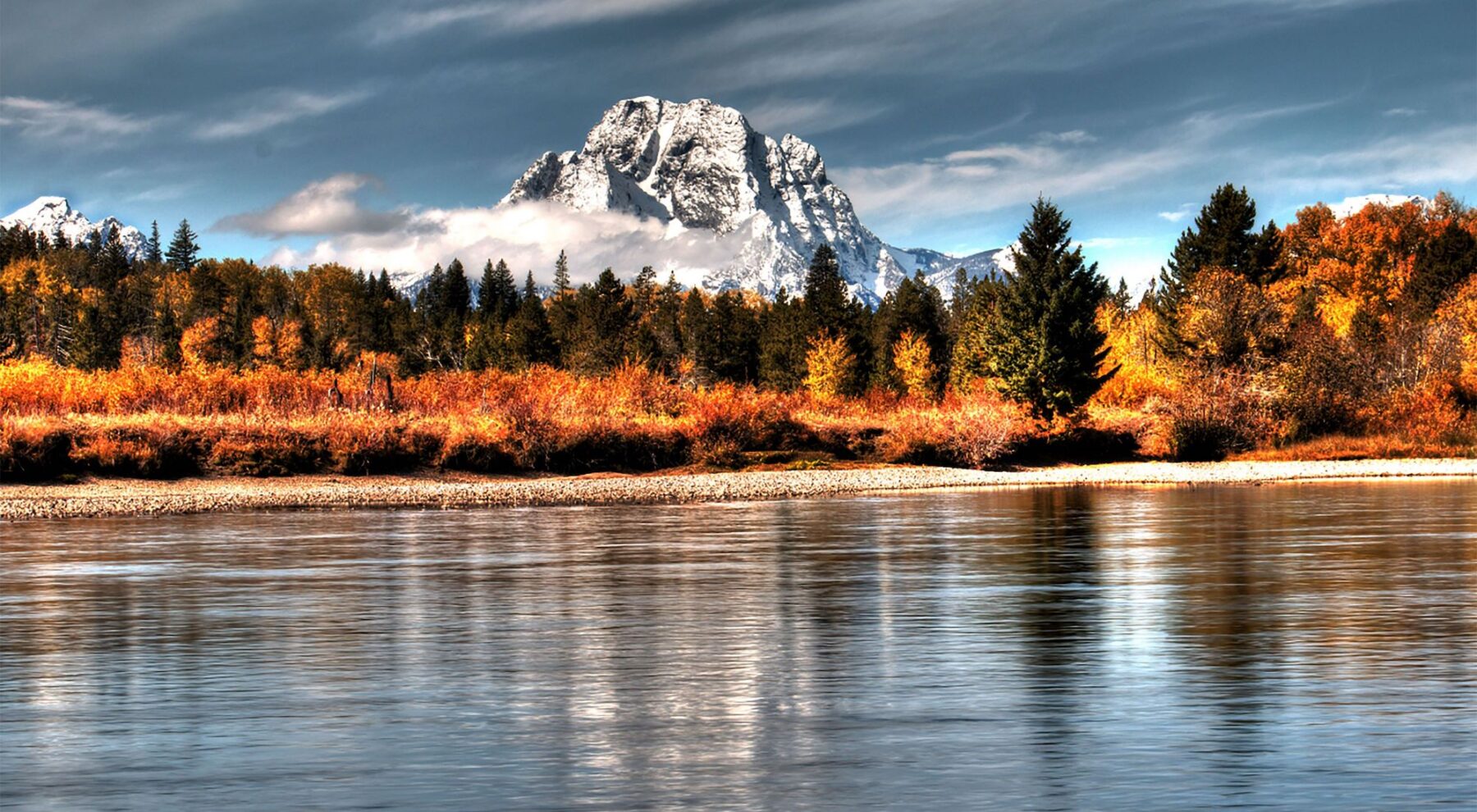
Kevin Krasnow is the Conservation Director at the Jackson Hole Conservation Alliance, a long-standing, highly effective organization whose mission is to “protect the wildlife, wild places, and community character of Jackson Hole.” For more than four decades, the Jackson Hole Conservation Alliance has been a staunch advocate for keeping Jackson Hole wild and beautiful, and it has proven to be a nimble and creative protector of the legendary Wyoming valley. The organization has served as a watchdog against poorly planned development, a champion for public land, a community voice that holds elected officials accountable, and much more.
Kevin brings a fascinating and diverse professional background to his work at the Jackson Hole Conservation Alliance– he’s worked as an Outward Bound instructor, a high school teacher, a college professor, and, most notably, he earned a Ph.D. in Environmental Science, Policy, and Management from the University of California Berkley. Prior to joining the team at the Jackson Hole Conservation Alliance, he worked for ten years at the Teton Science Schools in Jackson. As you’ll hear in our conversation, Kevin is a high-level expert in forest and wildfire ecology, and he speaks eloquently about the role of wildfires in the Greater Yellowstone Ecosystem and beyond.
When I first headed out West from North Carolina nearly twenty years ago, I moved to Jackson Hole— and I will always have a tender spot in my heart for that particular area. So I was thrilled to have the opportunity to connect with Kevin and talk about all things related to ecology, wildlife, fire, and conversation in Jackson Hole. We started with a deep dive into Aspen trees, and why they are such an important and unique part of the Greater Yellowstone Ecosystem. We discussed the Yellowstone Fire of 1988 and how that disaster shaped forest management in the future. We discussed the unprecedented development pressure in and around Jackson, how Kevin and his organization collaborate with a wide range of conservation partners, his professional journey from indirect to direct conservation work, and how his career as an educator informs his work today.
If you’ve ever spent time in the Tetons, Yellowstone, or the Greater Yellowstone Ecosystem, then you’re going to learn a lot from Kevin. Please check out the notes below for a full list of everything we discuss, and I hope you enjoy!
Header photo courtesy of TNC: “Reflective Waters on Jackson Lake.” © Andrew Underwood; Headshot courtesy of Kevin Krasnow
LISTEN & DOWNLOAD:
Apple Podcasts
Spotify
…or wherever you get your podcasts!
EPISODE PARTNER:
This episode is brought to you in partnership with the Colorado chapter of The Nature Conservancy and TNC chapters throughout the Western United States. Guided by science and grounded by decades of collaborative partnerships, The Nature Conservancy has a long-standing legacy of achieving lasting results to create a world where nature and people thrive.
On the last Tuesday of every month throughout 2024, Mountain & Prairie will be delving into conversations with a wide range of The Nature Conservancy’s leaders, partners, collaborators, and stakeholders, highlighting the myriad of conservation challenges, opportunities, and solutions here in the American West and beyond. You can access all of the episodes here.
To learn more about The Nature Conservancy’s impactful work in the West and around the world, visit www.nature.org
RESOURCES:
Topics Discussed:
- 3:30 – Discussing Aspen trees and how they captured Kevin’s attention
- 9:30 – Threats to Aspen populations
- 13:30 – Looking at the Yellowstone Fire of 1988
- 24:00 – How significantly forestry and attitudes toward fire have changed after the Yellowstone Fire of 1988
- 28:30 – What brought Kevin to the Jackson Hole Conservation Alliance
- 31:00 – Whether or not COVID has impacted the urgency of JHCA’s work
- 35:15 – What specific problems Kevin works on at JHCA
- 39:15 – How Kevin and JHCA have collaborated with The Nature Conservancy
- 43:00 – Kevin’s switch from “indirect” conservation to “direct”
- 45:00 – When the outdoors became a part of Kevin’s life
- 47:15 – Kevin’s early career in experiential education, and how it benefits his career now
- 52:30 – Kevin’s words for a young person looking for career advice
- 55:00 – Kevin’s book recommendations
- 58:15 – Kevin’s parting words of wisdom, and how folks can support JHCA
Information Referenced:
- Kevin Krasnow
- Pando Aspen Stand
- Pine beetle
- Yellowstone fires of 1988
- Ponderosa Pine
- The Big Burn by Timothy Egan
- Fire Weather by John Vaillant
- John Vaillant
- Jackson Hole Conservation Alliance
- The Nature Conservancy, Idaho
- The Nature Conservancy, Wyoming
- Teton Area Wildfire Protection Coalition
- Outward Bound
- Braiding Sweetgrass by Robin Wall Kimmerer
- When Things Fall Apart by Pema Chodron
Enjoy this episode? Then you might like these too:
- Doug Peacock – 50 Years of Fighting for the Grizzlies
- Rob Addington – A Deep Dive into Western Wildfires and Forest Health
- John Vaillant – A Riveting Exploration of Fire
- Christian Beckwith, Part 2 – The Fascinating History of the 10th Mountain Division
- Dr. Katharine Hayhoe – Effecting Change Through Authentic Conversation
- 50 Years of the Endangered Species Act – Live in Austin
Visit the podcast page for a full list of episodes where you can filter episodes by topic and guests’ vocations.
Ivy Spohnholz – Climate Solutions, Sustainable Fisheries, and Resilient Communities

Ivy Spohnholz is the Alaska State Director at The Nature Conservancy, where she leads the organization’s critical work around climate solutions, sustainable fisheries, and resilient communities. Given its size, location, climate, demographics, and economics, Alaska presents a very unique blend of conservation challenges– challenges that can directly affect massive, landscape-scale ecosystems and the communities within them. We’ve rarely, if ever, dug into the details of conservation in Alaska on this podcast, so I was thrilled to have Ivy join me for such an in-depth conversation.
Ivy was born in a dry log cabin in the remote Wrangell Mountains, in what is now Wrangell-St. Elias National Park and Preserve. Her entire career has revolved around public service– she’s held leadership roles at the Salvation Army, University of Alaska Anchorage, Alaska Conservation Foundation, and Abused Women’s Aid in Crisis. She also served for more than six years in the Alaska House of Representatives, where she honed her skills as a pragmatic and effective problem solver. In the fall of 2022, she took the reins as TNC’s Alaska State Director and has been applying her skills as a leader and problem solver toward Alaska’s distinctive conservation challenges.
I’ve been lucky enough to visit Alaska on two separate occasions, and I’ve had some of the most formative experiences of my life in the Alaska Range. The size and scale of the mountains, valleys, and wildlife are so staggering that it’s impossible to visit Alaska without gaining a deep respect for both the landscapes and the people who live there. So, I was excited to have the opportunity to chat with Ivy about her adventurous upbringing in Alaska and her service-oriented career. We talk in detail about her unexpected entrance into politics and how she quickly learned to lead and navigate the law-making process as an elected official. We discuss TNC’s focus areas in Alaska, and we talk a lot about Bristol Bay and its ecological and economic significance in the world. As you’ve probably come to expect, we talk about the all-important power of relationships, and we also discuss the need to be practical and optimistic.
A big thank you to Ivy for taking the time to talk with me– I greatly appreciate all of the important work being done by TNC Alaska. Enjoy!
Header photo by Matthew Waliszek, hunting photo by Troy Bowler
LISTEN & DOWNLOAD:
Apple Podcasts
Spotify
…or wherever you get your podcasts!
EPISODE PARTNER:
This episode is brought to you in partnership with the Colorado chapter of The Nature Conservancy and TNC chapters throughout the Western United States. Guided by science and grounded by decades of collaborative partnerships, The Nature Conservancy has a long-standing legacy of achieving lasting results to create a world where nature and people thrive.
On the last Tuesday of every month throughout 2024, Mountain & Prairie will be delving into conversations with a wide range of The Nature Conservancy’s leaders, partners, collaborators, and stakeholders, highlighting the myriad of conservation challenges, opportunities, and solutions here in the American West and beyond. You can access all of the episodes here.
To learn more about The Nature Conservancy’s impactful work in the West and around the world, visit www.nature.org
RESOURCES:
Topics Discussed:
- 3:30 – Ivy’s birth in a dry log cabin in the Wrangell Mountains
- 7:15 – Ivy’s childhood
- 10:15 – When Ivy left Alaska, and what brought her back
- 12:00 – How serving others became a core part of Ivy
- 17:00 – When Ivy became an elected official
- 24:00 – Discussing the political landscape of Alaska
- 28:15 – How Ivy became involved with TNC
- 34:45 – Discussing TNC’s work in Alaska
- 41:00 – How Ivy balances working urgently with the often slower pace of building relationships
- 46:30 – The importance of Bristol Bay
- 52:00 – Potential future threats to Bristol Bay
- 57:00 – The biggest surprise for Ivy in her work with TNC
- 59:30 – Discussing “practical optimism”
- 1:01:30 – Ivy’s book recommendations
- 1:03:45 – Ivy’s parting words of wisdom
Information Referenced:
- Ivy Sponholtz
- The Alaska Chapter of The Nature Conservancy
- Wrangell Mountains
- Nabesna, AK
- Wrangell-Saint Elias National Park and Preserve
- Anchorage, AK
- Talkeetna, AK
- The Timber Wars
- Bristol Bay
- United Tribes of Bristol Bay
- Pebble Mine
- Katharine Hayhoe
- Saving Us by Katherine Hayhoe
- Strangers In Their Own Land by Arlie Russell Hochschild
- How to Know a Person by David Brooks
- Good to Great by Jim Collins
- The Second Mountain by David Brooks
Enjoy this episode? Then you might like these too:
- Dr. Sara Dant Returns – “Losing Eden: An Environmental History of the American West”
- Jenna Pollard – Timber Framing, Organic Farming, Community, and Purpose
- Corissa Busse – Tribal-Led Buffalo Restoration in the American West and Beyond
- Vincent Stanley – Lessons Learned from Patagonia’s First Fifty Years
- Doug Peacock – 50 Years of Fighting for the Grizzlies
- Chandra Brown, Part 2 – Teaching & Learning in the West’s Wildest Landscapes
- Cole Mannix – Building Community through Land Stewardship and Local Food
Visit the podcast page for a full list of episodes where you can filter episodes by topic and guests’ vocations.
Paige Lewis – Durable Conservation, Collective Action, and Strategic Thinking
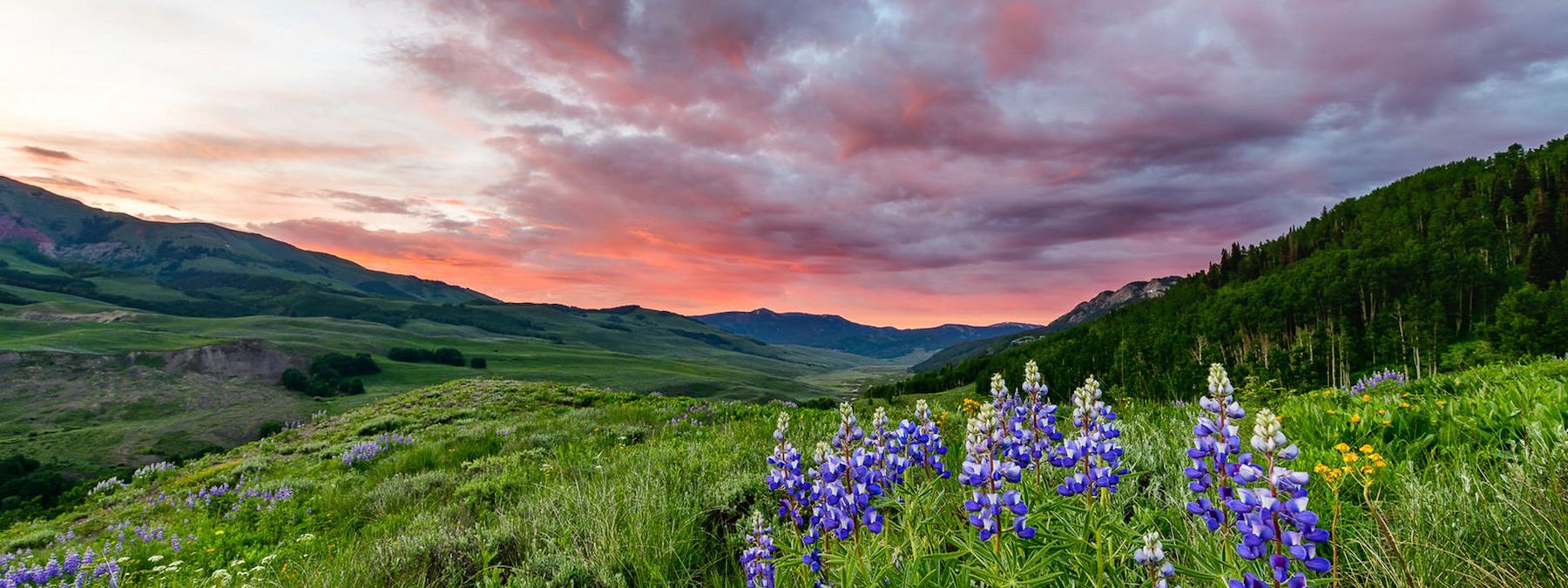
Paige Lewis is the Deputy State Director and Director of Conservation Programs for The Nature Conservancy in Colorado. In this role, she serves as the chapter’s chief conservation officer and is responsible for leading the development of innovative, large-scale and entrepreneurial solutions to the challenges facing people and nature in Colorado and around the world. Paige brings a unique skill set that combines big-picture thinking with tangible, one-the-ground execution– her work involves creating ambitious, large-scale strategies, while also ensuring that the TNC team has the resources, communication, and support to accomplish its goals.
Over the course of this 2023 podcast series with TNC Colorado, we’ve highlighted both the breadth and depth of the organization’s work in Colorado and beyond. From grassland conservation to sustainable water management to forest health to urban conservation efforts (and much more!), it’s been amazing to learn about the positive impact that TNC is having across such a broad spectrum of pressing environmental issues. And if you’ve wondered, as I have, how TNC successfully aligns so many initiatives, teams, and stakeholders toward common organizational goals, well, you’re in luck, because that’s exactly what Paige does!
Paige and I sat down at the TNC office in Boulder just before the holidays and had a fun conversation that looked back at some of the 2023 conservation wins and looked forward toward TNC’s ambitious goals for the future. We started out discussing Paige’s lifelong appreciation for conservation, and her career that took her from her home state of Utah to Washington DC and eventually to Colorado. We discussed her skill of thinking strategically while also focusing on the need to get things done, and how she has managed to keep so many balls in the air year after year. We talk about durable conservation, collective action, and embracing risk, and we also discuss the challenges and opportunities that come with setting ambitious goals. Paige is a voracious reader and lover of history, so she has tons of excellent book recommendations.
A big thank you to Paige for taking the time to chat with me during such a busy time of year, and, once again, thank you for listening. Hope you enjoy.
Header photo by Ethan Herrold/TNC Photo Contest 2019; headshot by Lauryn Wachs.
LISTEN & DOWNLOAD:
Apple Podcasts
Spotify
Google Podcasts
…or wherever you get your podcasts!
EPISODE PARTNER:
This episode is brought to you in partnership with the Colorado chapter of The Nature Conservancy. Guided by science and grounded by decades of collaborative partnerships, The Nature Conservancy has a long-standing legacy of achieving lasting results to create a world where nature and people thrive.
On the fourth Tuesday of every month throughout 2023, Mountain & Prairie will be delving into conversations with a wide range of The Nature Conservancy’s leaders, partners, collaborators, and stakeholders, highlighting the myriad of conservation challenges, opportunities, and solutions here in the American West. You can access all of the 2023 episodes here.
To learn more about The Nature Conservancy’s impactful work in Colorado and around the world, visit www.nature.org/colorado
RESOURCES:
Topics Discussed:
- 3:30 – How Paige became interested in conservation
- 9:15 – Paige’s first conservation job
- 10:45 – Adjusting from the West to DC
- 11:45 – Paige’s return West
- 15:00 – How Paige ended up at TNC
- 18:30 – Paige’s role at TNC
- 23:30 – An example of successful collaborative work in Paige’s time at TNC
- 27:15 – What Paige is most proud of in TNC’s 2023 work
- 30:30 – Reflecting on TNC’s progress towards their 2026 strategic goals
- 34:30 – How Paige prioritizes and keeps all the balls in the air
- 39:45 – What “durable conservation” means and looks like to Paige
- 42:30 – What “collective action” means and looks like to Paige
- 45:30 – How Paige knows when to shift from ideation and relationship building to action
- 48:45 – How TNC’s approach to taking risks has changed during Paige’s tenure
- 52:15 – What qualities Paige thinks makes a good team member at TNC
- 56:15 – Paige’s book recommendations
- 1:02:15 – Paige’s parting words
Information Referenced:
- Paige Lewis
- TNC Colorado’s 2023 Year in Review
- Providence, UT
- Cache Valley
- Bear Mountains
- Wellsville Mountains
- Topophilia by Yi-Fu Tuan
- Logan Canyon
- Utah Division of Forestry, Fire and State Lands
- Western Forestry Leadership Coalition
- Sarah Dant
- Losing Eden by Sara Dant
- Colorado State Forest Service
- Hayman Fire
- Rob Addington
- John Vaillant
- Taylor Hawes
- TNC’s Colorado River Program
- TNC’s work in Mongolia
- TNC’s Southern High Plains Initiative
- Diana Lane
- TNC’s Power to the People and the Planet Program
- Carlos Fernandez
- Catalyst Fund
- Chris Hawkins
- Colorado Outdoor Plan
- Great Outdoors Colorado
- Matt Moorehead
- Legacy of Conquest by Patrica Nelson Limerick
- Fire on the Plateau by Charles Wilkinson
- The Rediscovery of America by Ned Blackhawk
- A Man Called Ove by Frederik Backman
- My Grandmother Asked Me to Tell You She’s Sorry by Frederik Backman
- Demon Copperhead by Barbara Kingsolver
- Animal, Vegetable, Miracle by Barbara Kingsolver
Enjoy this episode? Then you might like these too:
- John Vaillant – A Riveting Exploration of Fire
- Dr. Sara Dant Returns – “Losing Eden: An Environmental History of the American West”
- Erik Glenn Returns – Leadership, Innovation, & Commitment to Conservation
- Carlos Fernández, Part 2 – Creating Conservation Opportunities During Uncertain Times
- Francesca Claverie – A Borderlands Conservation Success Story
- Nate Schweber – A Forgotten Chapter of American Conservation
- Liz Moore – For the Love of Montana
Visit the podcast page for a full list of episodes where you can filter episodes by topic and guests’ vocations.
Diana Lane & Aaron Derwingson – Thriving Rivers, Resilient Agriculture, and Strong Communities
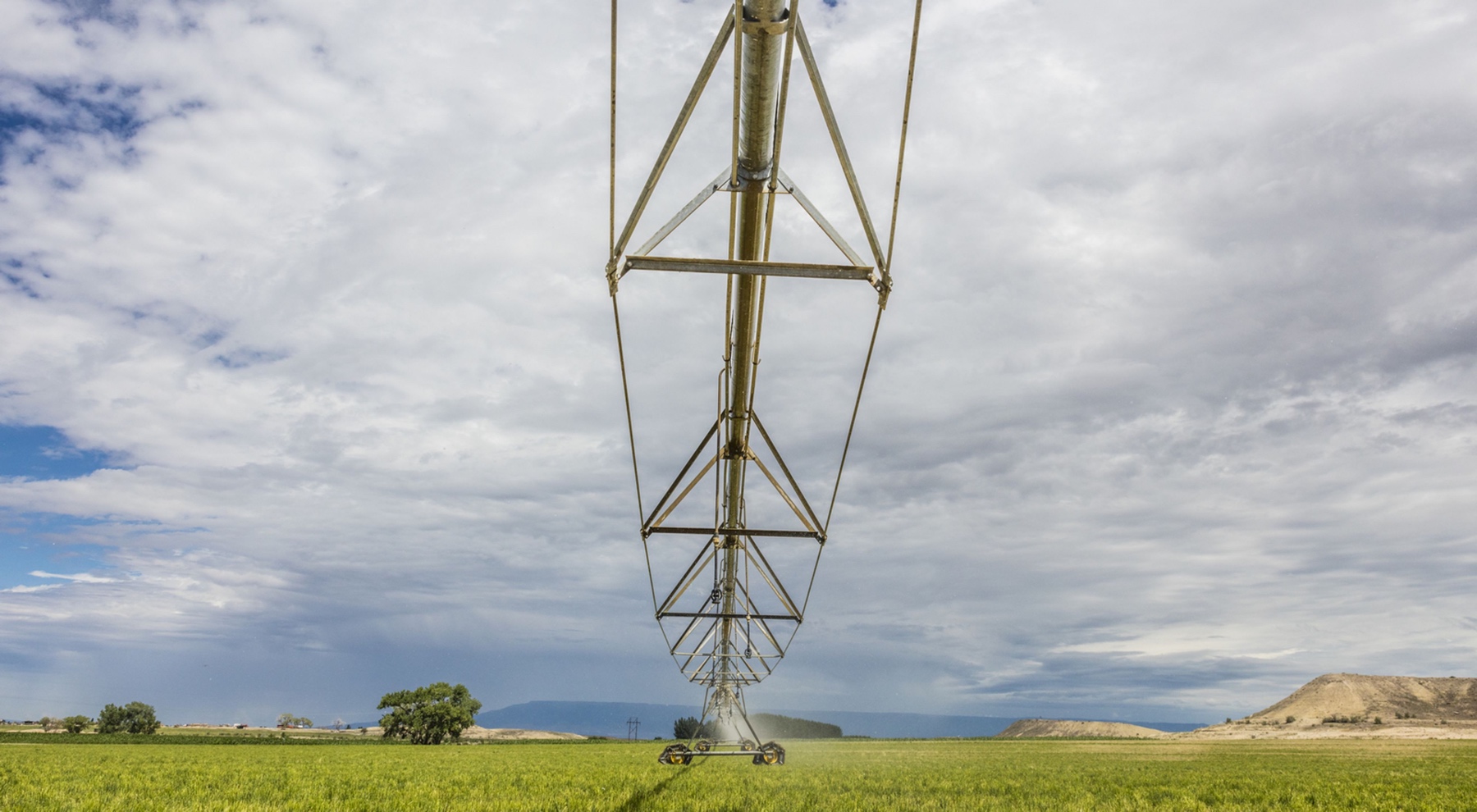
Diana Lane is the Director of Sustainable Food and Water at the Colorado Chapter of the Nature Conservancy, and Aaron Derwingson is the Water Projects Director for the Nature Conservancy’s Colorado River Program. Both Diana and Aaron work at the intersection of water sustainability, thriving rivers, resilient agriculture, and strong communities– harnessing TNC’s relationships and resources to advance some of the most cutting-edge and effective conservation initiatives in the American West.
Diana and Aaron bring a diverse set of skills and experiences to their work at TNC. Diana holds a PhD in Biological Sciences and has spent much of her career working with a wide array of partners on restoration ecology and planning, climate adaptation, and management of public funding. Aaron is a river guide-turned-conservationist who began his career focusing on conservation in the Rio Grande River basin, and now applies his skills toward creating pragmatic, solution-oriented approaches to freshwater challenges in the greater Colorado River basin. But perhaps most importantly, they both bring a deep level of passion and focus to their work– their optimistic commitment to solving some of the West’s most pressing water and agricultural challenges is infectious.
Diana, Aaron, and I connected virtually and had an educational and inspiring conversation about water, agriculture, and community here in Colorado and beyond. We discussed some of the most urgent water-related challenges and opportunities and how they are working with a wide range of stakeholders to find mutually beneficial solutions. We discuss the Yampa River fund, their work helping agricultural producers adjust to a drier climate, and the all-important role of building solid relationships with stakeholders. We discussed the Maybell Irrigation Ditch Project, which is a fascinating, win-win project for both producers and recreational river users, and we discussed some of the water-related challenges that keep both Diana and Aaron up and night. And as usual, they both have plenty of excellent book recommendations.
A huge thank you to Diana and Aaron for taking the time to talk with me, and thank you for listening. Hope you enjoy!
Header photo by Ken Geiger; all photos courtesy of the Nature Conservancy.
LISTEN & DOWNLOAD:
Apple Podcasts
Spotify
Google Podcasts
…or wherever you get your podcasts!
EPISODE PARTNER:
This episode is brought to you in partnership with the Colorado chapter of The Nature Conservancy. Guided by science and grounded by decades of collaborative partnerships, The Nature Conservancy has a long-standing legacy of achieving lasting results to create a world where nature and people thrive.
On the fourth Tuesday of every month throughout 2023, Mountain & Prairie will be delving into conversations with a wide range of The Nature Conservancy’s leaders, partners, collaborators, and stakeholders, highlighting the myriad of conservation challenges, opportunities, and solutions here in the American West. You can access all of the 2023 episodes here.
To learn more about The Nature Conservancy’s impactful work in Colorado and around the world, visit www.nature.org/colorado
RESOURCES:
Topics Discussed:
- 3:30 – Diana and Aaron’s backgrounds
- 7:30 – Aaron’s read on the future of water
- 12:30 – Diana’s overview of the Yampa River Fund
- 18:30 – Aaron’s work with producers to adjust to the new water reality
- 23:15 – The process of building relationships with producers for water projects
- 27:00 – The Colorado Water Plan’s impact on Diana and Aaron’s work
- 31:45 – Discussing the Yampa River Fund
- 41:15 – The things about Colorado water that keep Diana and Aaron up at night
- 47:15 – What makes a solid conservation professional
- 51:00 – How you can help TNC in this work
- 55:30 – Diana and Aaron’s book recommendations
- 1:00:00 – Parting requests and words of wisdom
Information Referenced:
- TNC Colorado
- Dr. Diana Lane
- Aaron Derwingson
- Upper San Juan Watershed Enhancement Project
- Colorado Agricultural Water Alliance
- Evaluating Conserved Consumptive Use In The Upper Colorado
- Yampa River Fund
- Gulf Oil Spill 2010
- Colorado River Program
- Rio Grande Headwaters Land Trust
- Taylor Hawes
- Matt Cahill
- Maybell Irrigation Ditch Project
- Matt Moorehead
- Yampa River video from TNC
- Bioneers
- Nature’s Operating Instructions by The Bioneers
- Ecological Literacy by The Bioneers
- The Last Ranch by Sam Bingham
- Eager by Ben Goldfarb
- Water Always Wins by Erica Gies
Enjoy this episode? Then you might like these too:
- Taylor Hawes – Innovative Conservation in the Colorado River Basin
- Corissa Busse – Tribal-Led Buffalo Restoration in the American West and Beyond
- Erik Glenn Returns – Leadership, Innovation, & Commitment to Conservation
- Matt Cahill – A Deep Dive into the Sagebrush Sea
- SHED SESSION: Everything I Know About Landing a Job in the Conservation World
- Live from the Strenuous Life Retreat: In Conversation with Nancy Fishbein
- Cole Mannix – Building Community through Land Stewardship and Local Food
- Lorelei Cloud – Solving Modern-Day Challenges with Ancient Tribal Wisdom
Visit the podcast page for a full list of episodes where you can filter episodes by topic and guests’ vocations.
Corissa Busse – Tribal-Led Buffalo Restoration in the American West and Beyond
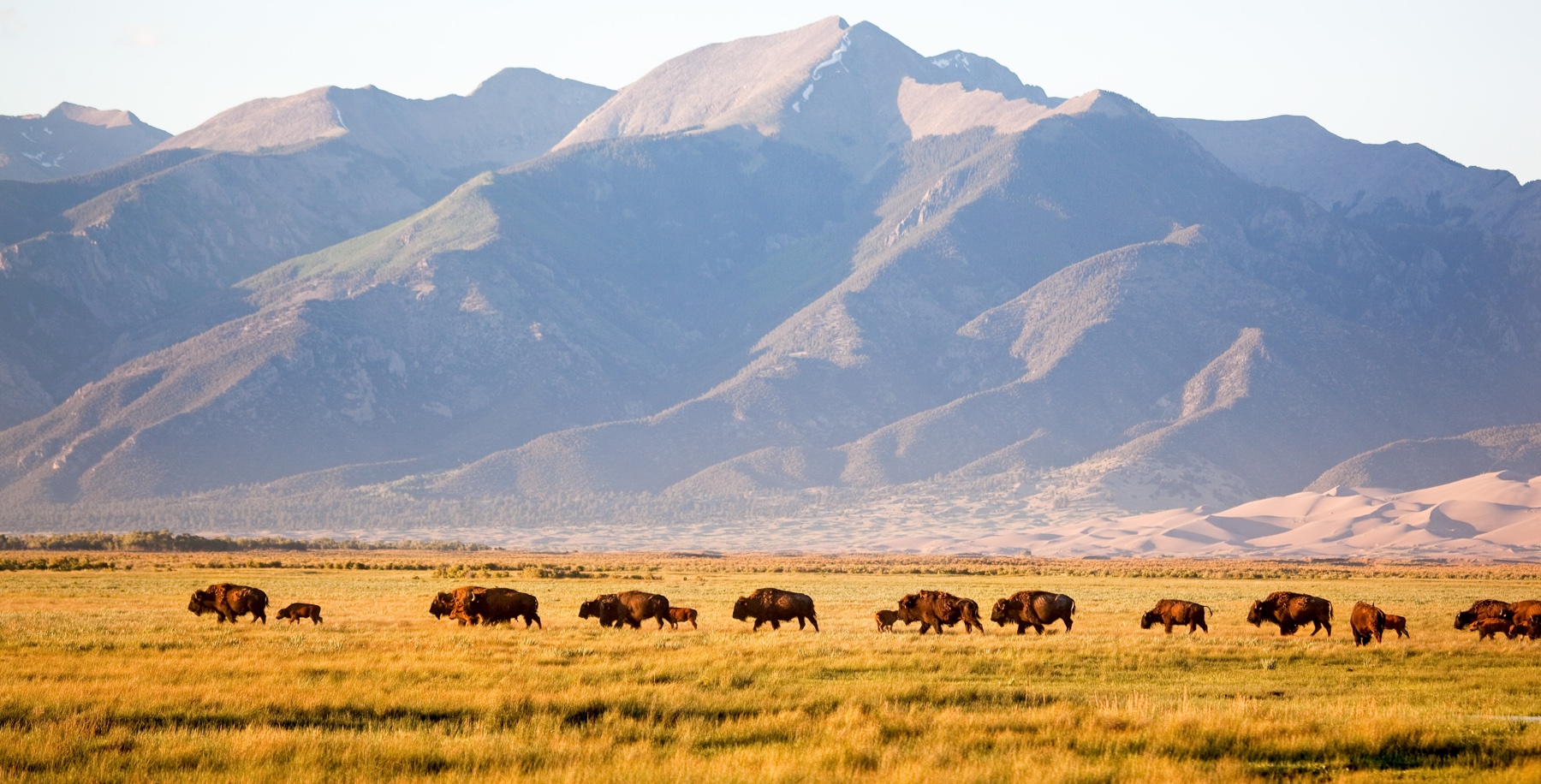
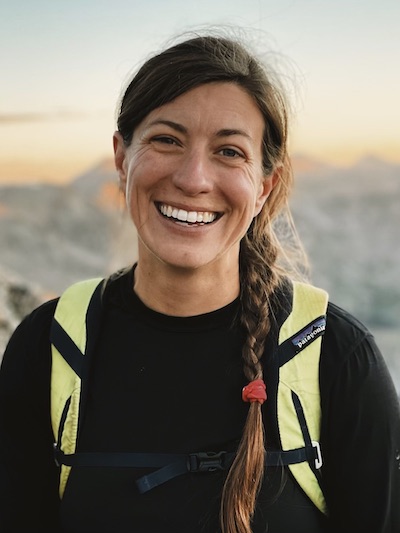
Corissa Busse is the Buffalo Restoration Program Manager for The Nature Conservancy, where she oversees TNC’s work to advance Tribal-led efforts to restore buffalo, grasslands, and communities at scale. Based in Rapid City, South Dakota, Corissa and her team at TNC partner with organizations including the InterTribal Buffalo Council and the Tanka Fund to bring buffalo back to tribal lands, which not only contributes to healthier, more resilient landscapes, but helps to heal and restore a web of natural relationships that has been broken for hundreds of years.
TNC has been working with buffalo for many decades now, and it owns herds at numerous TNC preserves across the United States. Each year, those herds produce approximately 1,500 buffalo that are in need of new homes, so TNC has begun working with Tribal nations to transfer these buffalo from the TNC preserves onto Native lands. But transferring the animals from one place to another is relatively simple– it’s the trust-building, infrastructure development, and long-term, collaborative vision that requires strong relationships and outside-the-box thinking. As you’ll hear in this conversation, it’s a complex and important project with amazing potential.
I’ve always loved learning about buffalo, and given the recent release of Ken Burns’ newest documentary on this very subject, I was extra excited to chat with Corissa. We started out with the most basic question of all– “Should we call them bison or buffalo?”– and then moved into the more complex topics. We discussed when and why TNC initially became interested in buffalo, TNC’s history of working with Tribal partners, the challenges of overcoming historical realities, the potential for tension between cattle and buffalo producers, specific success stories from TNC’s buffalo restoration work, the all-important role of strong relationships, resources to learn more about buffalo, and Corissa offers some excellent book recommendations.
I greatly appreciate Corissa taking the time out of her busy schedule to educate me on the finer details of buffalo as well as the large-scale vision for TNC’s work. I learned a lot from this conversation, and I know you will too. Thanks for listening and I hope you enjoy.
Header photo by John Fielder courtesy of The Nature Conservancy, headshot courtesy of Corissa Busse
LISTEN & DOWNLOAD:
Apple Podcasts
Spotify
Google Podcasts
…or wherever you get your podcasts!
EPISODE PARTNER:
This episode is brought to you in partnership with the Colorado chapter of The Nature Conservancy. Guided by science and grounded by decades of collaborative partnerships, The Nature Conservancy has a long-standing legacy of achieving lasting results to create a world where nature and people thrive.
On the fourth Tuesday of every month throughout 2023, Mountain & Prairie will be delving into conversations with a wide range of The Nature Conservancy’s leaders, partners, collaborators, and stakeholders, highlighting the myriad of conservation challenges, opportunities, and solutions here in the American West. You can access all of the 2023 episodes here.
To learn more about The Nature Conservancy’s impactful work in Colorado and around the world, visit www.nature.org/colorado
RESOURCES:
Topics Discussed:
- 3:30 – Is it buffalo or bison?
- 6:30 – A brief history of buffalo in the US
- 10:30 – Books and resources that have helped Corissa learn more about the history of buffalo
- 13:45 – TNC’s interest in buffalo
- 17:00 – TNC’s history of relationship-building with Tribal nation partners
- 22:15 – How buffalo from TNC’s herds are transferred to other partners
- 23:30 – Exploring the tension between cattle and buffalo businesses
- 27:15 – Examples of the success of Corissa’s program
- 31:15 – Measuring success in this work
- 35:00 – The challenges in this work that Corissa worries about
- 39:15 – The market for buffalo
- 42:15 – How Corissa got into work with buffalo
- 48:00 – The importance of relationships to Corissa’s work
- 52:30 – Corissa’s book recommendations
- 56:00 – Ways you can support Corissa’s work, and Corissa’s parting words of wisdom
Information Referenced:
- Corissa Busse
- The Nature Conservancy
- Corrisa’s buffalo restoration work
- “The American Buffalo” by Ken Burns
- The Ecological Buffalo by Wes Olson
- Dan Flores
- Sara Dant
- Zapata Ranch
- Matt Moorehead and Galen Guerrero-Murphy
- Intertribal Buffalo Council
- Tonka Fund
- Eastern Shoshone
- Northern Arapaho
- Vincent Stanley
- Catalyst Fund
- Oceti Sakowin Oyate (Sioux) Nation
- Seneca Nation
- Haudenosaunee Confederacy (Iroquois)
- Braiding Sweetgrass by Robin Wall Kimmerer
- Whitener Group
- Indian Country 101 training
Enjoy this episode? Then you might like these too:
- Lorelei Cloud – Solving Modern-Day Challenges with Ancient Tribal Wisdom
- Rebecca Clarren – “The Cost of Free Land”
- Doug Peacock – 50 Years of Fighting for the Grizzlies
- Matt Moorhead & Galen Guerrero-Murphy – Grasslands Conservation on the Southern High Plains
- Cole Mannix – Building Community through Land Stewardship and Local Food
- Francesca Claverie – A Borderlands Conservation Success Story
- Betsy Gaines Quammen – A Fascinating History of Public Lands in the West
Visit the podcast page for a full list of episodes where you can filter episodes by topic and guests’ vocations.
Matt Cahill – A Deep Dive into the Sagebrush Sea
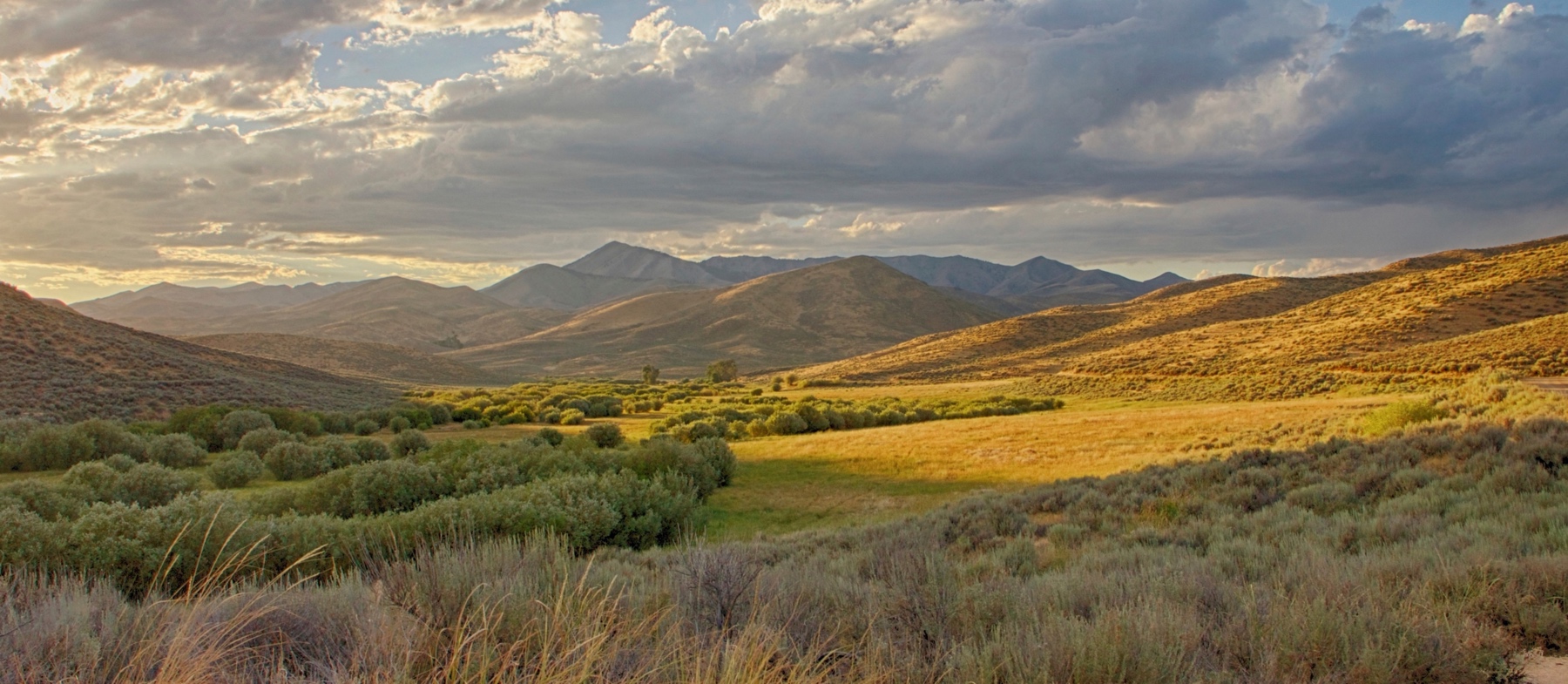
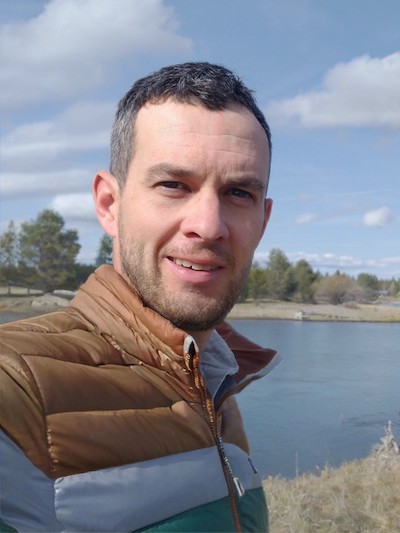
Matt Cahill is the Sagebrush Sea Program Director for the Nature Conservancy. Based out of Bend, Oregon, Matt leads all of TNC’s critical work restoring, managing, and protecting sagebrush habitat across six western states. This is a huge and complex effort– it combines protection and policy work with ground-breaking restoration advances, public and industry partnerships, and local community projects. But as you’ll hear in this conversation, Matt is optimistically leaning into the challenge and making great strides to protect this uniquely Western ecosystem.
To give you some context into the vastness of North America’s sagebrush ecosystem, it spans 150 million acres and is home to 350 rare, threatened, and endangered species. Since 1998, 14 million acres of sagebrush ecosystems have been lost, and currently, we’re losing approximately one million acres to invasive species, catastrophic wildfires, development, improper grazing, and climate change. 70% of the Sagebrush Sea is found on public lands, so efforts to protect, manage, and restore the ecosystem are dependent on creative, action-oriented public-private partnerships. Again, Matt is leading a huge and complex effort!
In this episode, we start our conversation by discussing why the Sagebrush Sea is important, and why even people who live far from the ecosystem should care about it. We discuss the history of the threats to sagebrush, and we also do a deep dive into the specific threat of cheatgrass– a true scourge on the landscapes of the West. We discuss the ecology of sagebrush, how TNC measures success when it comes to protecting such a fragile ecosystem, and the importance of partnering with ranchers. We talk about the efficacy of for-profit approaches to restoration, collaboration with government agencies, and specific cutting-edge approaches to restoration. Matt also explains his career trajectory that led him from the East Coast to becoming obsessed with sagebrush, and he offers several great book recommendations.
Be sure to check out the episode notes for links to everything we discuss, including a few videos and writings by Matt that will provide even more context into this nuanced issue. Thanks to Matt and his team for all of their hard work, and thank you for listening. Hope you enjoy.
Photos courtesy of The Nature Conservancy
LISTEN & DOWNLOAD:
Download on Apple Podcasts
Download on Spotify
Download on Google Podcasts
…or wherever you get your podcasts!
EPISODE PARTNER:
This episode is brought to you in partnership with the Colorado chapter of The Nature Conservancy. Guided by science and grounded by decades of collaborative partnerships, The Nature Conservancy has a long-standing legacy of achieving lasting results to create a world where nature and people thrive.
On the fourth Tuesday of every month throughout 2023, Mountain & Prairie will be delving into conversations with a wide range of The Nature Conservancy’s leaders, partners, collaborators, and stakeholders, highlighting the myriad of conservation challenges, opportunities, and solutions here in the American West. You can access all of the 2023 episodes here.
To learn more about The Nature Conservancy’s impactful work in Colorado and around the world, visit www.nature.org/colorado
RESOURCES:
Topics Discussed:
- 3:30 – Description of the Sagebrush Sea
- 7:45 – Why sagebrush matters
- 10:30 – The state of the Sagebrush Sea and how it got there
- 15:15 – Cheatgrass’s impact on the Sagebrush Sea
- 23:30 – TNC’s Sagebrush Sea program
- 26:45 – Exploring the restoration aspect of Matt’s work
- 33:15 – The restoration timeline for sagebrush regions
- 35:30 – Measuring restoration success
- 39:00 – The management portion of Matt’s work
- 41:30 – Matt’s success stories of collaborating with ranchers
- 46:00 – The land protection (acquisition, easement, etc.) portion of Matt’s work
- 49:15 – Evaluating the for-profit wing of conservation of sage grouse habitat
- 43:15 – Discussing TNC’s collaboration across its own programs as well as with government land managers
- 57:00 – How Matt ended up an expert in sagebrush biomes when he grew up on the East Coast
- 1:00:30 – Matt’s book recommendations
- 1:04:00 – Matt’s parting words of wisdom
Information Referenced:
- The Nature Conservancy
- The Sagebrush Sea program at The Nature Conservancy
- Innovative Restoration article about TNC’s Sagebrush Sea work
- Sagebrush Conservation Design
- Matt’s article about the “Defend the Core, Grow the Core” framework
- Sagebrush
- Salt playa
- Burns, OR
- Lander, WY
- Ponderosa pine
- Piñon pine
- Juniper
- Cheatgrass
- Medusahead
- Ventenata/wiregrass
- Cryptobiotic Crust
- Fescue
- Bluebunch Wheatgrass
- Pinedale, WY
- Carlos Fernadez
- Winecup Gamble Ranch
- Matador Ranch
- Red Canyon Ranch
- Taylor Hawes
- Bears Ears National Monument
- Matt Moorehead
- Sagebrush Ocean by Stephen Trimble
- Catch-22 by Joseph Heller
- Brave New World by Aldous Huxley
- Franz Kafka
- Basin and Range by John McPhee
- Encounters with the Archdruid by John McPhee
Enjoy this episode? Then you might like these too:
- Carrie Segil & Duncan Gilchrist – Catalyzing Conservation in Colorado and Beyond
- Lorelei Cloud – Solving Modern-Day Challenges with Ancient Tribal Wisdom
- Rob Addington – A Deep Dive into Western Wildfires and Forest Health
- Chris Hawkins – Using Nature to Build Healthier & More Equitable Communities
- Matt Moorhead & Galen Guerrero-Murphy – Grasslands Conservation on the Southern High Plains
- Taylor Hawes – Innovative Conservation in the Colorado River Basin
- Dr. Katharine Hayhoe – Effecting Change Through Authentic Conversation
- Carlos Fernández, Part 2 – Creating Conservation Opportunities During Uncertain Times
Visit the podcast page for a full list of episodes where you can filter episodes by topic and guests’ vocations.
Carrie Segil & Duncan Gilchrist – Catalyzing Conservation in Colorado and Beyond
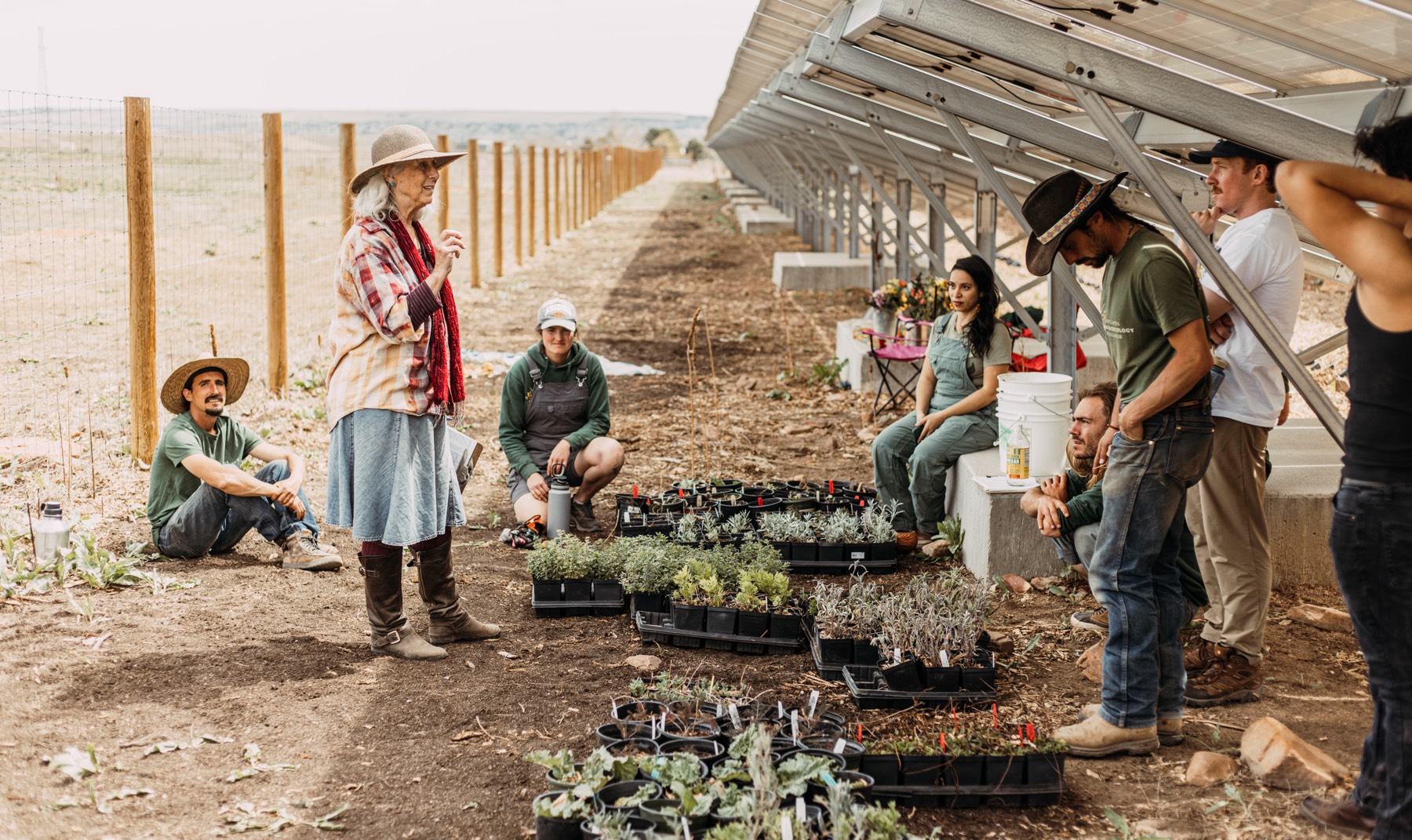
Carrie Segil is the People and Culture Manager at The Nature Conservancy in Colorado, and Duncan Gilchrist is a Climate and Natural Resources Policy Associate at The Nature Conservancy in Colorado. Both Carrie and Duncan are deeply involved with TNC Colorado’s Catalyst Fund, a cutting-edge conservation funding initiative that supports forward-looking projects that enable innovation and rapid learning, both to test new ideas and to build greater capacity for innovation over the long term.
One of the Catalyst Fund’s most notable projects involves agrivoltaics, which is the simultaneous use of land for both solar energy production and agriculture. The project is called the Agrivoltaics Retrofit Partnership, and it’s a Boulder-based partnership between TNC, Jack’s Solar Garden, Drylands Agroecology Research, Boulder Housing Partners, and a conservation-justice / community outreach partner called FLOWS. The project aims to achieve multiple conservation and community objectives, including restoring degraded land, producing perennial plants with medicinal, economic, and indigenous cultural value, and providing a host of benefits to local marginalized community members– benefits that we discuss in this episode.
In this episode, we talk in detail about this specific agrivoltaics project, as well as some of the other innovative projects that are being pushed forward thanks to support from the Catalyst Fund. We discussed how and why TNC Colorado decided to create the Catalyst Fund in the first place, and the need to push boundaries and take risks in the conservation space. Carrie offers insights into specific Catalyst projects, such as virtual fencing for bison, and Duncan discusses all the details about this agrivoltaics project– including the genesis of the idea, the challenges of the projects, and why it has proven to be so successful and replicable. We also discuss how policy on the state and federal level is creating more opportunities for agrivoltaics, why it garners bipartisan support, and lessons learned from all of the Catalyst Fund projects.
I was so impressed with Carrie and Duncan’s enthusiasm, professionalism, and commitment to innovation, and I learned so much from this conversation. Be sure to check out the episode notes to learn more about everything we discussed, and please share this episode with any friends or colleagues who might find it valuable. Thanks so much for listening, I hope you enjoy!
Photos courtesy of The Nature Conservancy
LISTEN & DOWNLOAD:
Download on Apple Podcasts
Download on Spotify
Download on Google Podcasts
…or wherever you get your podcasts!
EPISODE PARTNER:
This episode is brought to you in partnership with the Colorado chapter of The Nature Conservancy. Guided by science and grounded by decades of collaborative partnerships, The Nature Conservancy has a long-standing legacy of achieving lasting results to create a world where nature and people thrive.
On the fourth Tuesday of every month throughout 2023, Mountain & Prairie will be delving into conversations with a wide range of The Nature Conservancy’s leaders, partners, collaborators, and stakeholders, highlighting the myriad of conservation challenges, opportunities, and solutions here in the American West. You can access all of the 2023 episodes here.
To learn more about The Nature Conservancy’s impactful work in Colorado and around the world, visit www.nature.org/colorado
RESOURCES:
Topics Discussed:
- 3:30 – An overview of the Catalyst Fund
- 7:00 – Talking to funders about the Catalyst Fund
- 8:45 – How TNC evaluates what it is looking for regarding the Catalyst Fund
- 10:30 – Duncan’s project
- 12:45 – Duncan’s job before his agrivoltaics project
- 14:45 – More on Duncan’s project and his site
- 19:00 – About Boulder Housing Partners, and how they reacted to Duncan’s idea
- 20:30 – How Duncan worked to turn the rocky land he was working into agricultural land
- 22:30 – The outlook for Duncan’s project, and how it stacks up against his expectations
- 25:00 – The federal and state (CO) push for more projects like Duncan’s
- 28:00 – Why agrivoltaics seems to garner bipartisan support
- 29:30 – Why everyone isn’t doing agrivoltaics
- 31:30 – The potential for grazing under agrivoltaics
- 32:30 – Other synergies between solar energy and agriculture
- 33:30 – Carrie’s outlook on Duncan’s project, and some other projects funded by the Catalyst Fund
- 36:45 – What it’s like for TNC to work with external partners
- 37:45 – Other projects funded through the Catalyst Funds
- 40:00 – Big lessons from the Catalyst Fund project
- 45:00 – The power of advocating for policy
- 47:15 – Where the Catalyst Fund is going
- 51:00 – Carrie and Duncan’s book recommendations
- 53:45 – Closing thoughts
Information Referenced:
- Catalyst Fund
- TNC Colorado
- TNC New York
- Jennifer Chin
- Palmer Land Conservancy
- Bessemer Farmland Conservation Project
- JE Canyon Ranch
- Matt Moorehead
- Mirr Ranch Group
- Agrivoltaics
- Byron Kominek
- Jack’s Solar Garden
- Longmont, CO
- Drylands Agroecology Research
- Boulder Housing Partners
- Wish Garden Herbs
- Katherine Hunziker
- FLOWS – Foundations for Leaders Organizing for Water and Sustainability
- Tim Beal
- Nick DiDomenico
- Lemon Balm
- Flax
- Thyme
- Colorado White Sage
- Fennel
- Agricultural Producers Use Of Agrivoltaics Act
- Rob Addington
- JJ Autrey
- Silver Mountain Preserve
- Call Sign Chaos by Jim Mattis
- Galen Guerrero-Murphy
- Carlos Fernandez
- Taylor Hawes
- Lean Impact by Ann Mei Chang
- Sandra Boynton
- Already Free by Bruce Tift
- Boulder Shambhala Center
Enjoy this episode? Then you might like these too:
- Erik Glenn Returns – Leadership, Innovation, & Commitment to Conservation
- Lorelei Cloud – Solving Modern-Day Challenges with Ancient Tribal Wisdom
- Rebuilding a Resilient, Regional Meat Supply Chain – LIVE at the Old Salt Festival
- Matt Moorhead & Galen Guerrero-Murphy – Grasslands Conservation on the Southern High Plains
- Taylor Hawes – Innovative Conservation in the Colorado River Basin
- Francesca Claverie – A Borderlands Conservation Success Story
Visit the podcast page for a full list of episodes where you can filter episodes by topic and guests’ vocations.
Lorelei Cloud – Solving Modern-Day Challenges with Ancient Tribal Wisdom
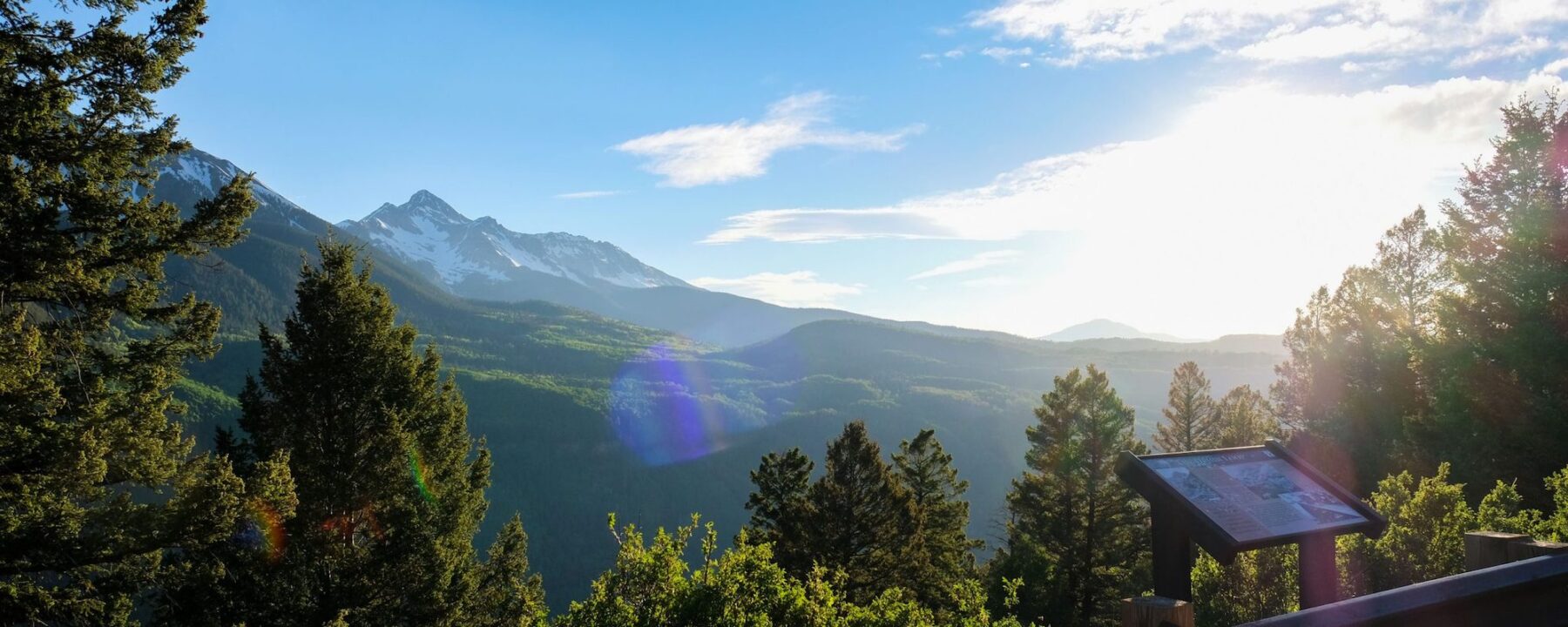
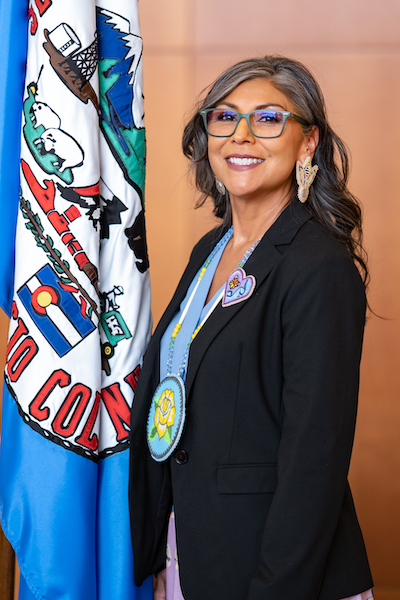
Photo: Jeremy Wade Shockley
Lorelei Cloud is a member of the Southern Ute Indian Tribe and currently serves as Vice Chairman of the Southern Ute Indian Tribal Council. Lorelei’s commitment to conservation, leadership development, and Ute language, traditions, and culture is evident by the staggering number of leadership roles she holds– she is Co-Chairman of the Indigenous Women’s Leadership Network, a Board Trustee for the Nature Conservancy, and serves on the Colorado River Basin’s Water & Tribes Initiative. Earlier this year, she was appointed by the Governor of Colorado to serve on the Colorado Water Conservation Board (“CWCB”), making her the first-ever Tribal member of the board.
Lorelei was born and raised on the Southern Ute Reservation, which is located in the far southwestern corner of Colorado. From the very beginning, water has played a central role in Lorelei’s life– much of her childhood was spent without running water and access to drinking water continues to be a challenge on the Reservation to this day. Much of Lorelei’s early career was spent working in various businesses, including banking and energy, all while being a mother and raising four children. In 2015, she was elected to the Tribal Council, which began this new phase of her life and career– a phase devoted to serving her Tribal Community, as well as the communities, landscapes, and natural resources of the American West.
I’ve been hearing such great things about Lorelei for years, so I was honored to have the opportunity to chat with her on the podcast. We enjoyed a wide-ranging conversation about her upbringing on the Southern Ute Reservation, the history of the Southern Ute Tribe, her recent appointment to the CWCB, why she decided to devote herself to public service, the goals of the Indigenous Women’s Leadership Network, her work with the Nature Conservancy, the need to elevate Tribal voices on issues of water and land conservation in the West and beyond, advice for aspiring leaders, her favorite books, ways the listeners can get involved and support the work of the Southern Ute Tribe, and much more.
Be sure to check out the episode notes for a full list of topics discussed and links to everything. A huge thanks to Lorelei for taking the time out of her busy schedule to talk with me and for her deep commitment to doing such impactful work in Colorado and beyond. Enjoy!
Header photo by Trennie Collins, Portrait by Jeremy Wade Shockley
LISTEN & DOWNLOAD:
Download on Apple Podcasts
Download on Spotify
Download on Google Podcasts
…or wherever you get your podcasts!
EPISODE PARTNER:
This episode is brought to you in partnership with the Colorado chapter of The Nature Conservancy. Guided by science and grounded by decades of collaborative partnerships, The Nature Conservancy has a long-standing legacy of achieving lasting results to create a world where nature and people thrive.
On the fourth Tuesday of every month throughout 2023, Mountain & Prairie will be delving into conversations with a wide range of The Nature Conservancy’s leaders, partners, collaborators, and stakeholders, highlighting the myriad of conservation challenges, opportunities, and solutions here in the American West. You can access all of the 2023 episodes here.
To learn more about The Nature Conservancy’s impactful work in Colorado and around the world, visit www.nature.org/colorado
RESOURCES:
Topics Discussed:
- 3:30 – Lorelei’s youth on the Southern Ute Reservation
- 6:15 – How Lorelei’s family would get water
- 8:15 – Lorelei’s childhood personality, school years, and early jobs
- 13:30 – Whether or not Lorelei wanted to stay on the reservation
- 15:30 – A brief Ute history
- 19:00 – How Lorelei’s appointment as the first Indigenous representative on the CWCB
- 22:15 – What the CWCB does
- 27:30 – How Lorelei decided to pursue public service
- 30:15 – About the Indigenous Women’s Leadership Network
- 34:00 – Lorelei’s advice for aspiring leaders
- 36:15 – Lorelei’s mentors
- 40:30 – About Lorelei’s role as Vice Chairman of the Southern Ute Tribe
- 43:00 – How Lorelei became involved with TNC and how she evaluates whether or not to pursue a professional opportunity
- 48:15 – Whether or not Deb Haaland has elevated Tribal voices through her work
- 52:00 – Lorelei’s book recommendations
- 55:00 – How you can help Lorelei’s work
- 56:00 – Lorelei’s words of wisdom
Information Referenced:
- Lorelei Cloud
- Southern Ute Indian Tribe
- Lorelei’s YouTube presentation
- CWCB – Colorado Water Conservation Board
- Lorelei’s appointment to the CWCB
- Leonard Birch
- Pino Nuche Purasa restaurant
- Ignacio, CO
- Indian Housing Authority
- Red Willow Production Company
- Ute Reservation reduction maps
- Ute history
- Ute Mountain Ute Tribe
- Ute Tribe
- Fort Duchesne, UT
- Meeker Massacre
- Jicarilla Apache Nation
- Palmer Land Conservancy
- Rebecca Mitchel
- San Miguel River
- Dolores River
- San Juan River
- Sports Betting Act
- Indigenous Women’s Leadership Network
- The Nature Conservancy, CO
- Water and Tribes Initiative
- Matt McKinney and Darryl Vigil
- Bidtah Becker
- Nora McDowell
- Fort Mojave Indian Tribe
- Crystal Tulley-Cordova
- Bureau of Indian Affairs
- Celene Hawkins
- Carlos Fernandez
- Melvin Baker, Chairman of the Southern Ute
- Colorado River Compact
- Deb Haaland
- Taylor Hawes
- The Fifth Discipline by Peter M. Senge
- White Horse by Erica T. Wurth
- M. Scott Momaday
Enjoy this episode? Then you might like these too:
- Shane Doyle – Reverence for the Past, Hope for the Future
- Marci McLean & Cora Neumann on COVID’s Impact on Native Communities
- Chris La Tray – Rediscovering His Past, Writing His Future
- Peter Stark – Tales of Adventure, Exploration, & Epic Battles
- Francesca Claverie – A Borderlands Conservation Success Story
- Betsy Gaines Quammen – A Fascinating History of Public Lands in the West
- Len Necefer – Indigenous Advocate
- Bryce Andrews, Part 2 – “Holding Fire”
Visit the podcast page for a full list of episodes where you can filter episodes by topic and guests’ vocations.
Rob Addington – A Deep Dive into Western Wildfires and Forest Health

Rob Addington is the Director of the Forest and Fire Program with The Nature Conservancy in Colorado. He and his team are focused on increasing the pace and scale of forest restoration in Colorado to reduce hazardous fuels and promote landscape resilience to natural disturbances such as wildfire as well as climate change.
You don’t have to live in the West to know that the region has been battling ongoing drought, historically large and intense wildfires, and various forms of insect-induced forest devastation. Over the past few years here in Colorado, we’ve experienced some of the most destructive wildfires in recorded history, and the pine beetle infestation continues to be a source of serious and increasing concern. And Colorado is obviously not alone– there are similar stories of struggling forests throughout all of the Western states.
While the current conditions may be dire, you’ll be happy to know that Rob and his team at The Nature Conservancy are working extremely hard to find collaborative, creative, and effective solutions to the challenges facing our forests here in the West. By partnering with government agencies, Tribal nations, private landowners, various non-profits, and more, TNC has been leading and implementing some of the most innovative forest health work in the country– work that is creating more resilient, healthy landscapes across hundreds of thousands of acres.
For all the listeners who have been asking for a wildfire and forest health-focused episode, this one is for you. I met up with Rob at the TNC office in Boulder, and he was kind enough to educate me on both the big picture and finer details of all things forest health. You can check out the notes for a full list of everything we discussed, but a few of the topics include: The infamous 2020 wildfire season and the outlook for 2023, the history of land management and how that has affected wildfires, pine beetles, wildfire’s effects on water quality, how beavers can play a role in fire mitigation, some specific success stories, business solutions for forest health, the all-important focus on partnerships, post-fire land management strategies, good books, and much more. Be sure to visit the episode webpage for links to everything, including TNC’s exciting new Western Division Forest and Fire Initiative.
A huge thanks to Rob for taking the time to answer all my questions and another huge thanks to TNC for leading all of this important work. I hope you enjoy!
Headshot courtesy of The Nature Conservancy
LISTEN & DOWNLOAD:
Download on Apple Podcasts
Download on Spotify
Download on Google Podcasts
…or wherever you get your podcasts!
EPISODE PARTNER:
This episode is brought to you in partnership with the Colorado chapter of The Nature Conservancy. Guided by science and grounded by decades of collaborative partnerships, The Nature Conservancy has a long-standing legacy of achieving lasting results to create a world where nature and people thrive.
On the fourth Tuesday of every month throughout 2023, Mountain & Prairie will be delving into conversations with a wide range of The Nature Conservancy’s leaders, partners, collaborators, and stakeholders, highlighting the myriad of conservation challenges, opportunities, and solutions here in the American West. You can access all of the 2023 episodes here.
To learn more about The Nature Conservancy’s impactful work in Colorado and around the world, visit www.nature.org/colorado
RESOURCES:
Topics Discussed:
- 3:30 – Discussing the fire season of 2020
- 9:45 – The outlook for the fire season of 2023
- 12:00 – Discussing the variability in Colorado’s recent fire seasons
- 14:45 – The causes for Colorado’s changing fire seasons
- 17:30 – Exploring, specifically, the role of historic land management and how it impacts fire behavior
- 20:30 – Discussing pine beetles
- 26:00 – How the forest regime progresses in beetle-killed stands without fire, and how changing fire behavior is impacting the forest regime
- 32:00 – How fires impact water
- 39:15 – Discussing potential solution strategies for Colorado’s fire situation
- 42:00 – Discussing the importance of managing partnerships in this work
- 44:45 – A specific, fire-related project that Rob is happy about
- 47:15 – Exploring the potential of a for-profit business that is incentivized to thin out fire-prone forests
- 50:30 – Beavers’ role in wildfire prevention
- 54:30 – Rob’s favorite period of history to read about
- 56:30 – Management strategies for an area that has been wiped clean by fire
- 1:00:30 – Rob’s book recommendations
Information Referenced:
- Rob Addington
- Monsoon
- Cameron Peak Fire
- East Troublesome Fire
- Calwood Fire
- Grizzly Creek Fire
- Pine Gulch Fire
- Division of Fire Prevention and Control
- Hayman Fire
- High Park Fire
- Waldo Canyon Fire
- Black Forest Fire
- Ponderosa Pine
- The Big Burn by Timothy Egan
- Gifford Pinchot
- Ten o’clock Rule
- Lodgepole Pine
- Spruce-Fir forest
- Grand County, CO
- Winter Park
- Red Phase of beetle kill (and others)
- Forest Canopy Bulk Density
- Incident Management Teams
- Rocky Mountain Research Station
- Aspen trees
- Boulder, CO
- Taylor Hawes
- Buffalo Creek Fire
- Strontia Springs Reservoir
- Cheesman Reservoir
- Fort Collins, CO
- Cache La Poudre River
- Big Thompson River
- Bipartisan Infrastructure Act
- Inflation Reduction Act
- USFS Wildfire Crisis Strategy
- Upper Monument Creek Landscape Restoration Initiative
- South Platte River
- Northern Colorado Fireshed Collaborative
- Pike National Forest
- Jefferson County Open Space
- Denver Mountain Parks
- Conifer, CO
- Bailey, CO
- Biochar
- Mass timber/Cross-laminated timber
- Emily Fairfax
- Beaver dam analogs
- Eager by Ben Goldfarb
- Salt by Mark Kurlansky
- Cod by Mark Kurlansky
- Astoria by Peter Stark
- Peter Stark
- Oregon State University
- Katherine Schloegel
- Colorado Forest Restoration Institute
- Ecological Restoration Institute (NAU)
- Northern Arizona University
- Young Men and Fire by Norman Mclean
- Mann Gulch Tragedy
- Chief Left Hand by Margaret Coel
- Governor Evans
- Colonel Chivington
- Sand Creek Massacre
- Western Division Forest and Fire Initiative
Enjoy this episode? Then you might like these too:
- Russ Schnitzer – A Life Devoted to Western Landscapes
- Robert Krapfel – On Living A Purpose-Driven Life
- Mike Phillips – Audacious Goals, Relentless Action
- Daniela Ibarra-Howell – Healing the Land Holistically
- Shane Doyle – Reverence for the Past, Hope for the Future
- Land Tawney – Energetic & Optimistic
- Francesca Claverie – A Borderlands Conservation Success Story
- Taylor Hawes – Innovative Conservation in the Colorado River Basin
Visit the podcast page for a full list of episodes where you can filter episodes by topic and guests’ vocations.
Chris Hawkins – Using Nature to Build Healthier & More Equitable Communities
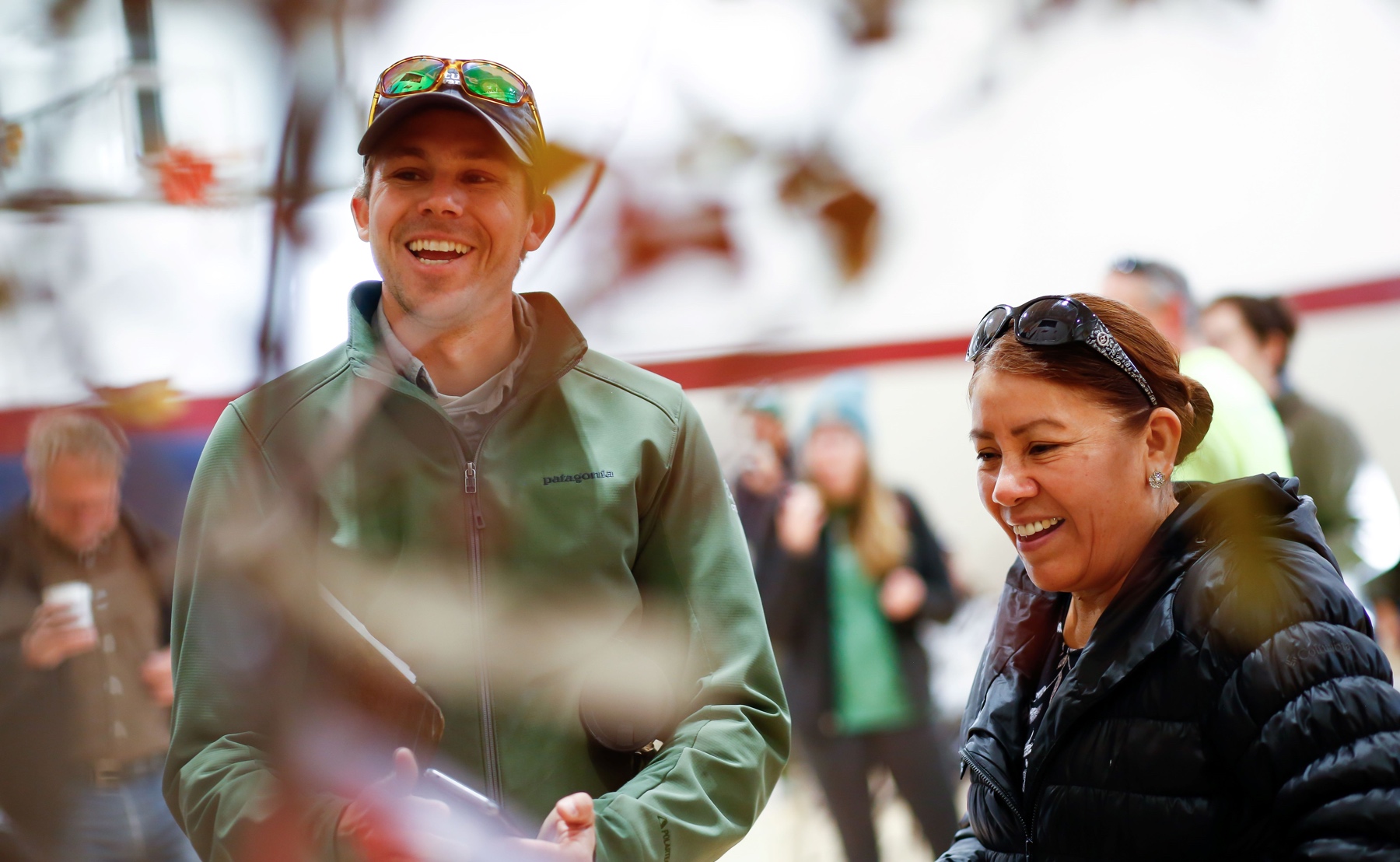
Chris Hawkins is the Colorado Urban Conservation Manager for The Nature Conservancy, where he leads the organization’s efforts in Denver to “solve global challenges like the biodiversity and climate emergencies by supporting and creating more sustainable, efficient ways of living.”
When many people think of The Nature Conservancy, they may envision large-scale conservation efforts across vast grasslands and wild landscapes– but TNC also conducts some of its most innovative conservation work in cities— work that leads to more resilient, healthy, and equitable communities. Chris’s work in Denver is a shining example of how nature-based solutions in densely populated urban areas can have positive ripple effects far beyond the city limits.
Chris was born and raised on the east coast, attended college in Boston, and from the very beginning of his career, he’s been focused on service and causes greater than himself. He’s worked as a Corps Member of AmericaCorps, as Chief of Staff in New York City’s Department of Environmental Protection, and for the past nine years, he’s been with the Nature Conservancy. As you’ll hear in this conversation, Chris’s diverse professional experiences have allowed him to bring a unique and effective perspective to the complex world of urban conservation.
Chris was nice enough to join me at my dining room table for an engaging and educational conversation about all things urban conservation. We started out by discussing why TNC has chosen to devote its resources and expertise to conservation in cities, and he explains the unique challenges facing cities in the West. We discuss how public health is directly related to people’s access to nature, and how the simple-but-not-easy strategy of planting trees in neighborhoods can have huge conservation and public health benefits. As is the case with all of my conservation-related conversations, we discuss the critical importance of relationships, and how Chris has managed to build relationships with a diverse group of Denver residents. We also discuss his professional trajectory, the importance of exporting urban conservation ideas to other cities, and the critical roles of mayors and local leadership. And finally, Chris is a serious history buff, so we have a great discussion about books.
There is so much fascinating information packed into this episode, and I greatly appreciate Chris’s taking the time to share his wisdom with the Mountain & Prairie community. Check out the episode notes below for links to everything we discuss. I hope you enjoy this conversation as much as I did.
Photos courtesy of Chris Hawkins and The Nature Conservancy
LISTEN & DOWNLOAD:
Download on Apple Podcasts
Download on Spotify
Download on Google Podcasts
…or wherever you get your podcasts!
EPISODE PARTNER:
This episode is brought to you in partnership with the Colorado chapter of The Nature Conservancy. Guided by science and grounded by decades of collaborative partnerships, The Nature Conservancy has a long-standing legacy of achieving lasting results to create a world where nature and people thrive.
On the fourth Tuesday of every month throughout 2023, Mountain & Prairie will be delving into conversations with a wide range of The Nature Conservancy’s leaders, partners, collaborators, and stakeholders, highlighting the myriad of conservation challenges, opportunities, and solutions here in the American West. You can access all of the 2023 episodes here.
To learn more about The Nature Conservancy’s impactful work in Colorado and around the world, visit www.nature.org/colorado
RESOURCES:
Topics Discussed:
- 3:45 – Why do Chris and TNC work in cities
- 7:00 – Thriving cities in the West and the unique challenges they present
- 9:30 – Whether or not the health benefits of the outdoors have become a larger part of Chris’s work recently
- 15:30 – Discussing trees
- 27:45 – How Chris builds relationships in his work in cities
- 33:45 – Specific strategies Chris uses to build trust
- 38:30 – Where Chris grew up and why he became involved in this work
- 43:30 – Discussing the work of city mayors
- 53:00- How ideas that are exported or imported between cities show up in Chris’s work in Denver
- 1:00:15 – Chris’s book recommendations
Information Referenced:
- Chris Hawkins
- Jaime González
- The Nature Conservancy
- The Nature Conservancy in Colorado
- TNC Cities program in Denver
- Global Cities Program, TNC
- The Nature Conservancy in Kentucky
- The Nature Fix by Florence Williams
- Last Child in the Woods by Richard Louv
- Melissa McHale
- Globeville, Denver
- Elyria-Swansea, Denver
- Office of Climate Action, Sustainability, and Resiliency, Denver, CO
- Carlos Fernández
- Matt Moorhead and Galen Guerro-Murphy
- Dr. Katherine Hayhoe
- Americorps
- Cape Cod
- John Hickenlooper
- Congestion pricing in London
- Yemi Mobolade
- New York Office of Charter Schools
- New York City Office of Sustainability
- New York City Water Board
- Rain garden map of New York City
- Trust for Public Land
- Colorado Cattlemen’s Association
- Green roof ordinance in Denver
- The Power Broker by Robert A. Caro
- Robert Moses
- Grant by Ron Chernow
- Ulysses S. Grant
- Frederick Douglass: Prophet of Freedom by David W. Blight
Enjoy this episode? Then you might like these too:
- Equitable Access to the Outdoors in Texas
- Cole Mannix – Building Community through Land Stewardship and Local Food
- Carlos Fernández, Part 2 – Creating Conservation Opportunities During Uncertain Times
- Douglas Brinkley – Exploring the Past to Find Inspiration for the Future
- Amber Smith – Creating Connection & Community
- Land Tawney – Energetic & Optimistic
- Betsy Gaines Quammen – A Fascinating History of Public Lands in the West
Visit the podcast page for a full list of episodes where you can filter episodes by topic and guests’ vocations.
Matt Moorhead & Galen Guerrero-Murphy – Grasslands Conservation on the Southern High Plains
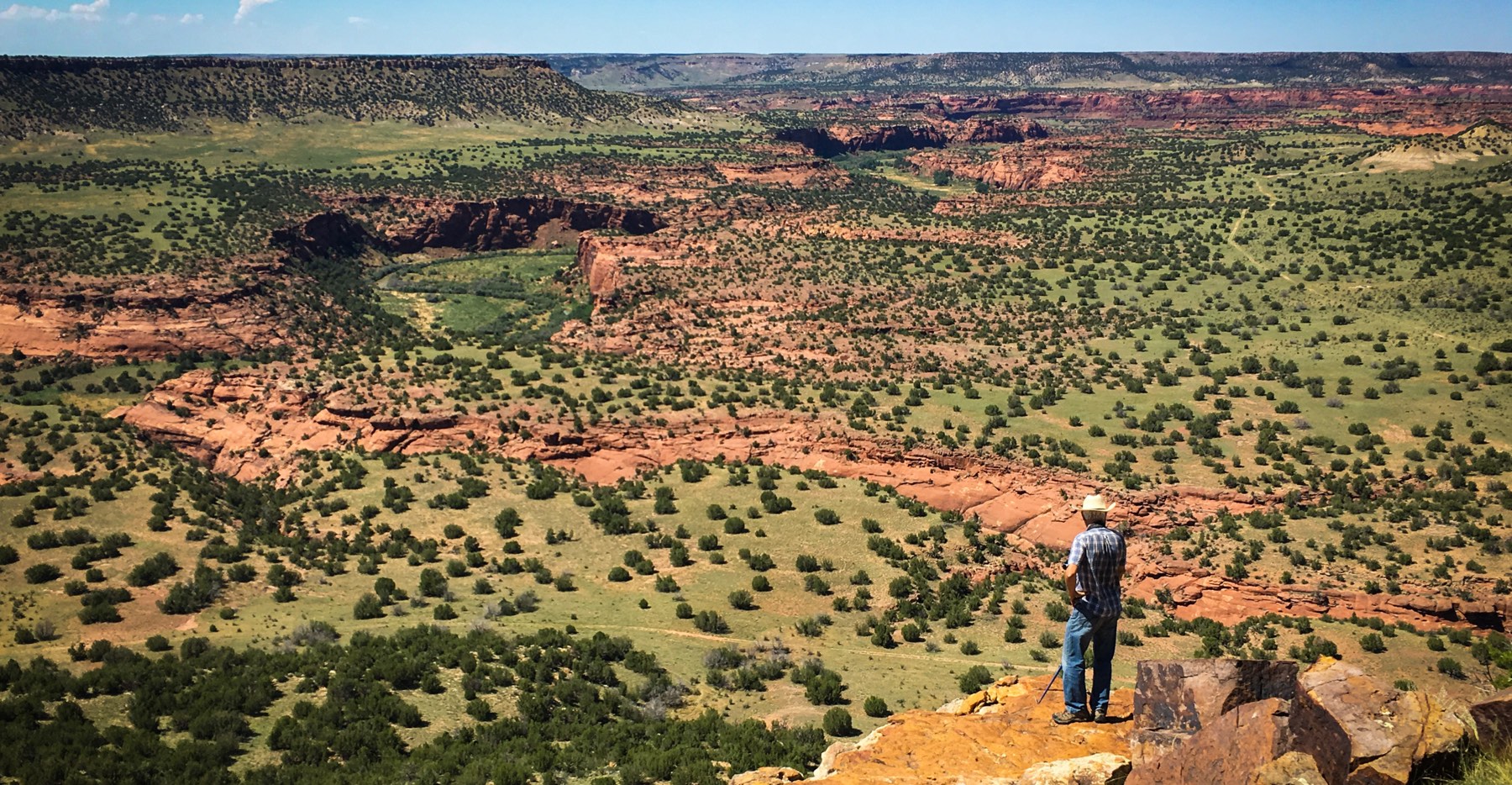
Matt Moorhead and Galen Guerrero-Murphy are conservationists who work for The Nature Conservancy on its Southern Highs Plains Initiative (SHPI), a collaboration between five states with the shared goal of protecting the nation’s grasslands. The Southern High Plains encompasses approximately 71 million acres across Colorado, Kansas, New Mexico, Oklahoma, and Texas. The region is home to some of the country’s most important grasslands, as well as the people and wildlife who depend on the invaluable shortgrass prairie ecosystem.
Officially, Matt is TNC’s Conservation Business & Partnership Development Advisor and Galen is TNC’s Land Conservation Program Manager– but at their core, they are both relationship builders. As you’ll hear in this conversation, both Matt and Galen work tirelessly to build long-term, rock-solid partnerships with landowners and conservation partners with the goal of finding win-win solutions that can be mutually beneficial for all parties. Through genuine curiosity, creative thinking, and a deep respect for landowners and their legacy, Matt and Galen have helped to implement lasting conservation outcomes in the Southern High Plains.
The three of us connected virtually and had a fascinating conversation about grasslands, ranching, buidling relationships, and purpose-driven work. We start out by defining exactly what constitutes the Southern High Plains and why this is such an important region for conservation. We then discuss why the large percentage of private ownership creates such a compelling case for conservation, the need for balancing conservation with various forms of energy development, the current markets around grasslands carbon sequestration, and the all-important role of TNC’s partners. We also discuss Matt and Galen’s mentors, how they measure conservation success, and some of their favorite books.
I’ve considered Matt and Galen to be friends and mentors for many years now, so I was grateful for the opportunity to talk with them on the podcast. Hope you enjoy.
Photos courtesy of The Nature Conservancy, header photo by Lauryn Wachs
LISTEN & DOWNLOAD:
Download on Apple Podcasts
Download on Spotify
Download on Google Podcasts
…or wherever you get your podcasts!
EPISODE PARTNER:
This episode is brought to you in partnership with the Colorado chapter of The Nature Conservancy. Guided by science and grounded by decades of collaborative partnerships, The Nature Conservancy has a long-standing legacy of achieving lasting results to create a world where nature and people thrive.
On the fourth Tuesday of every month throughout 2023, Mountain & Prairie will be delving into conversations with a wide range of The Nature Conservancy’s leaders, partners, collaborators, and stakeholders, highlighting the myriad of conservation challenges, opportunities, and solutions here in the American West. You can access all of the 2023 episodes here.
To learn more about The Nature Conservancy’s impactful work in Colorado and around the world, visit www.nature.org/colorado
RESOURCES:
Topics Discussed:
- 3:10 – Introductions
- 6:25 – What are the Southern High Plains
- 9:55 – Why the Southern High Plains are so critical in conservation
- 16:10 – How the patchwork of private lands in the Southern High Plains allows Matt and Galen to be effective in their conservation work
- 20:55 – The process of building relationships in private lands conservation work
- 29:10 – Balancing the potential for landowners to earn revenue through energy development with the interest in conserving landscapes
- 35:10 – Where things stand on grassland carbon sequestration as a method of generating both landowner revenue as well as conservation outcomes
- 39:10 – The importance and skills of TNC’s partners
- 43:10 – Matt and Galen’s mentors
- 50:10 – What progress on the Southern High Plains Initiative would make Matt and Galen happy in 10-15 years
- 53:40 – Matt and Galen’s book recommendations
Information Referenced:
- The Nature Conservancy, Colorado Chapter
- Matt Moorhead
- Galen Guerrero-Muphy
- Theodore Roosevelt
- Southern High Plains Initiative
- Colorado Cattlemen’s Association
- JE Canyon Ranch
- Arkansas River
- Canadian River
- Sangre de Cristo Mountains
- Santa Fe Trail
- American Serengeti by Dan Flores
- Roaring Fork Valley
- Spanish Land Grants
- Chris Pague
- Dust Bowl
- Colonial Conservation
- TRC Companies
- Pueblo, CO
- UC Davis study – Grasslands More Reliable Carbon Sink Than Trees
- David Smith
- Steve Massey
- John Ehrenfeld
- Palmer Land Conservancy
- Pueblo, Colorado
- The Complete Far Side by Gary Larson
- Celebrating Peanuts: 65 Years by Charles Schultz
- Guns, Germs, and Steel by Jared Diamond
- The Dawn of Everything by David Graeber
- Confessions of an Economic Hitman by John Perkins
- The Tree of Knowledge by Humberto R. Maturana and Francisco J. Varela
- This is Your Mind on Plants by Michael Pollan
- Braiding Sweetgrass by Robin Wall Kimmerer
- Saving Us by Katherine Hayhoe
Enjoy this episode? Then you might like these too:
- Cole Mannix – Building Community through Land Stewardship and Local Food
- Francesca Claverie – A Borderlands Conservation Success Story
- Kate Mannix – A Legacy of Land Stewardship
- Amber Smith – Creating Connection & Community
- Lesli Allison & Tuda Libby Crews – Durable Conservation in the West… and Beyond
- Daniela Ibarra-Howell – Healing the Land Holistically
- Russ Schnitzer – A Life Devoted to Western Landscapes
Visit the podcast page for a full list of episodes where you can filter episodes by topic and guests’ vocations.
Taylor Hawes – Innovative Conservation in the Colorado River Basin
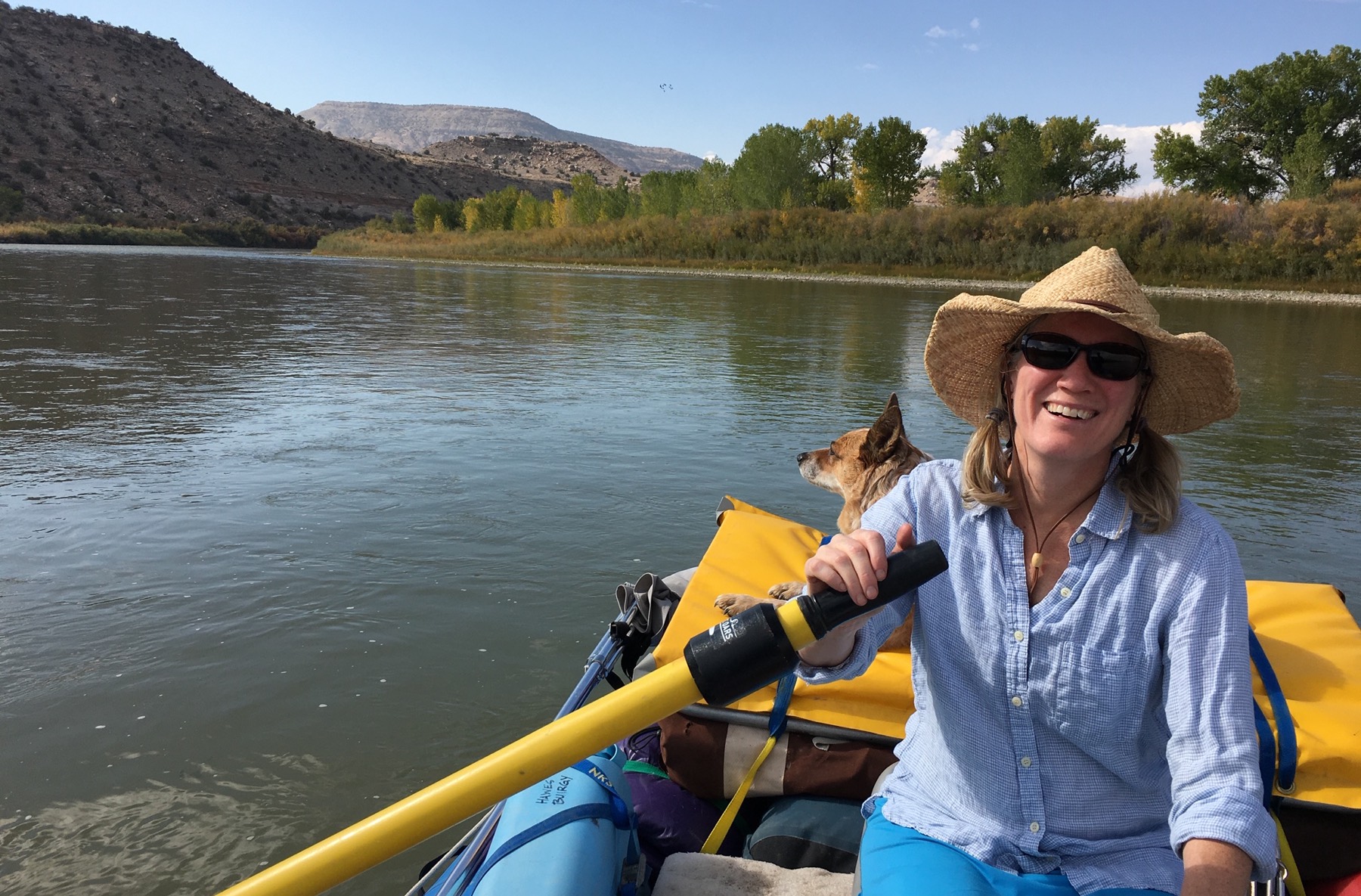
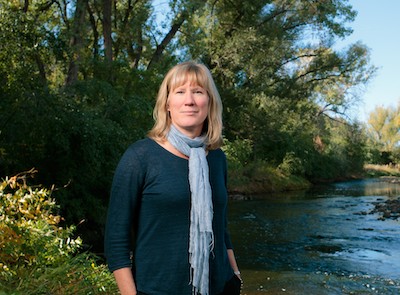
Photo credit: Matthew Staver
Taylor Hawes is the Director of the Colorado River Program for the Nature Conservancy. As the leader of the program, she guides TNC’s efforts to conserve the freshwater biodiversity of the Colorado River Basin while also meeting human demands for water– challenging objectives given the wide-ranging stresses facing the river today. But despite the challenges brought about by climate change, overallocation, and increasing demand, Taylor and her team are making great strides toward finding long-term solutions to create a sustainable future for the Colorado River and the people, plants, and animals that depend on it.
Taylor grew up on the east coast, and, from a young age, she felt a deep connection to land, water, and natural resources. She fell in love with wide-open spaces while on a course with the National Outdoor Leadership School, and she’s devoted her career to protecting land and water in the West. Prior to joining the team at TNC, she served as Associate Counsel to the Colorado River Water Conservation District on Colorado’s Western Slope, working on water quality, water policy, environmental permitting, and water rights litigation.
If you pay attention to the news, then you’ll know that the Colorado River has been receiving tons of media attention for the dire conditions and projections facing the entire region. Reservoirs are at historic lows, temperatures are rising, and the need for more water is increasing. In the first part of this conversation, I ask Taylor to decipher many of the surface-level sound bytes that I’ve heard in the news, and she provides some much-needed context and background regarding the river basin’s current challenges. We then talk about how TNC is working to solve these problems, by building community support, working collaboratively with Tribal nations, and helping agricultural producers become more efficient. And we spend the last part of the conversation talking about Taylor’s professional journey– why she chooses to do this work, what gives her hope, and her goals for her work on the Colorado River.
This was a timely conversation, and I hope it sheds some light on the challenges facing the Colorado River today– and provides some optimism about the river’s future. Thanks to Taylor for taking the time to chat, and thank you for listening.
Photos courtesy of Taylor Hawes and The Nature Conservancy
LISTEN & DOWNLOAD:
Download on Apple Podcasts
Download on Spotify
Download on Google Podcasts
…or wherever you get your podcasts!
EPISODE PARTNER:
This episode is brought to you in partnership with the Colorado chapter of The Nature Conservancy. Guided by science and grounded by decades of collaborative partnerships, The Nature Conservancy has a long-standing legacy of achieving lasting results to create a world where nature and people thrive.
On the fourth Tuesday of every month throughout 2023, Mountain & Prairie will be delving into conversations with a wide range of The Nature Conservancy’s leaders, partners, collaborators, and stakeholders, highlighting the myriad of conservation challenges, opportunities, and solutions here in the American West. You can access all of the 2023 episodes here.
To learn more about The Nature Conservancy’s impactful work in Colorado and around the world, visit www.nature.org/colorado
RESOURCES:
Topics Discussed:
- 3:15 – An overview of the situation regarding Colorado River water
- 8:00 – Discussing the “bandaid” solutions for the overallocated Colorado River implemented over the years
- 10:45 – Who is making the water allocation decisions for the Colorado River
- 12:00 – The breakdown of water use in the West
- 16:45 – Why has this situation has become an emergency right now, meriting the involvement of the federal government
- 19:30 – The timeline of Colorado river use reduction mandates
- 21:30 – The potential impacts of shrinking Colorado River on the Grand Canyon
- 23:00 – What will happen if the Colorado River Basin states do not agree on a plan to reduce water use in accordance with federal mandates
- 24:45 – How Taylor focuses on solutions regarding such a complex, difficult-to-model problem
- 28:30 – Some strategies TNC is employing to support and work with producers in reducing their water use
- 35:00 – Discussing the difficulties and importance of relationship building in this work
- 40:15 – TNC’s work supporting Tribal water challenges
- 44:45 – What drives Taylor’s work and what are her goals
- 47:00 – How Taylor ended up doing this work
- 53:45 – How law school helped Taylor
- 55:45 – What keeps Taylor energized about her work and TNC
- 58:15 – How anybody can get involved in this work
- 1:02:00 – Taylor’s book recommendations
Information Referenced:
- The Nature Conservancy, Colorado
- Taylor Hawes
- 5280 Magazine
- 5280 article with Taylor
- The Colorado River
- The Colorado River Compact
- Colorado River 2007 Interim Guidelines and Drought Contingency Plans
- Bureau of Reclamation
- Lake Powell
- Lake Mead
- SEIS: Supplemental Environmental Impact Statement
- Colorado Water Conservation Board
- Rebecca Mitchell
- Arizona Department of Water Resources
- State of California Colorado River Board
- Denver Water
- San Juan Mountains
- The Emerald Mile by Kevin Fedarko
- Glen Canyon Dam
- Page, AZ
- Navajo Nation
- Boulder, CO
- Acre-foot
- Smallmouth Bass
- CFS – cubic feet per second
- Arkansas River
- Colorado Springs, CO
- Kernza
- Alfalfa
- Hay Grass
- Riparian Doctrine
- Grand Valley
- Verde River
- Phoenix, AZ
- Barley
- Malt House
- Headgate
- Matt Moorhead
- Aaron Derwingson
- Klamath Basin
- Trout Unlimited
- TNC Colorado 2022 Year in Review
- Upper Basin Tribal Dialogue
- Yampa River
- University of North Carolina
- Savannah River
- Richard B. Russell Dam
- Jimmy Carter
- Chapel Hill, NC
- Exxon Valdez Oil Spill
- NOLS
- Prince William Sound
- Time Magazine coverage of the Exxon Valdez Spill
- Booms
- Gila River
- Virgin River
- Colorado River in Crisis podcast
- Audubon Society
- Cadillac Desert by Mark Reisner
Enjoy this episode? Then you might like these too:
- Carlos Fernández, Part 2 – Creating Conservation Opportunities During Uncertain Times
- Dr. Katharine Hayhoe – Effecting Change Through Authentic Conversation
- Pete McBride, Part 2: In Search of Silence
- Frances Ashforth – Art, Water, and Wide-Open Spaces
- Dylan Tomine – Protecting What He Loves
- Alvin Dedeaux – Living His Dream
- Mike Foote – Perfection is in the Process
- Chris Dombrowski, Part 2 – “The River You Touch”
Visit the podcast page for a full list of episodes where you can filter episodes by topic and guests’ vocations.
Dr. Katharine Hayhoe – Effecting Change Through Authentic Conversation
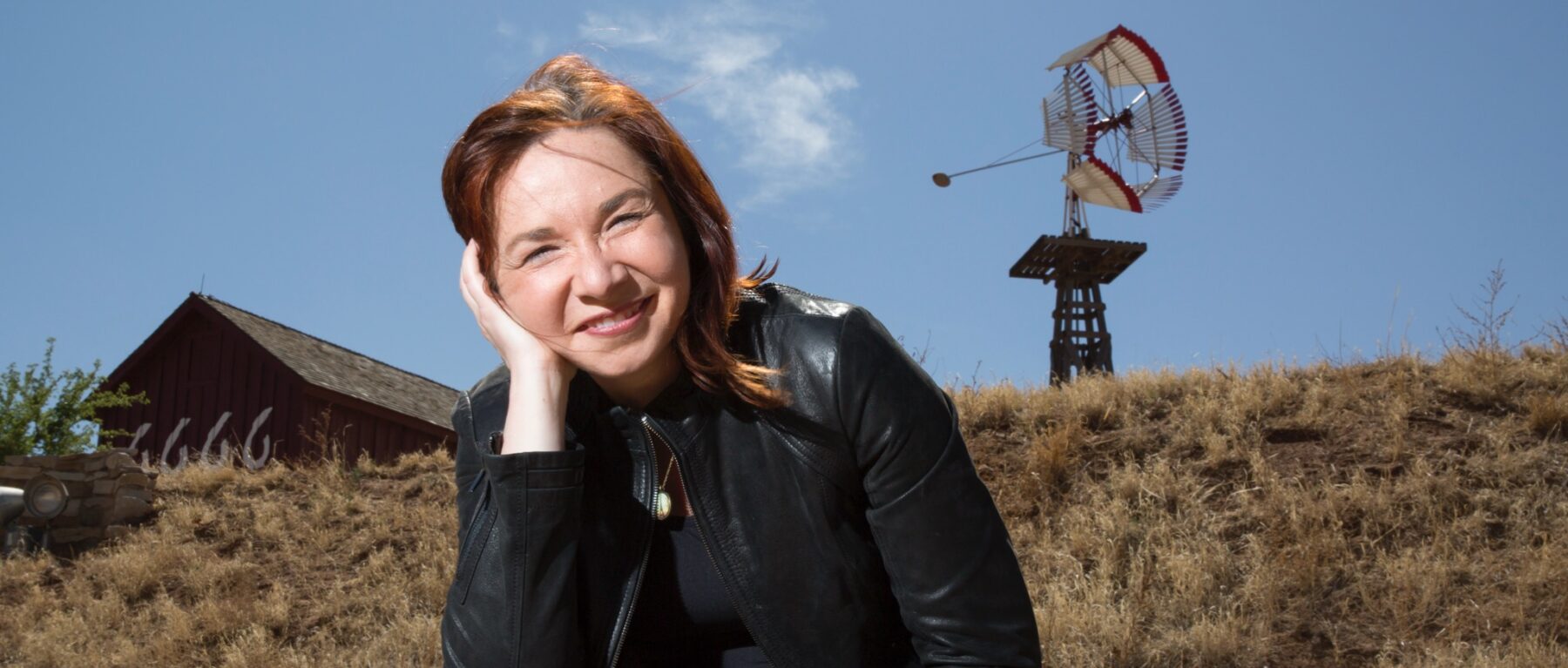
Dr. Katharine Hayhoe is a world-renowned climate scientist, professor, and Chief Scientist for The Nature Conservancy, where she leads and coordinates the organization’s scientific efforts. She is also the author of Saving Us: A Climate Scientist’s Case for Hope and Healing in a Divided World, an excellent book you’ve likely heard me reference on the podcast. Whether you are interested in learning more about the facts, data, or projections regarding climate change, or if you are seeking guidance on how best to approach challenging conversations about climate, I highly recommend Saving Us. It’s an optimistic, solutions-oriented guidebook for finding common ground and having productive conversations.
Katharine was born and raised in Canada and has been obsessed with science, the natural world, and the universe for as long as she can remember. Her undergraduate studies focused on physics and astronomy, but as she was finishing up her degree, she happened to take a climate science course, which captured her imagination and changed the focus of her education and career. Today, Katharine is a distinguished professor at Texas Tech, a highly respected researcher, and a sought-after speaker with a TED Talk that’s been viewed more than 4 million times. And to top it all off, in 2021, she joined The Nature Conservancy as its Chief Scientist.
Katharine and I met up in Steamboat Springs, Colorado, where she was the keynote speaker at a community event focused on climate and climate change in the Yampa Valley and beyond. Katharine and I chatted for an hour before her event, and we managed to cover a lot of ground. We discussed her book Saving Us, her TED talk, and a concept known as “The Six Americas of Global Warming.” We discuss how and why her Christian faith plays such an important role in her work to solve climate change, and she offers some common-sense, optimistic approaches to having challenging conversations with smart people who do not think that climate change is a threat. She also talks about her role at The Nature Conservancy, specific climate opportunities and challenges facing the American West, and she offers a ton of excellent book recommendations.
Thank you to Dr. Hayhoe for taking the time out of her busy schedule to chat with me, and thank you for listening. Hope you enjoy.
Header photo and headshot by Ashley Rodgers
LISTEN & DOWNLOAD:
Download on Apple Podcasts
Download on Spotify
Download on Google Podcasts
…or wherever you get your podcasts!
EPISODE PARTNER:
This episode is brought to you in partnership with the Colorado chapter of The Nature Conservancy. Guided by science and grounded by decades of collaborative partnerships, The Nature Conservancy has a long-standing legacy of achieving lasting results to create a world where nature and people thrive.
On the fourth Tuesday of every month throughout 2023, Mountain & Prairie will be delving into conversations with a wide range of The Nature Conservancy’s leaders, partners, collaborators, and stakeholders, highlighting the myriad of conservation challenges, opportunities, and solutions here in the American West. You can access all of the 2023 episodes here.
To learn more about The Nature Conservancy’s impactful work in Colorado and around the world, visit www.nature.org/colorado
RESOURCES:
Topics Discussed:
- 3:30 – Why Dr. Hayhoe wrote Saving Us
- 5:45 – Regarding Dr. Hayhoe’s TED Talk
- 8:15 – Discussing The Six Americas of Global Warming
- 12:00 – The relationship between Dr. Hayhoe’s faith and climate work
- 17:45 – When religion and climate change dismissal historically became tied together
- 21:30 – Discussing the balance between fear and guilt as motivating and stagnating forces
- 28:00 – What surprised Dr. Hayhoe in writing the book
- 33:45 – Role-playing how to interact with intelligent people who doubt climate science
- 37:30 – Applying lessons learned from COVID-19 to climate change
- 41:30 – Dr. Hayhoe’s time as a 9-year-old abroad in Columbia and how it influenced her thinking and career
- 46:15 – Why Dr. Hayhoe decided to work with The Nature Conservancy, and the impacts she hopes to make
- 50:15 – The stats Dr. Hayhoe would want to see to feel she has had an impact in five years
- 54:45 – The challenges and opportunities facing the arid West amidst climate change
- 57:00 – Dr. Hayhoe’s reading habits and some books she has loved
Information Referenced:
- Saving Us by Dr. Katharine Hayhoe
- The Nature Conservancy
- Poll Everywhere
- Dr. Hayhoe’s TED Talk (The Most Important Thing to Do to Fight Climate Change is to Talk About It)
- The Yale Program on Climate Change Communications
- Dr. Hayhoe’s conversation with Krista Tippett, On Being Podcast
- Douglas Brinkley
- Silent Spring Revolution by Douglas Brinkley
- Time Magazine climate change cover
- James Hansen
- James Hansen’s climate testimony
- Merchants of Doubt
- Winston-Salem, NC
- Wake Forest University
- R.J Reynolds Tobacco Company
- Boulder, CO
- Colorado Springs, CO
- COP27, Egypt
- EasyJet
- The Influential Mind by Tali Sharot
- American Psychological Association
- Texas Tech University
- Oxfam Sisters on the Planet
- Mangrove Forest
- Papua New Guinea
- Houghton College
- Wesleyan Church
- Brian Webb
- Harvard Extension School
- Citizens’ Climate Lobby
- The Righteous Mind by Jonathan Haidt
- King Tutankhamun
- The Amelia Peabody Series by Elizabeth Peters
- Dr. Ayana Elizabeth Johnson
Enjoy this episode? Then you might like these too:
- Daniela Ibarra-Howell – Healing the Land Holistically
- Marci McLean & Cora Neumann on COVID’s Impact on Native Communities
- Dr. David Hewitt – The Science of Wildlife Conservation
- Shane Doyle – Reverence for the Past, Hope for the Future
- Betsy Gaines Quammen – A Fascinating History of Public Lands in the West
- Pete McBride, Part 2: In Search of Silence
- Chris Dombrowski, Part 2 – “The River You Touch”
- Douglas Brinkley – Exploring the Past to Find Inspiration for the Future
Visit the podcast page for a full list of episodes where you can filter episodes by topic and guests’ vocations.
Carlos Fernández, Part 2 – Creating Conservation Opportunities During Uncertain Times
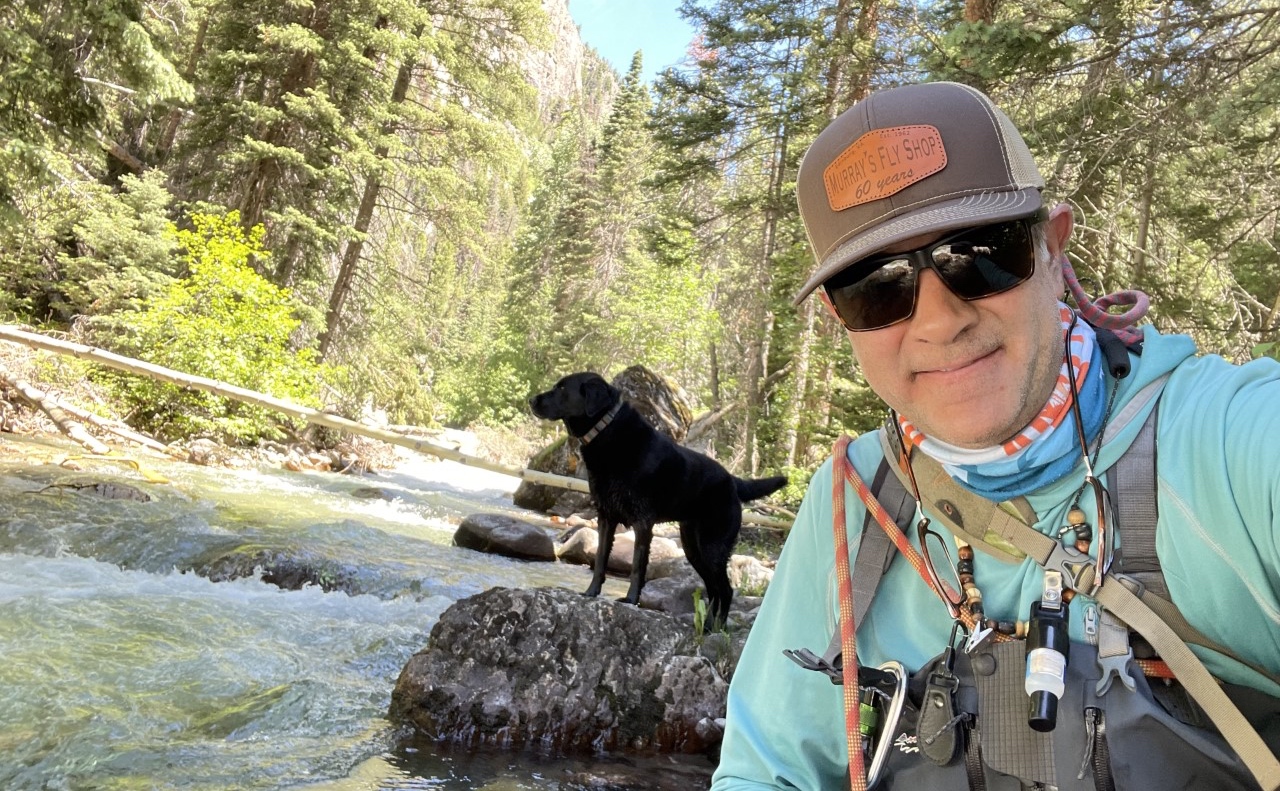
Carlos Fernandez is the Colorado State Director of The Nature Conservancy, one of the most effective conservation organizations in the American West and around the globe. You probably remember Carlos from our first conversation back in August of 2020, in which we discussed his inspiring career trajectory, the importance of collaborative conservation partnerships, and several of TNC’s cutting-edge initiatives throughout the West.
When we recorded that first episode, we were in the very early stages of the pandemic– a time marked by unprecedented uncertainty in almost every aspect of life. When we recorded today’s episode– nearly two-and-a-half years after that first conversation– the worst of the pandemic is now behind us. Carlos was able to look back on that trying period with some perspective, discussing the many challenges and opportunities that arose from such a difficult few years. This conversation is a case study of how critical work can be produced during challenging times, and how optimism, focus, and old-fashioned teamwork can lead to lasting outcomes.
Carlos and I met up at his office in Boulder and had an in-depth conversation about TNC’s conservation initiatives and collaborations over the past few years. I asked Carlos about his leadership strategies and tactics during the most intense days of the pandemic and what he and TNC learned from those challenges. We talk about Carlos’s recent 2022 year-end letter and TNC Colorado’s 2022 Year In Review, and we dig into several inspiring conservation victories from the past 12 months. We also revisit the Southern High Plains Initiative and the Yampa River Fund, and we discuss TNC’s future plans around climate change and diversity, equity, and inclusion. We also talk about this year-long partnership between TNC and Mountain & Prairie, which we are both very excited about.
A huge thank you to Carlos for taking the time to chat, and a huge thanks to all of you for listening. I hope you enjoy!
Photos courtesy of Carlos Fernández
LISTEN & DOWNLOAD:
Download on Apple Podcasts
Download on Spotify
Download on Google Podcasts
…or wherever you get your podcasts!
EPISODE PARTNER:
This episode is brought to you in partnership with the Colorado chapter of The Nature Conservancy. Guided by science and grounded by decades of collaborative partnerships, The Nature Conservancy has a long-standing legacy of achieving lasting results to create a world where nature and people thrive.
On the fourth Tuesday of every month throughout 2023, Mountain & Prairie will be delving into conversations with a wide range of The Nature Conservancy’s leaders, partners, collaborators, and stakeholders, highlighting the myriad of conservation challenges, opportunities, and solutions here in the American West. You can access all of the 2023 episodes here.
To learn more about The Nature Conservancy’s impactful work in Colorado and around the world, visit www.nature.org/colorado.
RESOURCES:
Topics Discussed:
- 3:00 – Carlos discusses the evolution of TNC Colorado during COVID
- 10:00 – Why the eastern plains and grasslands of Colorado are important and such a focus area of TNC Colorado’s work
- 12:00 – The power of partnerships in conservation work
- 14:45 – Why TNC Colorado feels it is important to focus on underserved and underrepresented groups in any work concerning climate change and conservation
- 19:30 – The importance of storytelling in conservation work
- 23:00 – How he and TNC prioritizes the focal points of their work, including who he seeks council from
- 30:45 – What he is excited about for TNC Colorado moving forward
- 33:30 – How he evaluates difficult choices and newest trends in conservation to ensure action is intentional and not controlled by external trends (not chasing every shiny object)
- 36:30 – What he thinks TNC Colorado’s role is in the state’s overall conservation sector, returning again to the importance of partnership and collaboration in this field
- 44:00 – The Yampa River Fund and updates us on its progress
- 49:45 – TNC’s relationships with businesses
- 53:00 – Advice for folks looking to work in conservation
- 56:00 – Carlos and Ed talk about the upcoming podcast series that Mountain & Prairie will be conducting with TNC Colorado
- 59:45 – Book recommendations
- 1:01:45 – Parting words of wisdom
Information Referenced:
- Carlos Fernández’s first interview – The Power of Partnerships
- The Nature Conservancy, Colorado
- Fishers Peak State Park
- Boulder, CO
- Steamboat Springs, CO
- Idaho Springs, CO
- Southern High Plains Initiative
- NRCS – Natural Resources Conservation Service
- TNC Colorado’s 2022 Year in Review
- Dust Bowl
- Colorado River Compact
- Southern Ute Indian Tribe
- Ute Mountain Ute Tribe
- Dr. Katharine Hayhoe
- RCN – Resilient and Connected Network
- Land Trust Alliance
- Great Outdoors Colorado
- Colorado Climate Plan
- Colorado Conservation, Outdoor Recreation, and Climate Resilience Planning
- Keep it Colorado
- Western Dry Forest and Fire Initiative
- Raton Pass
- Santa Fe, NM
- Trinidad, CO
- Colorado Department of Natural Resources
- Trust for Public Land
- Yampa River Fund
- Riparian area
- Yampa Valley Community Foundation
- Steamboat Ski Company
- Big Agnes
- Friends of the Yampa
- Eagle River
- San Juan River
- San Miguel River
- Telluride, CO
- Telluride Foundation
- Palmer Land Conservancy
- Colorado Outdoor Recreation Industry Office
- Smart Wool
- VF Corporation
- TNC Careers
- Next 100 Colorado
- Rick Ridgeway
- Saving Us by Catherine Heyho
- The Ministry for the Future by Kim Stanley Robinson
- Michael Bennet
- Joe Neguse
- David Gessner
- Mark Kenyon
- Steven Rinella
- Adam Gall
Enjoy this episode? Then you might like these too:
- Francesca Claverie – A Borderlands Conservation Success Story
- Nate Schweber – A Forgotten Chapter of American Conservation
- Pete McBride, Part 2: In Search of Silence
- Rick Ridgeway – Purpose-Driven Adventurer
- Land Tawney – Energetic & Optimistic
- Liz Moore – For the Love of Montana
- Kate Mannix – A Legacy of Land Stewardship
- Lesli Allison & Tuda Libby Crews – Durable Conservation in the West… and Beyond
Visit the podcast page for a full list of episodes where you can filter episodes by topic and guests’ vocations.
